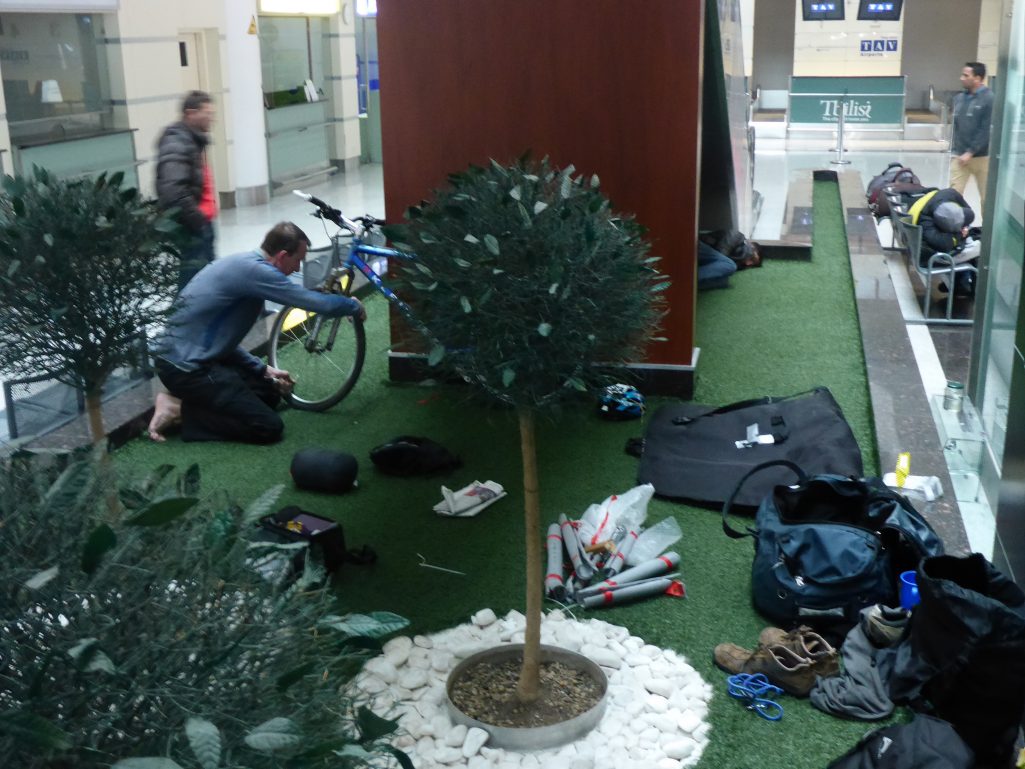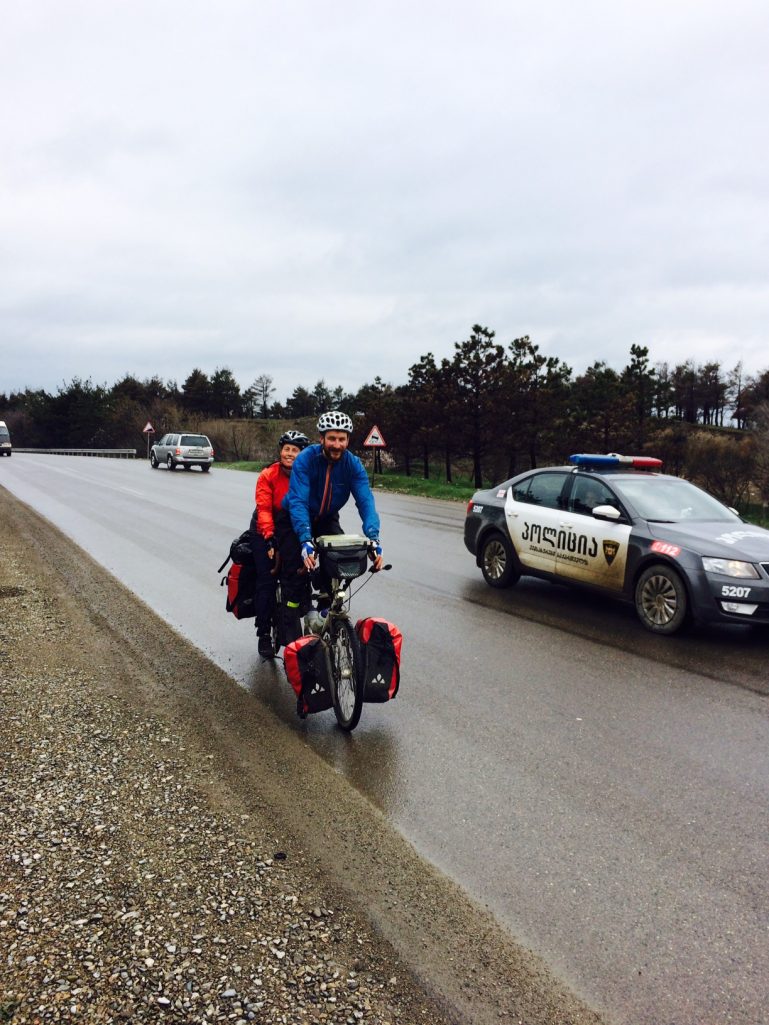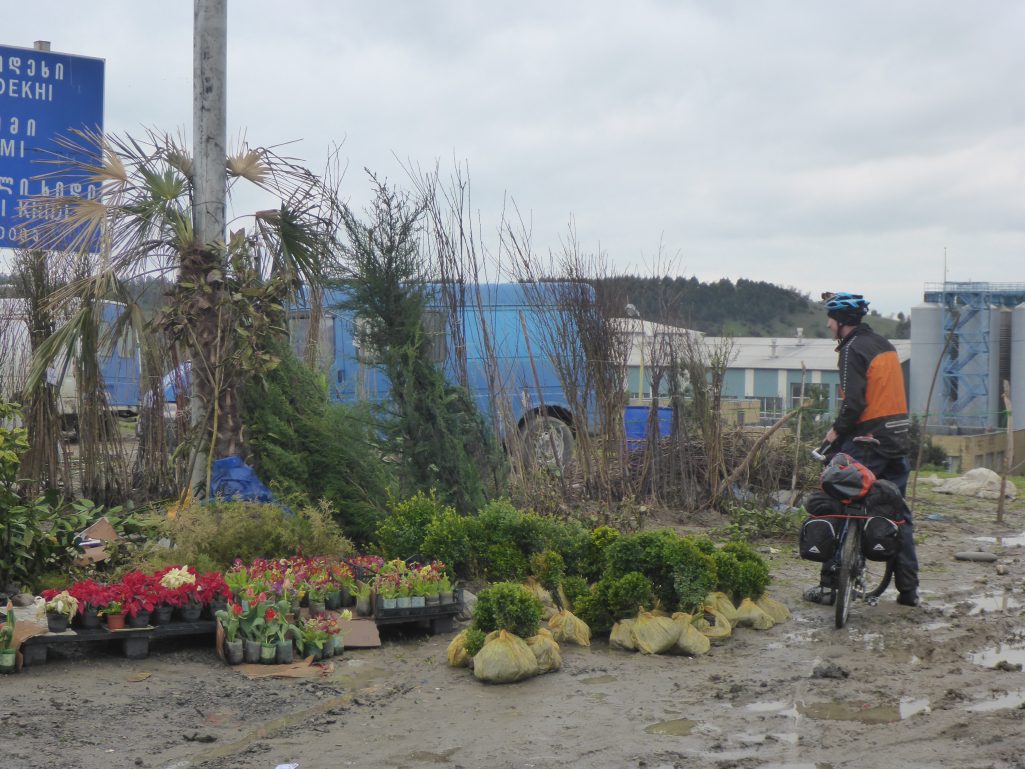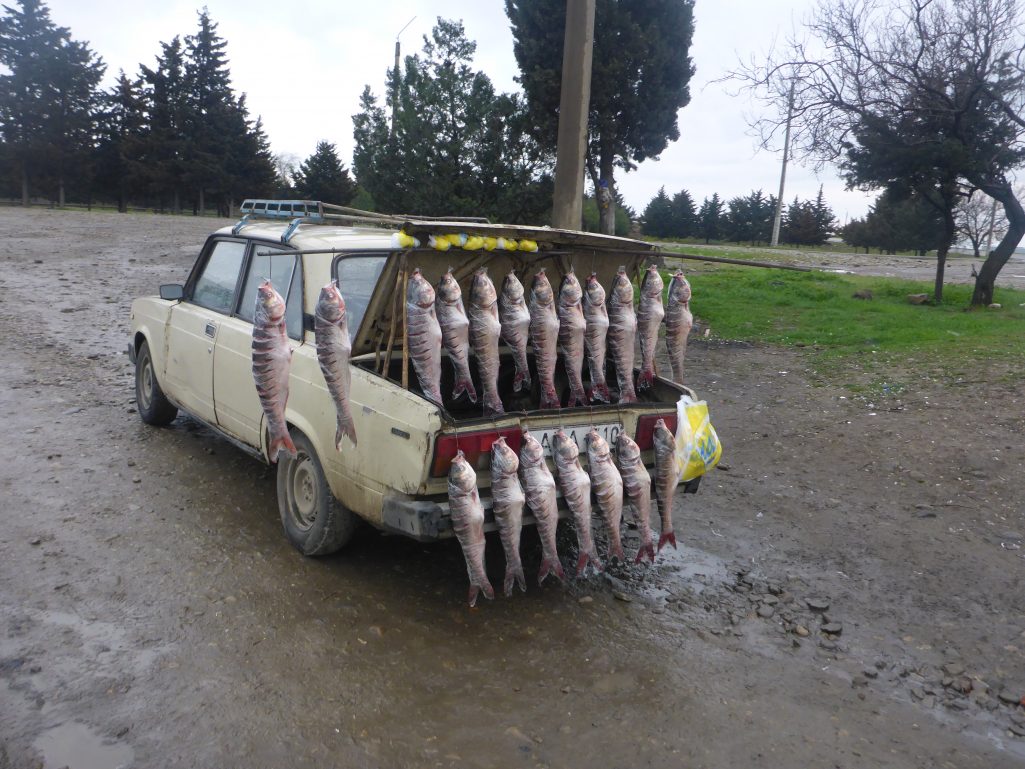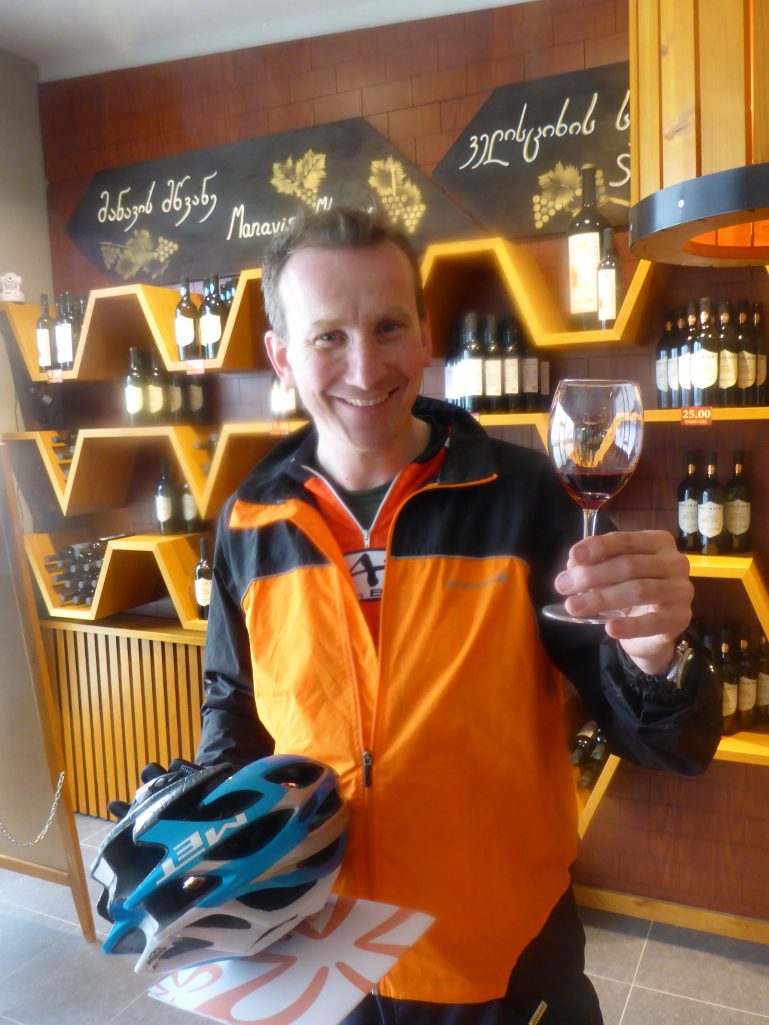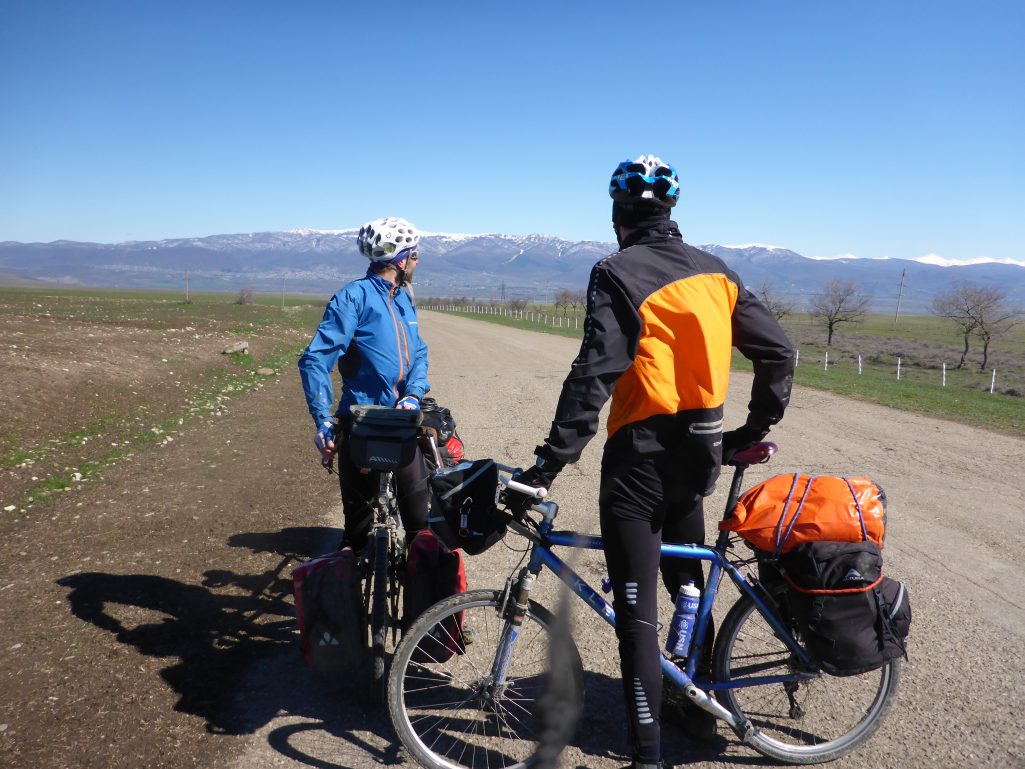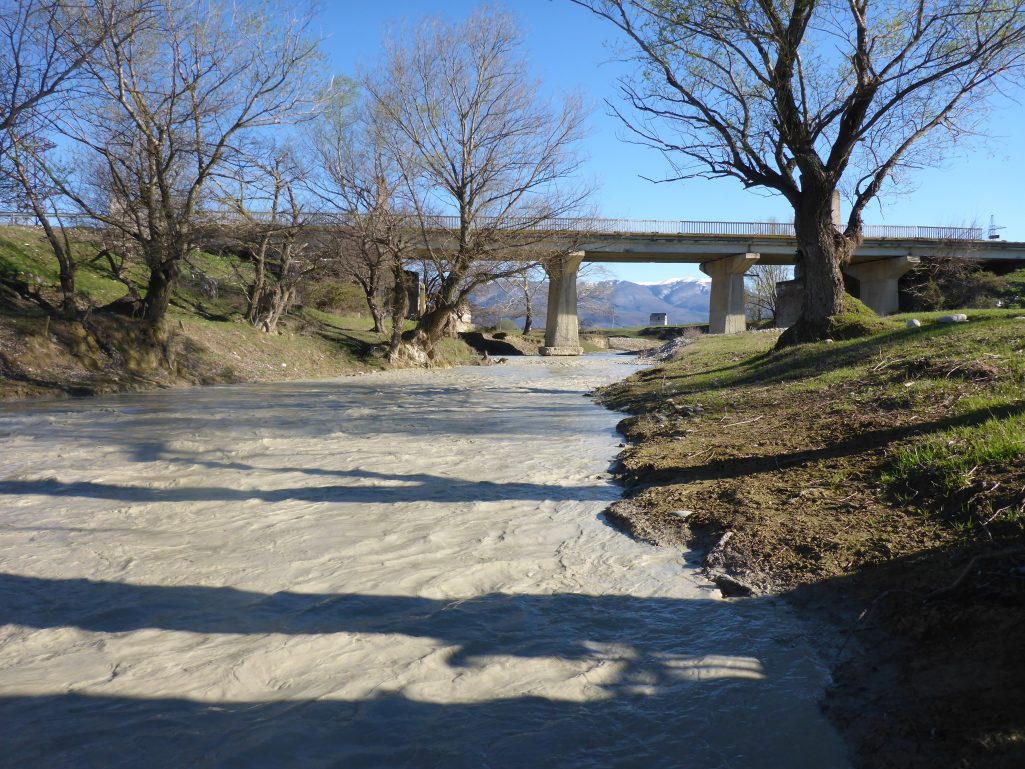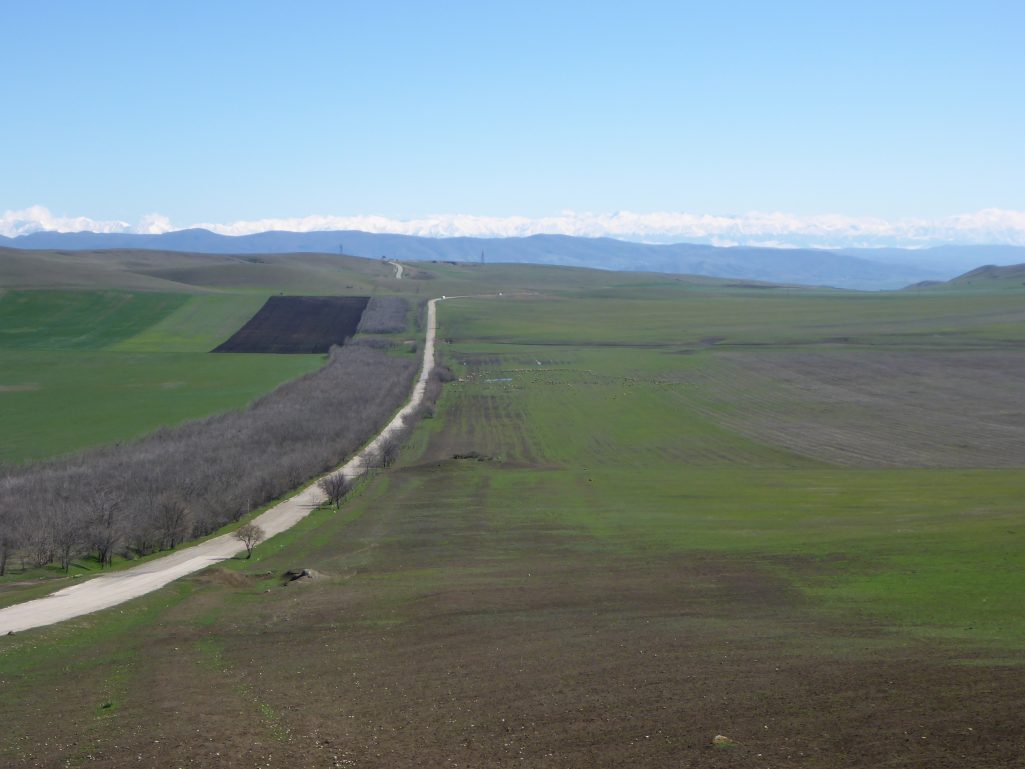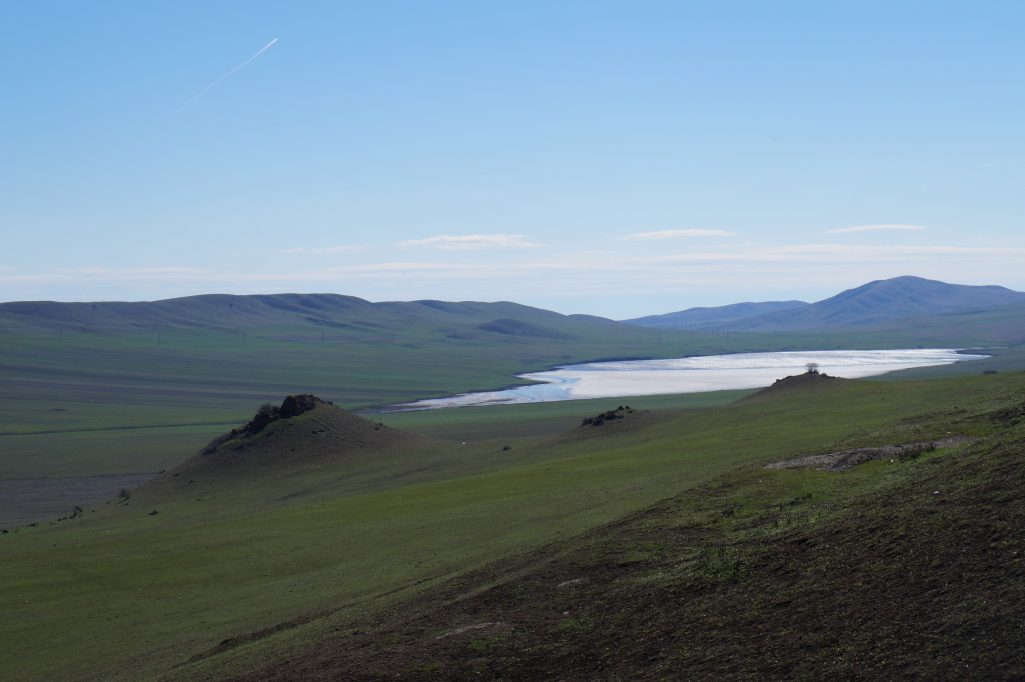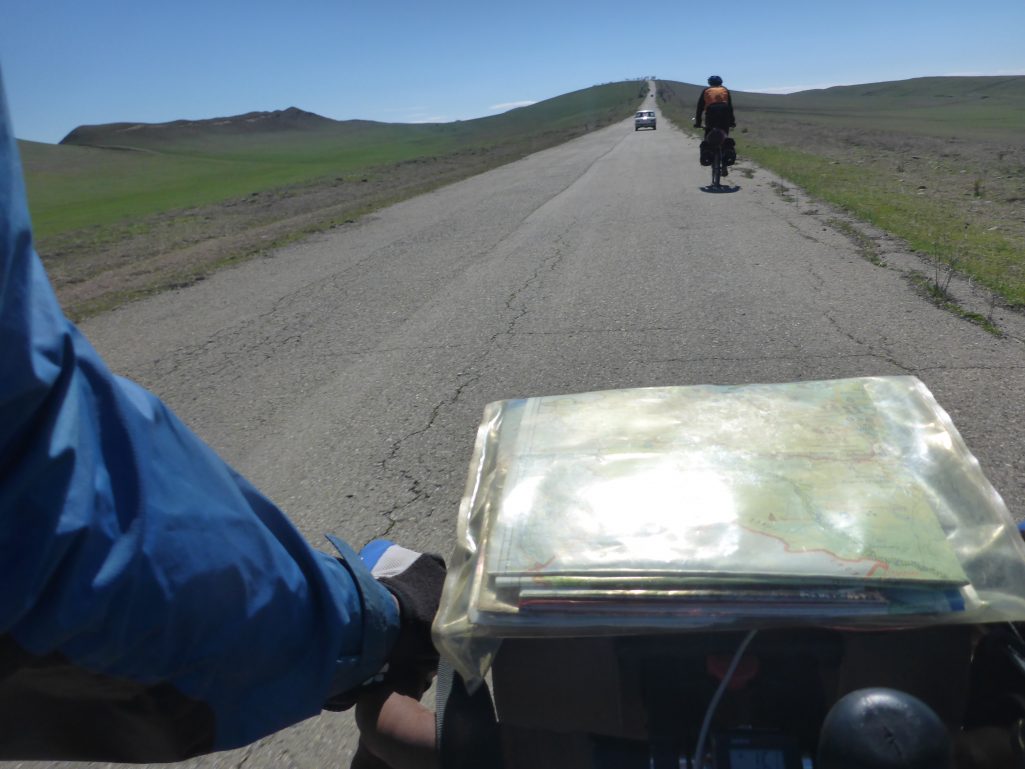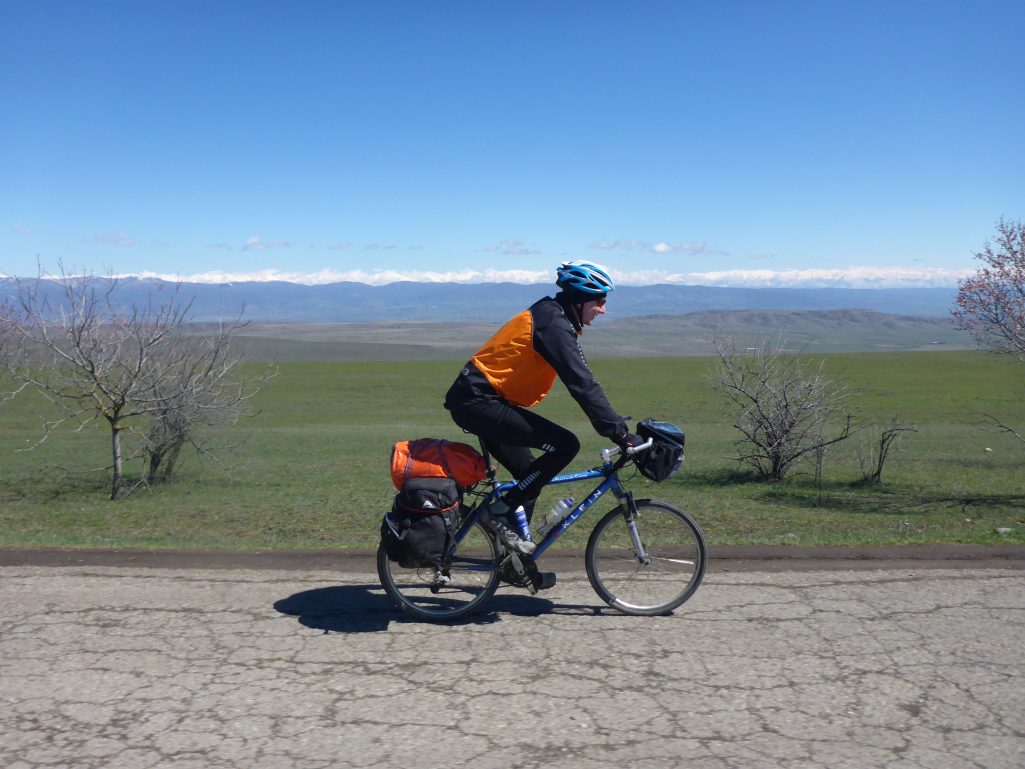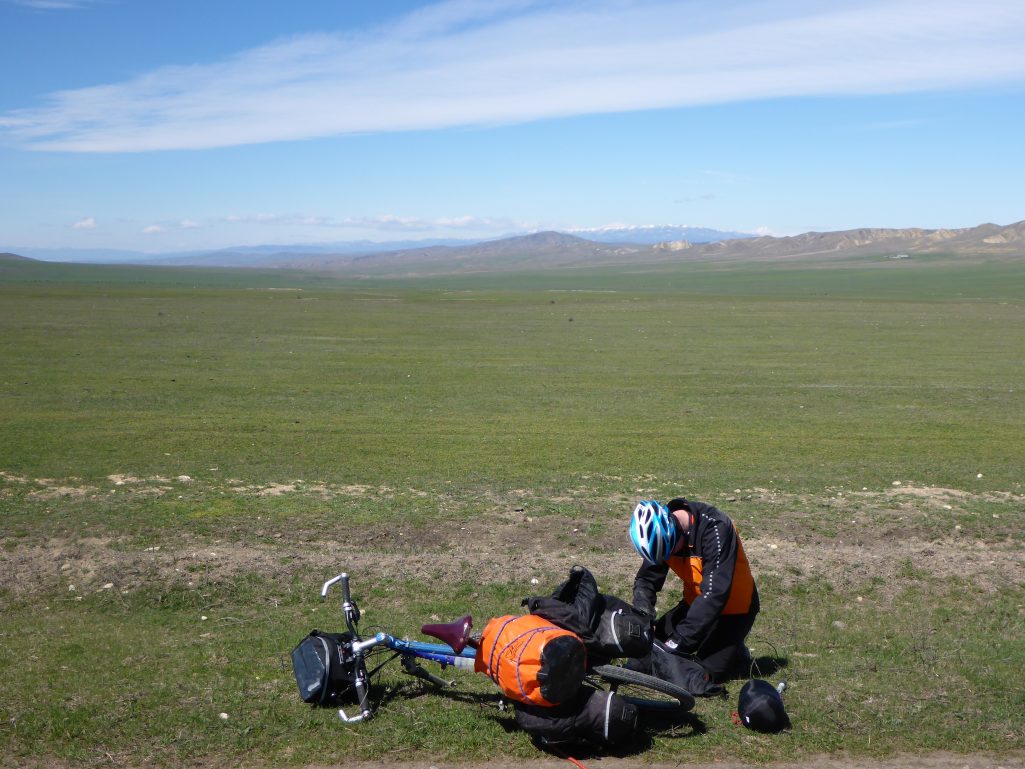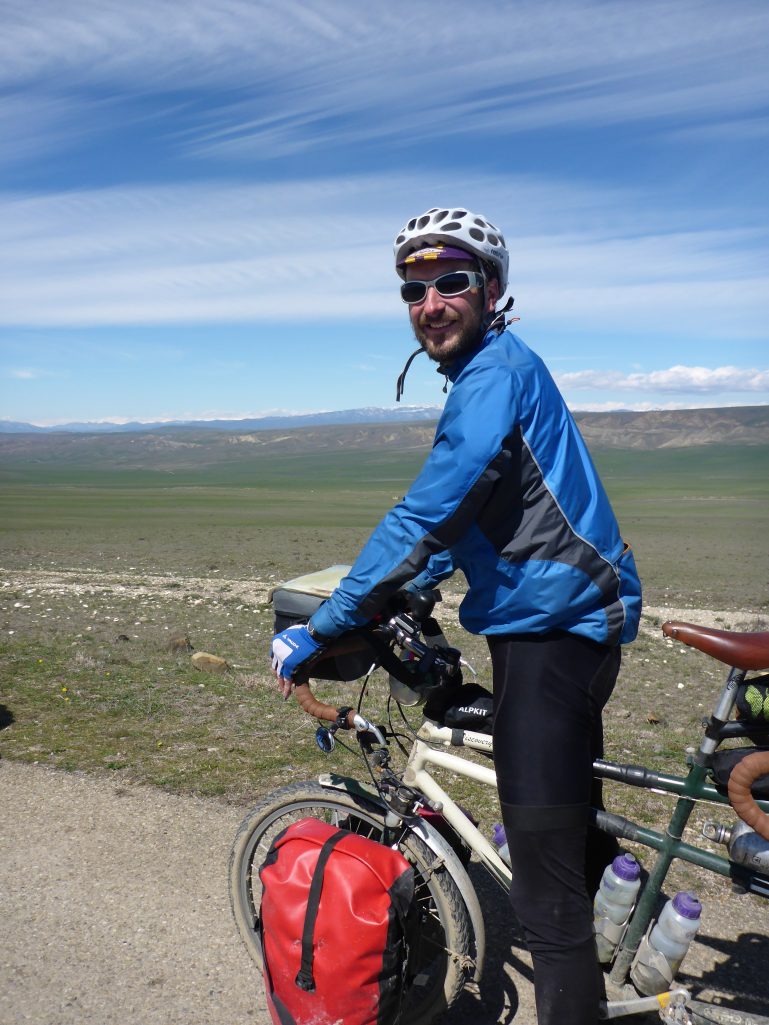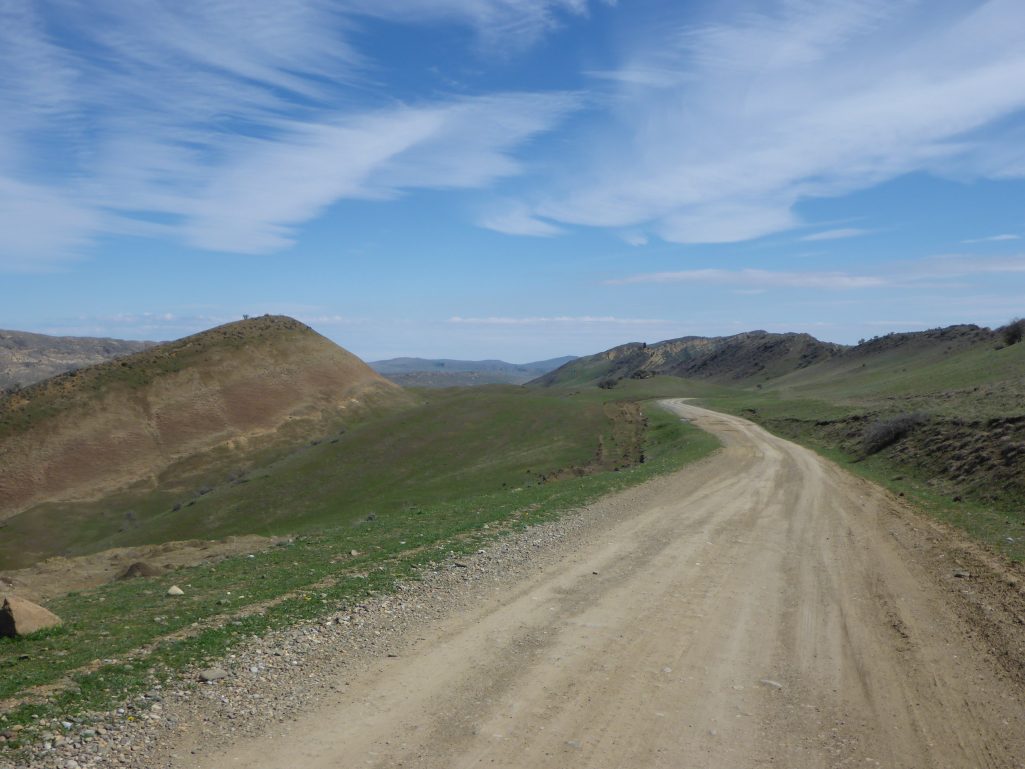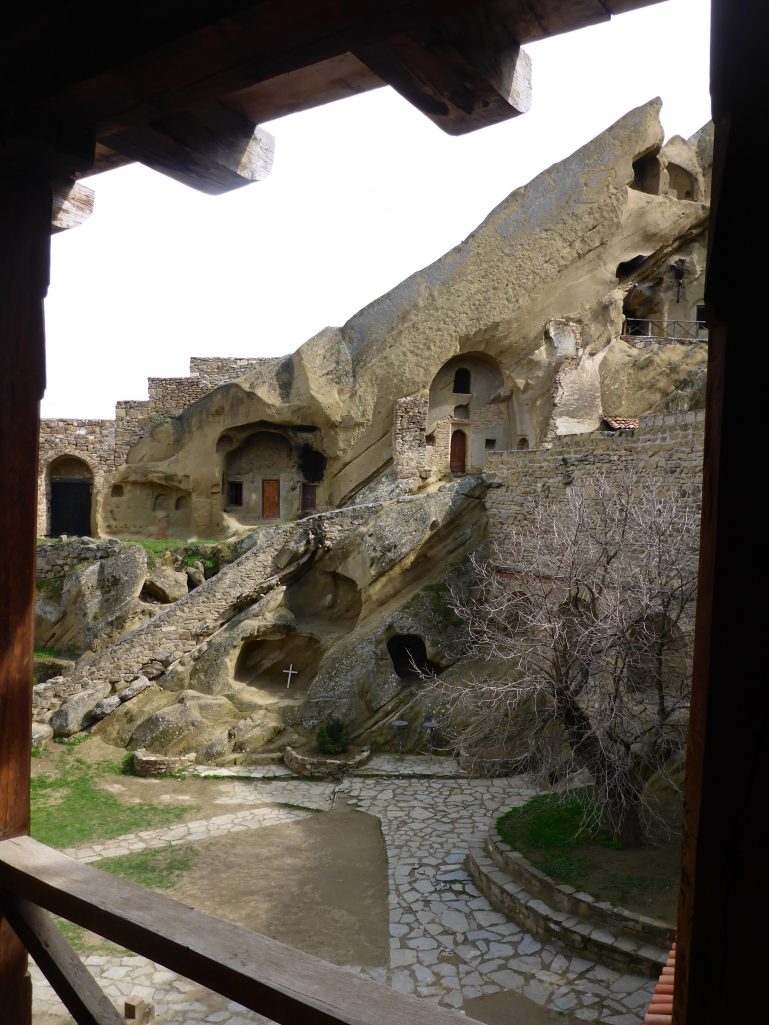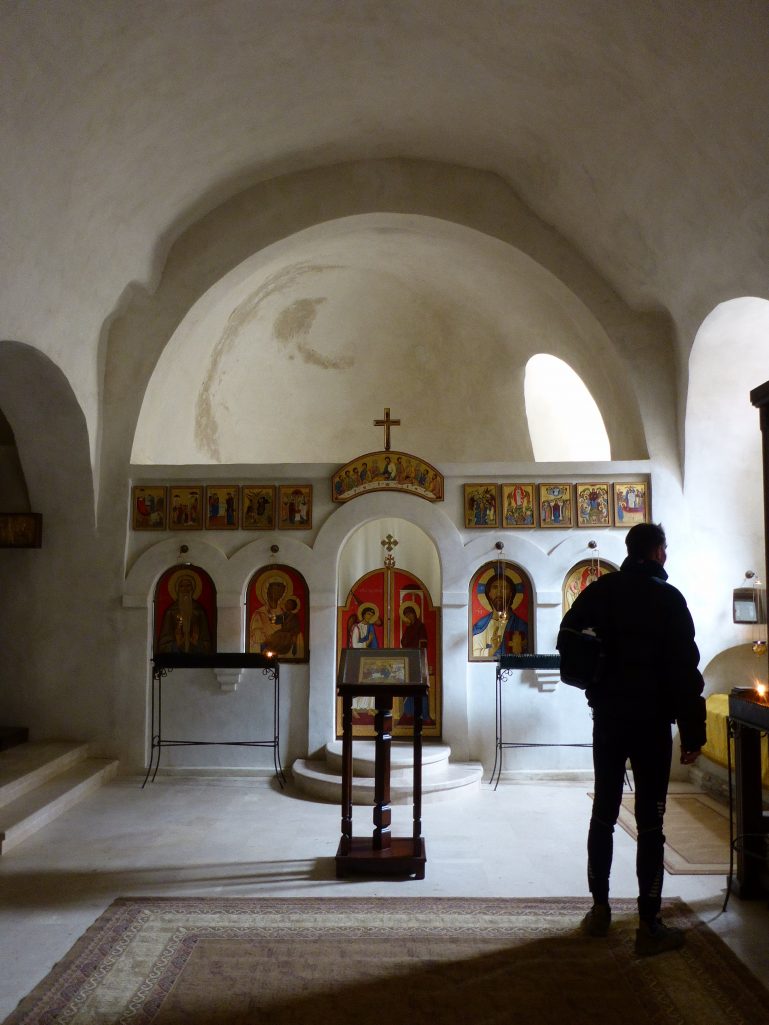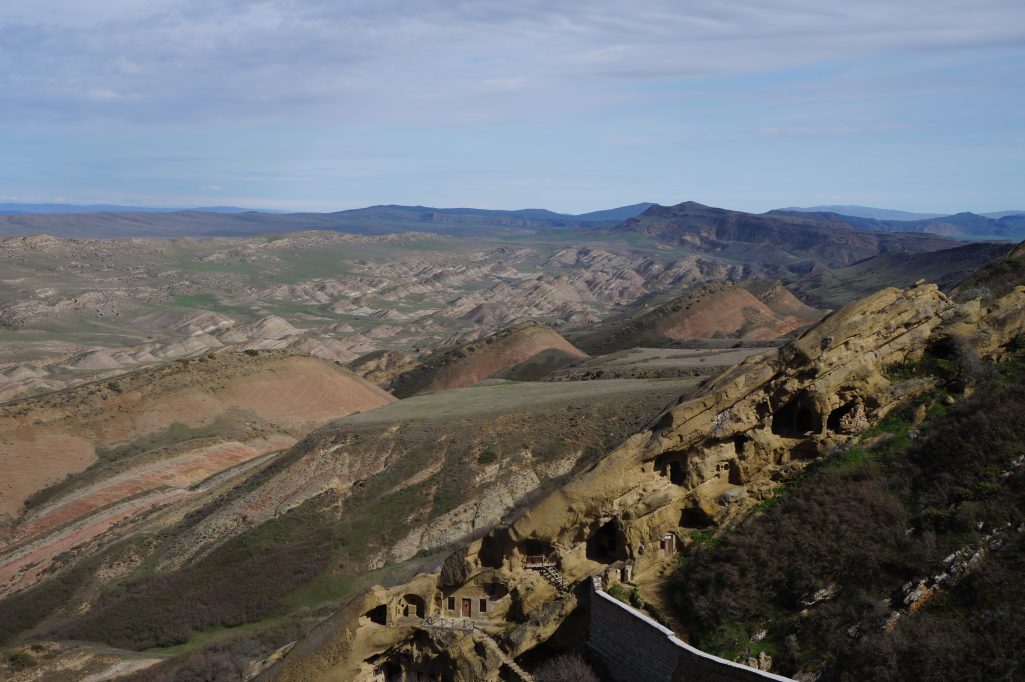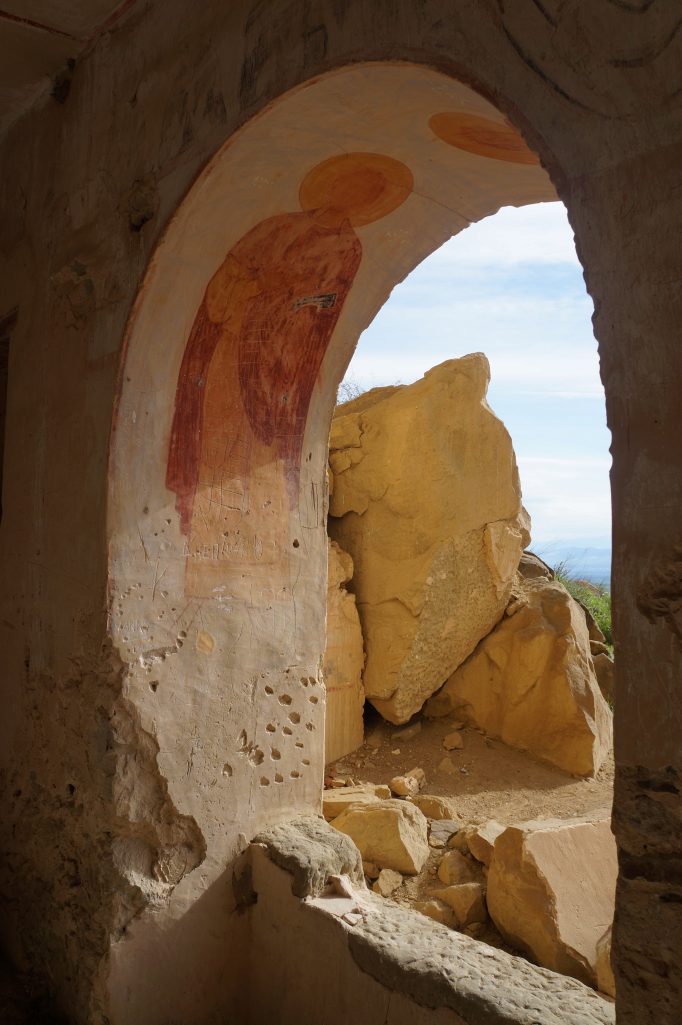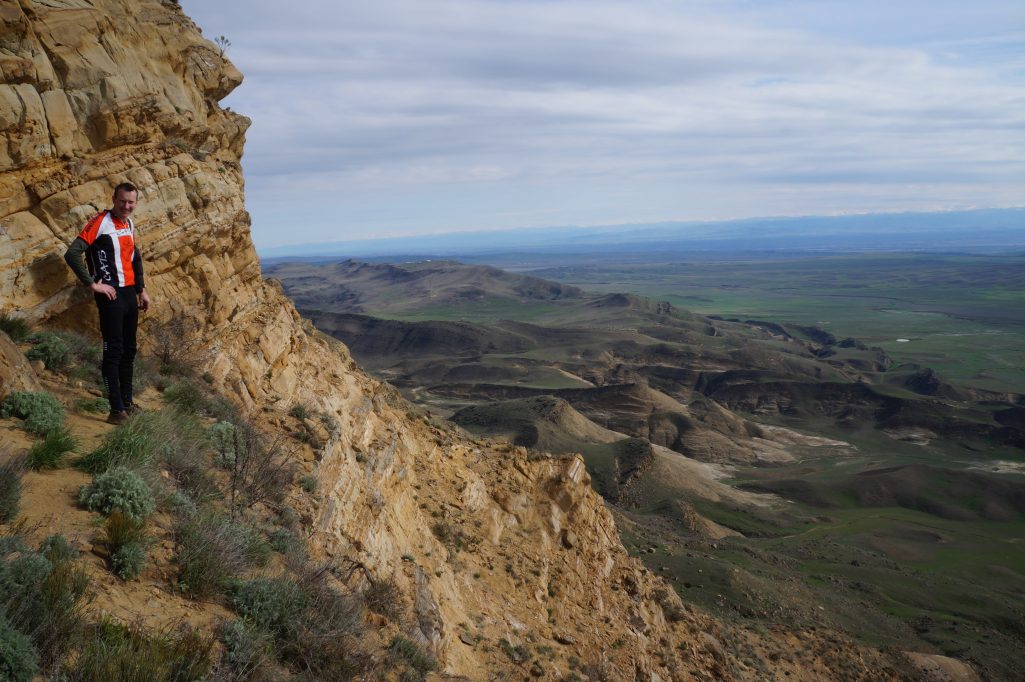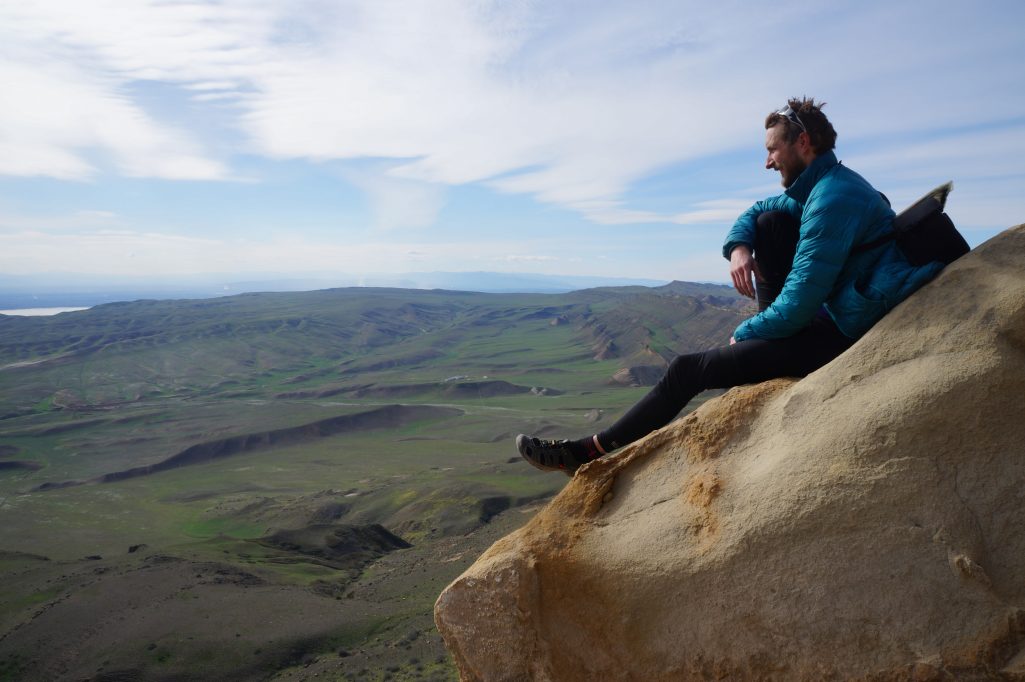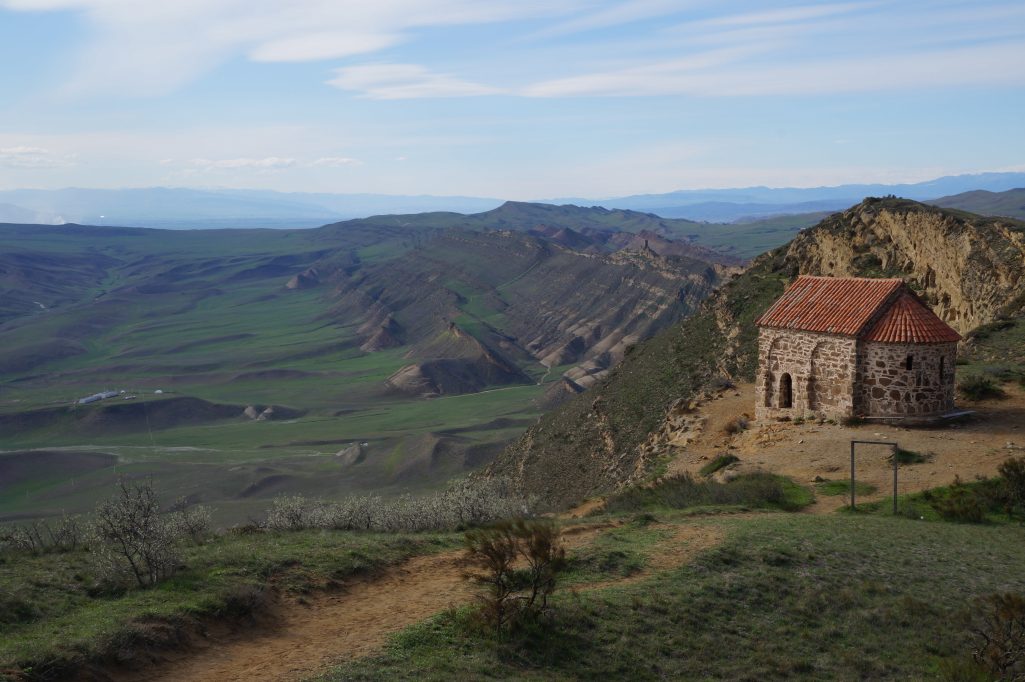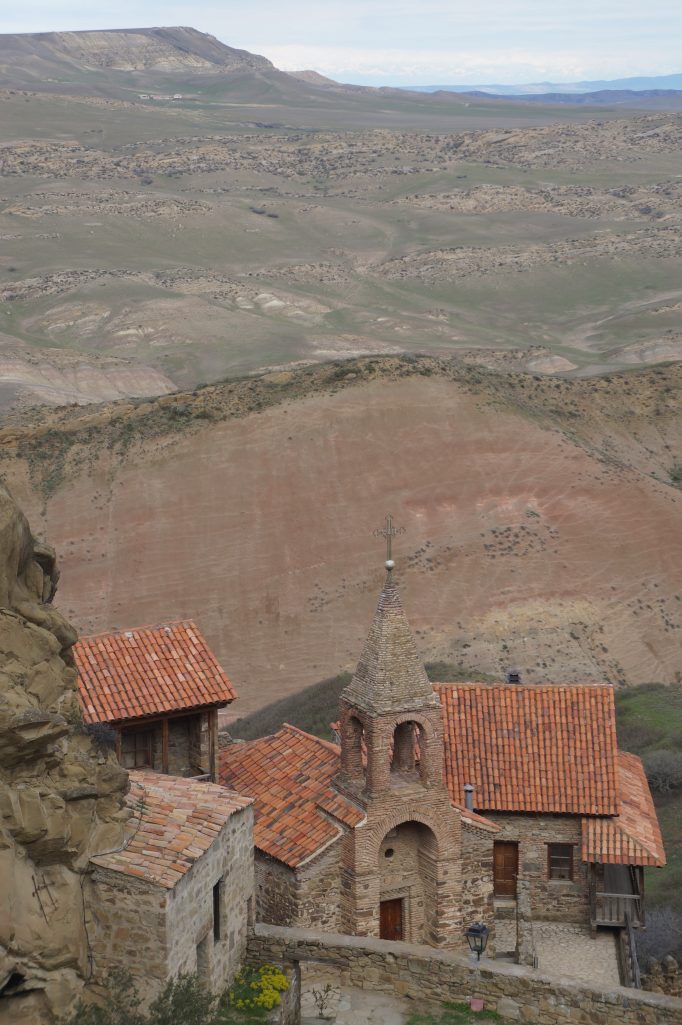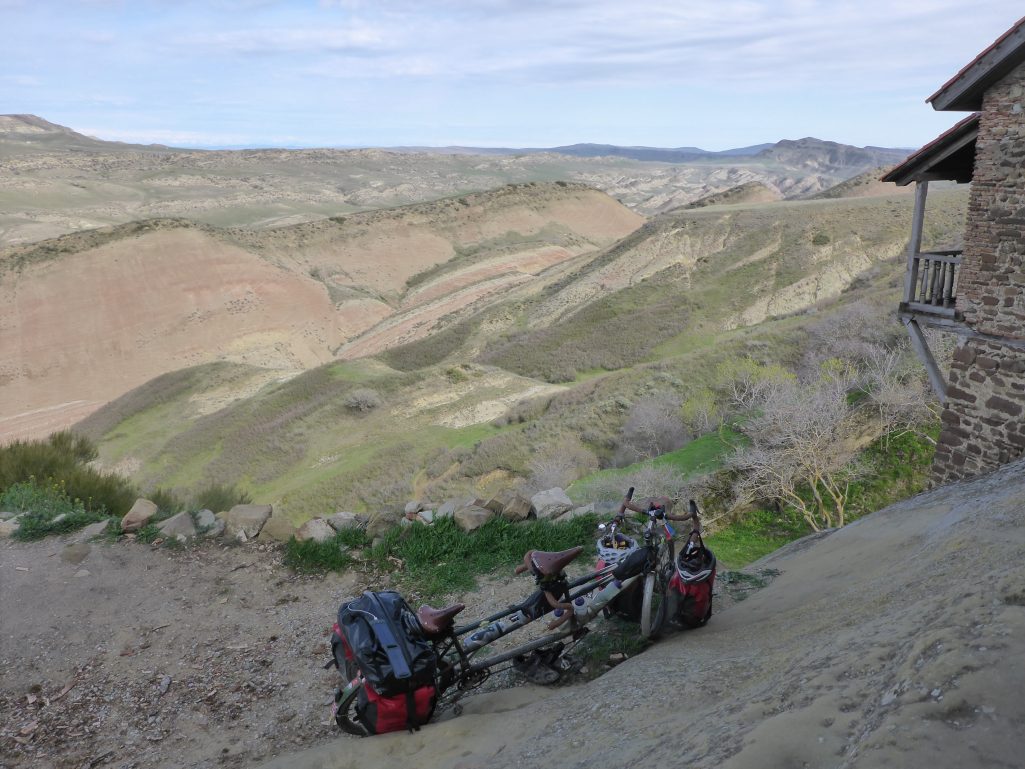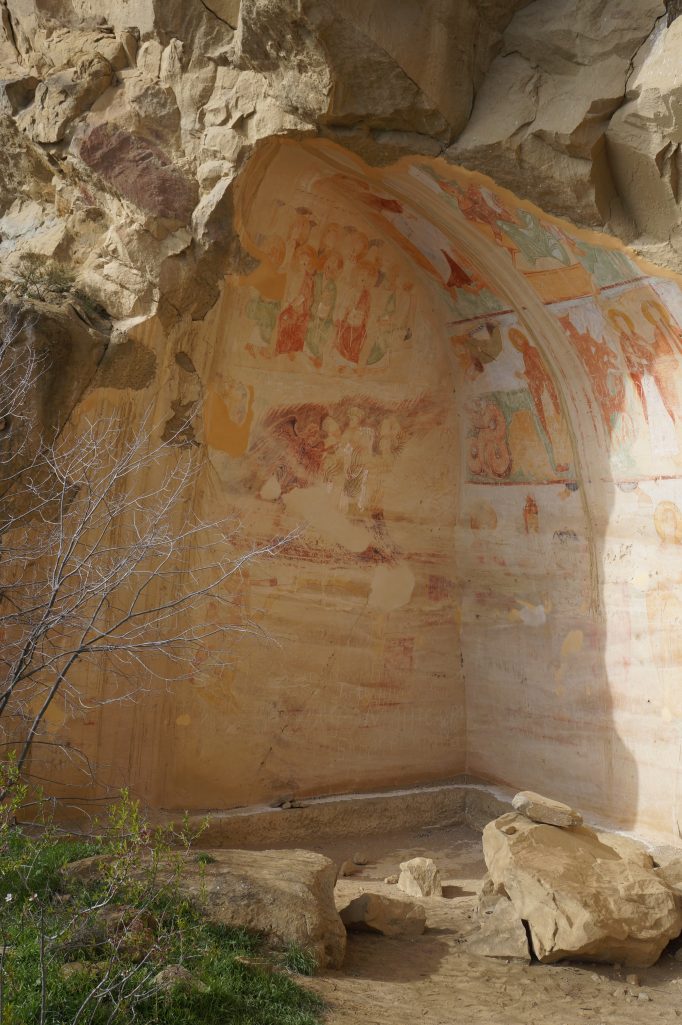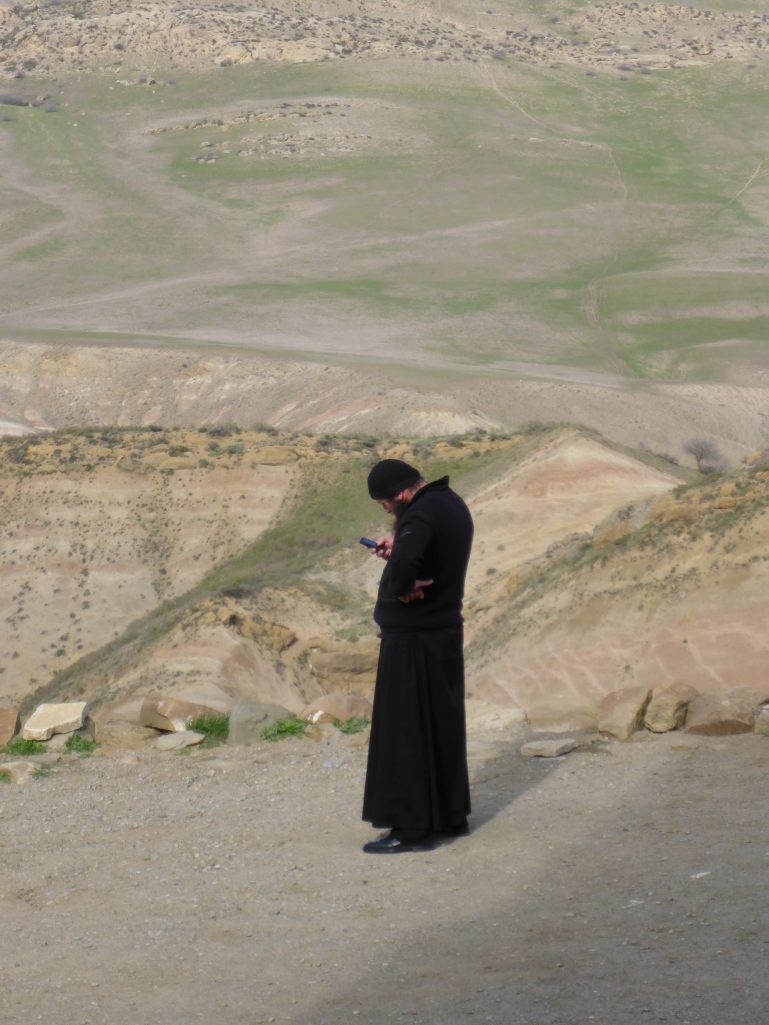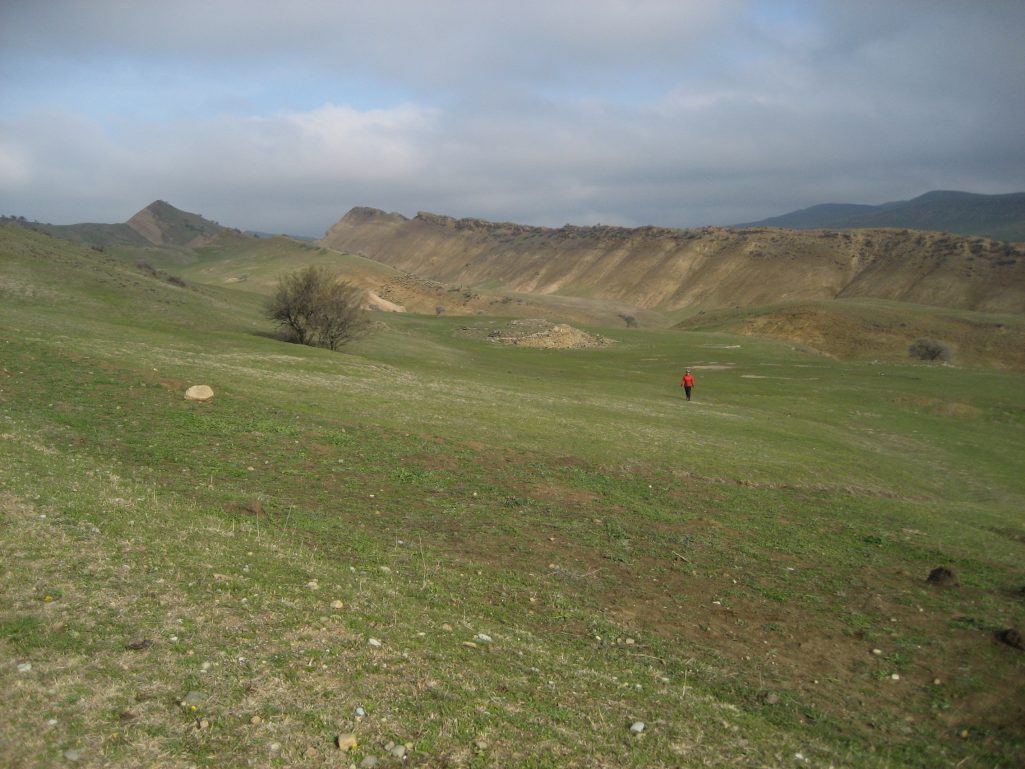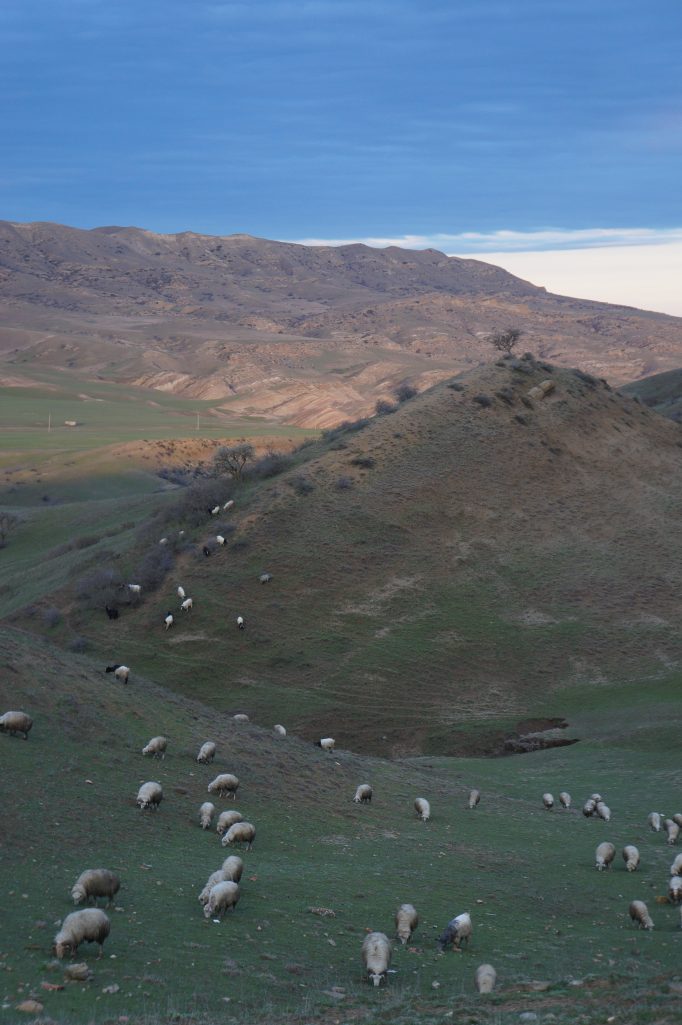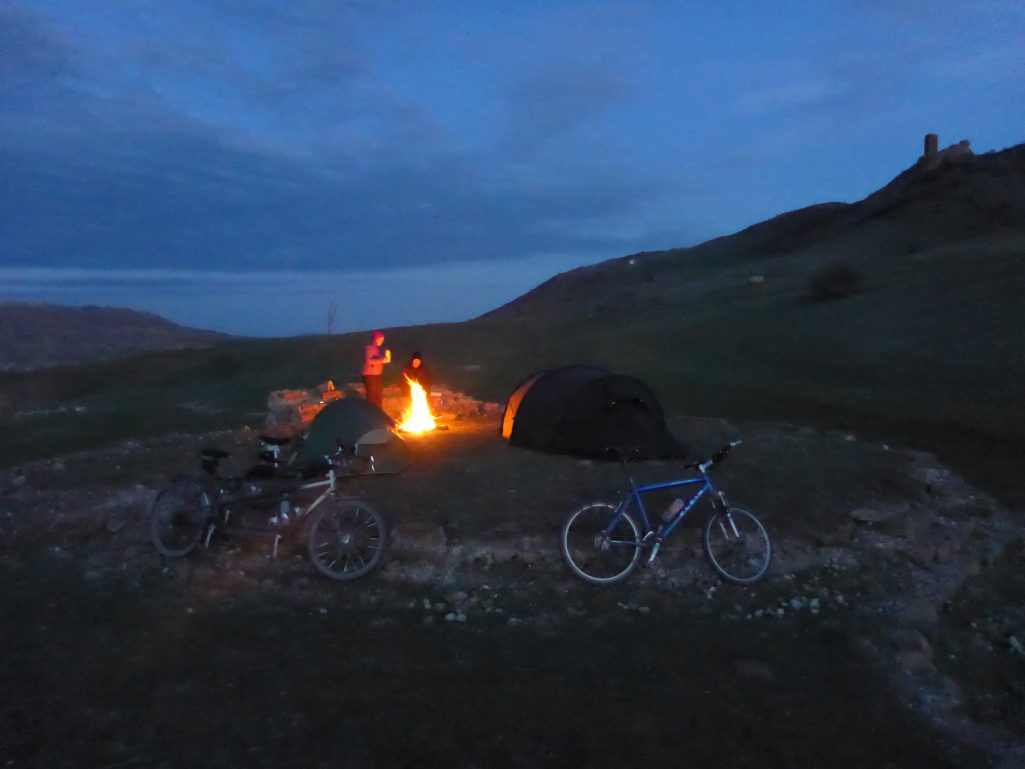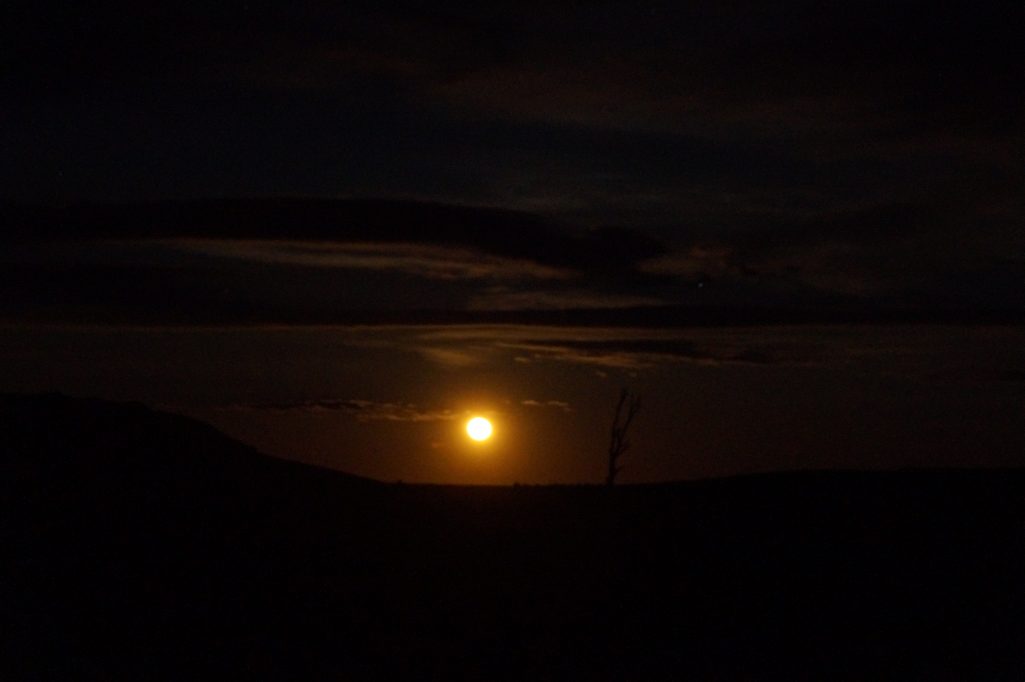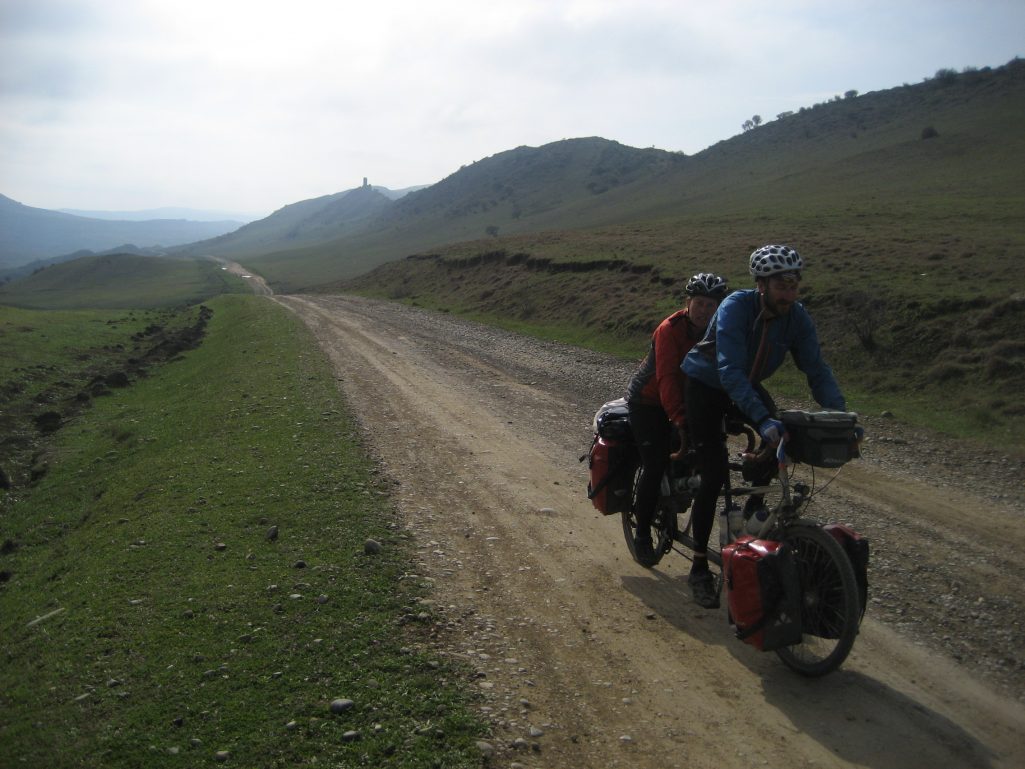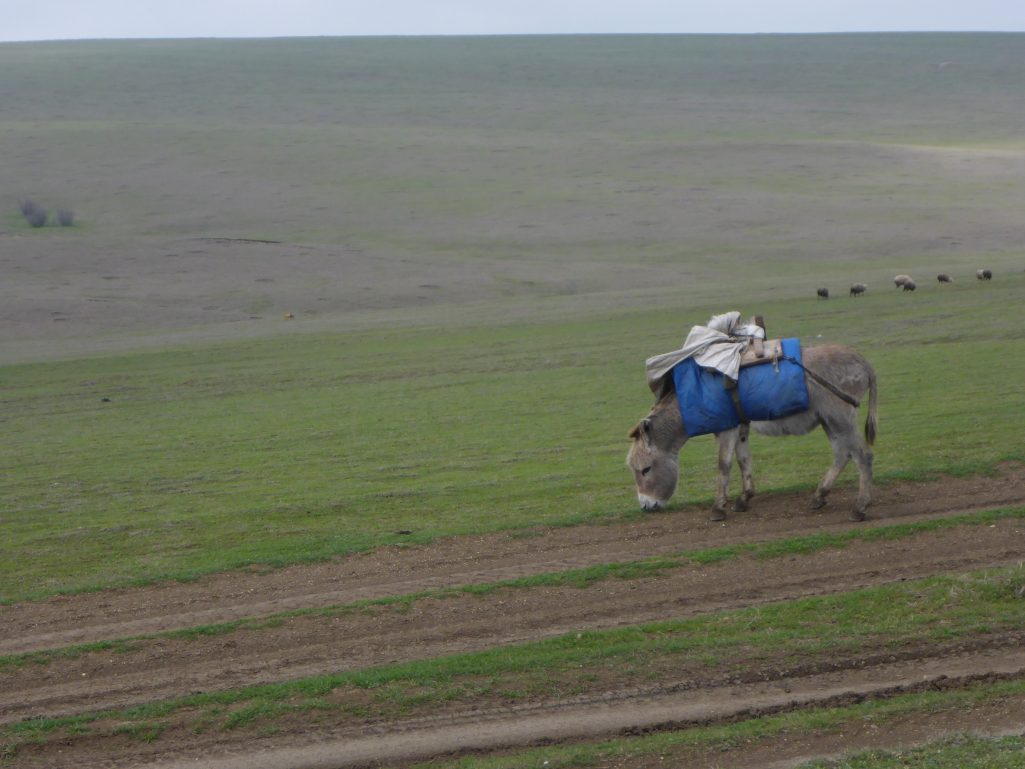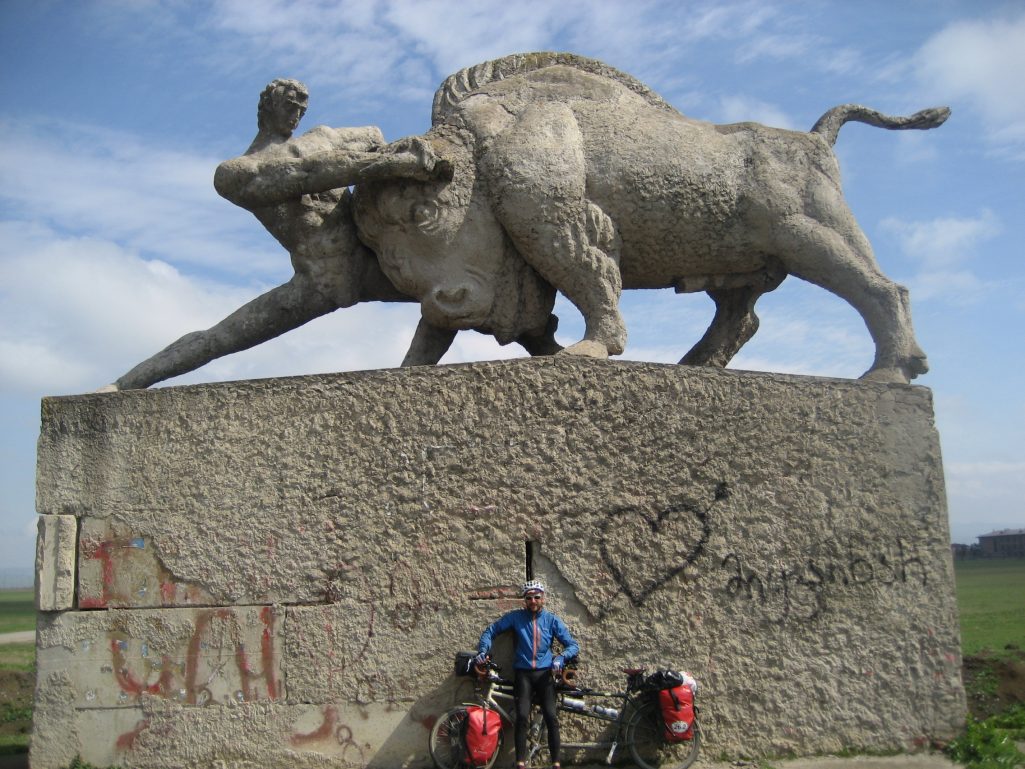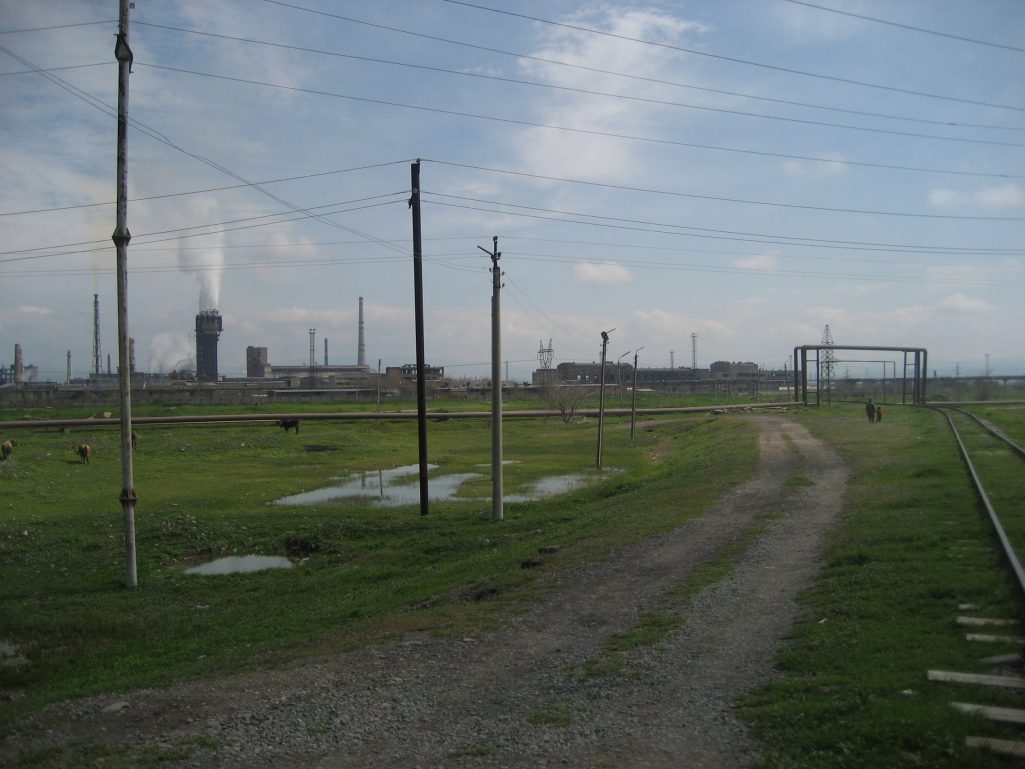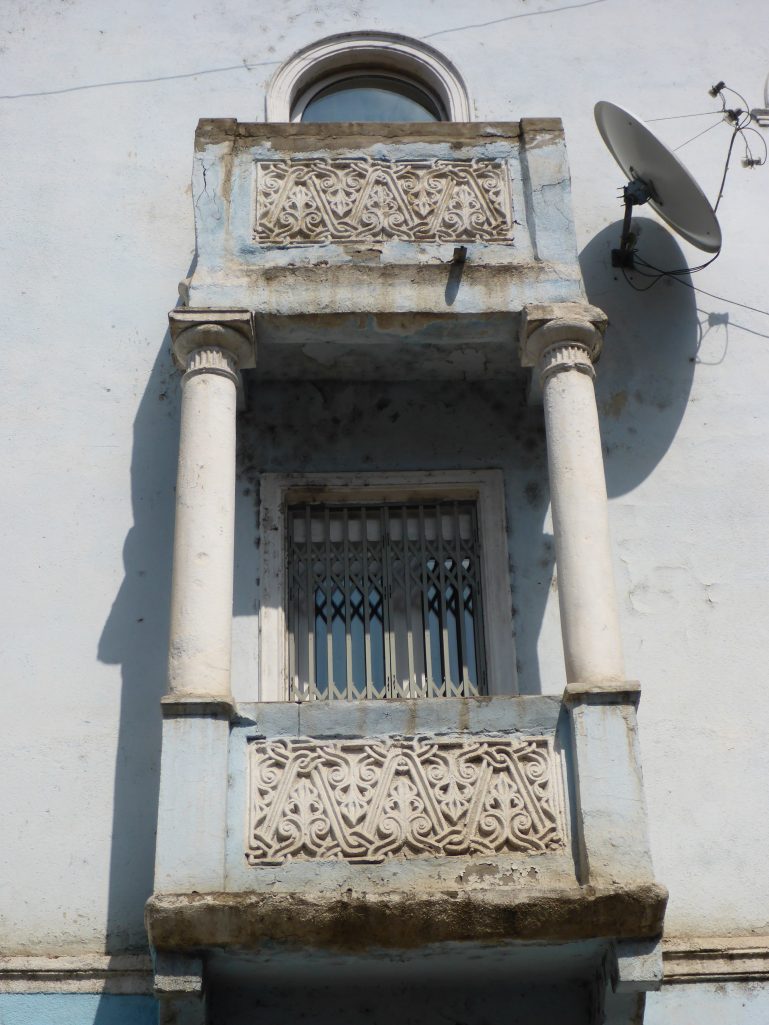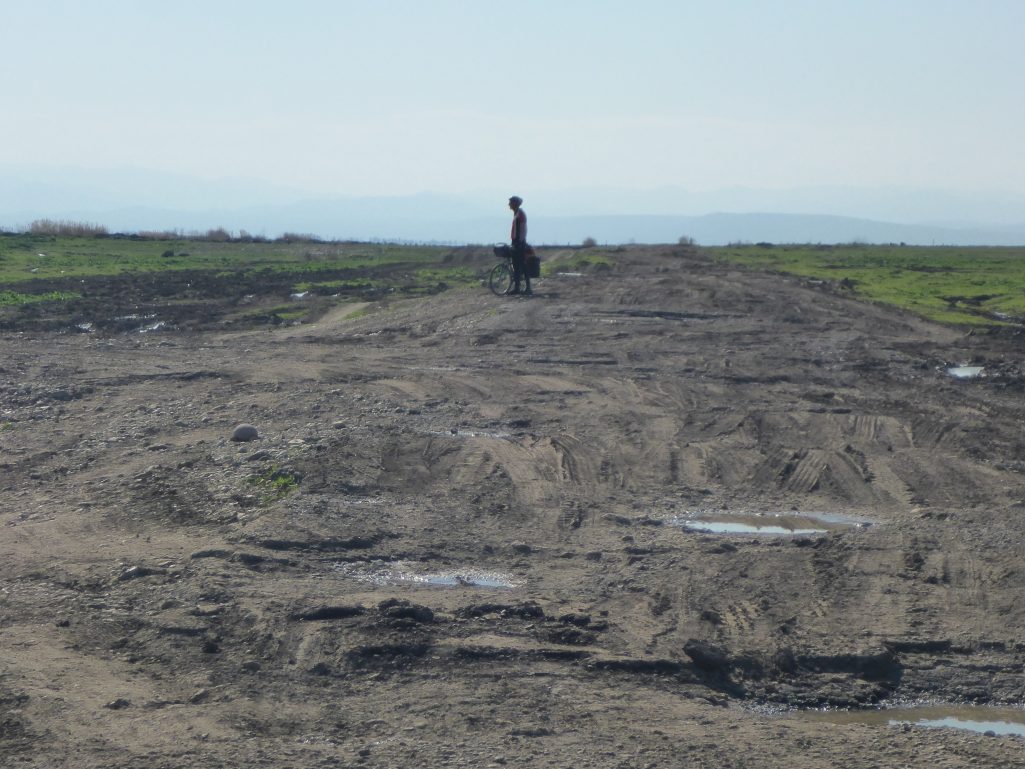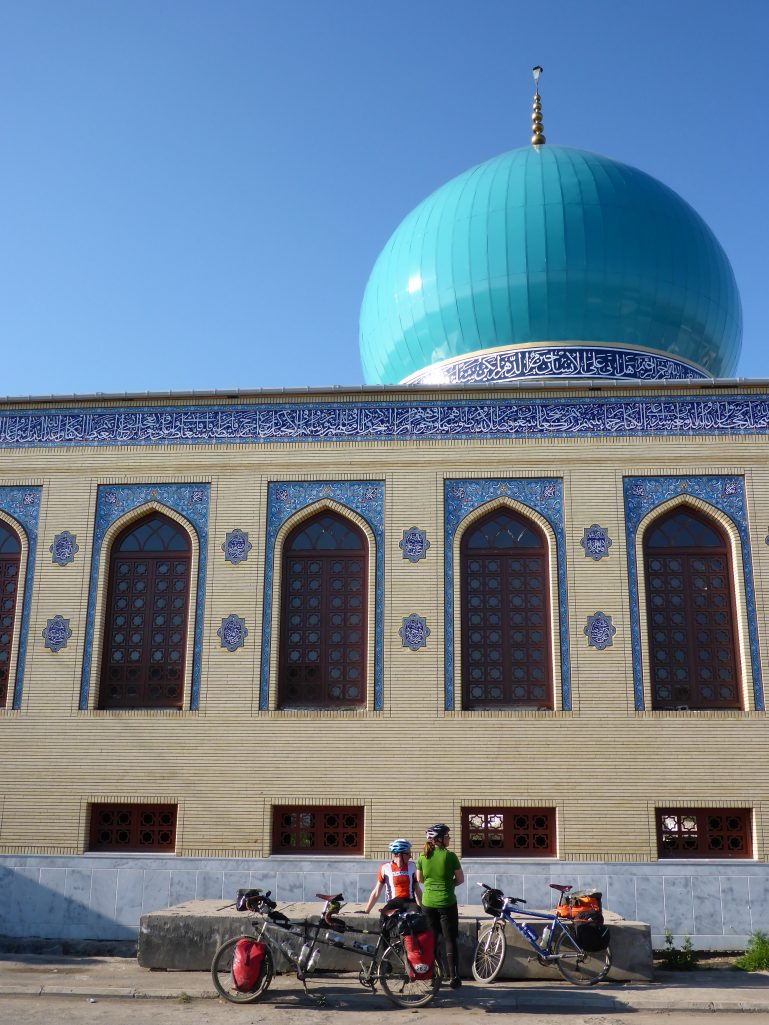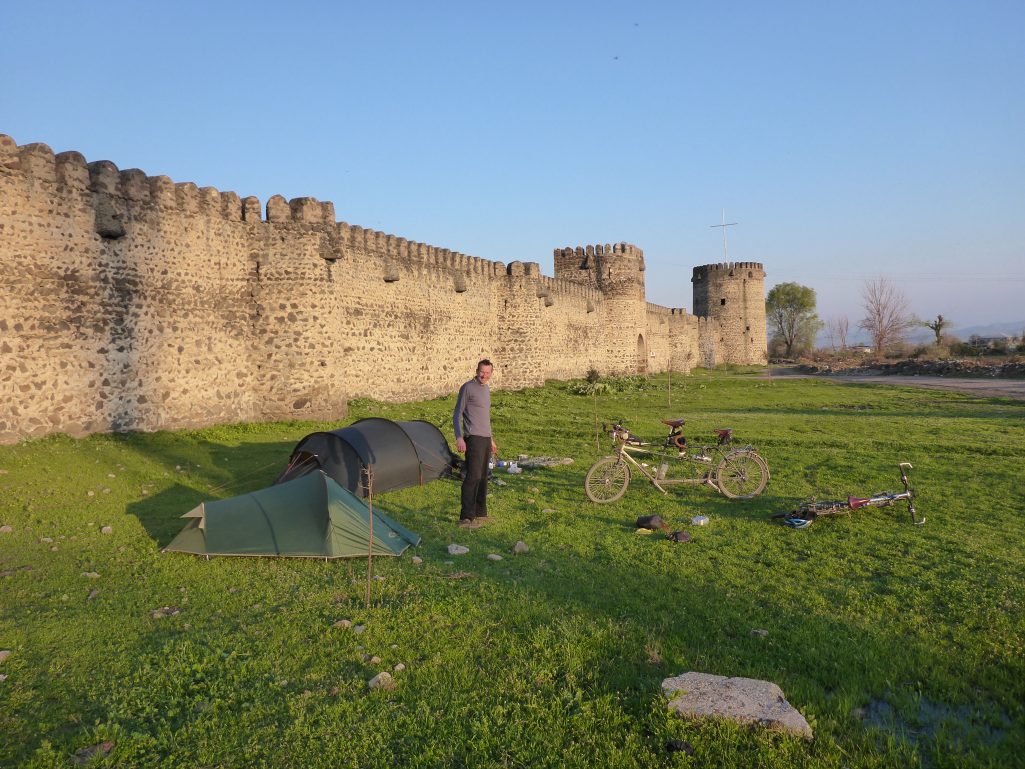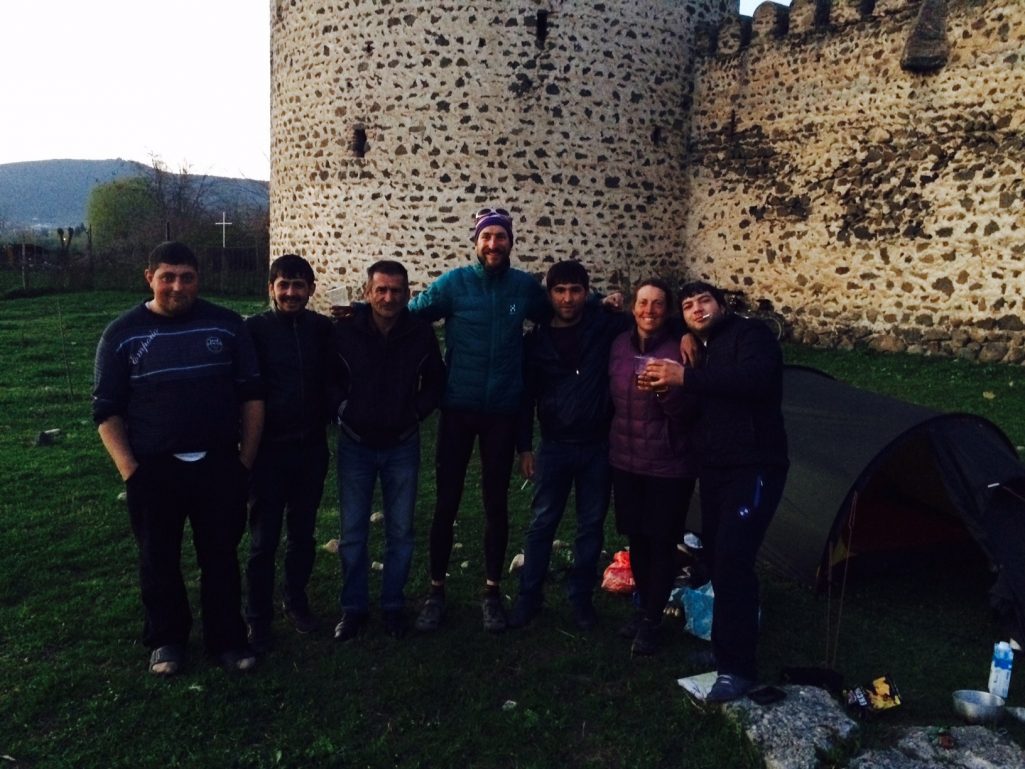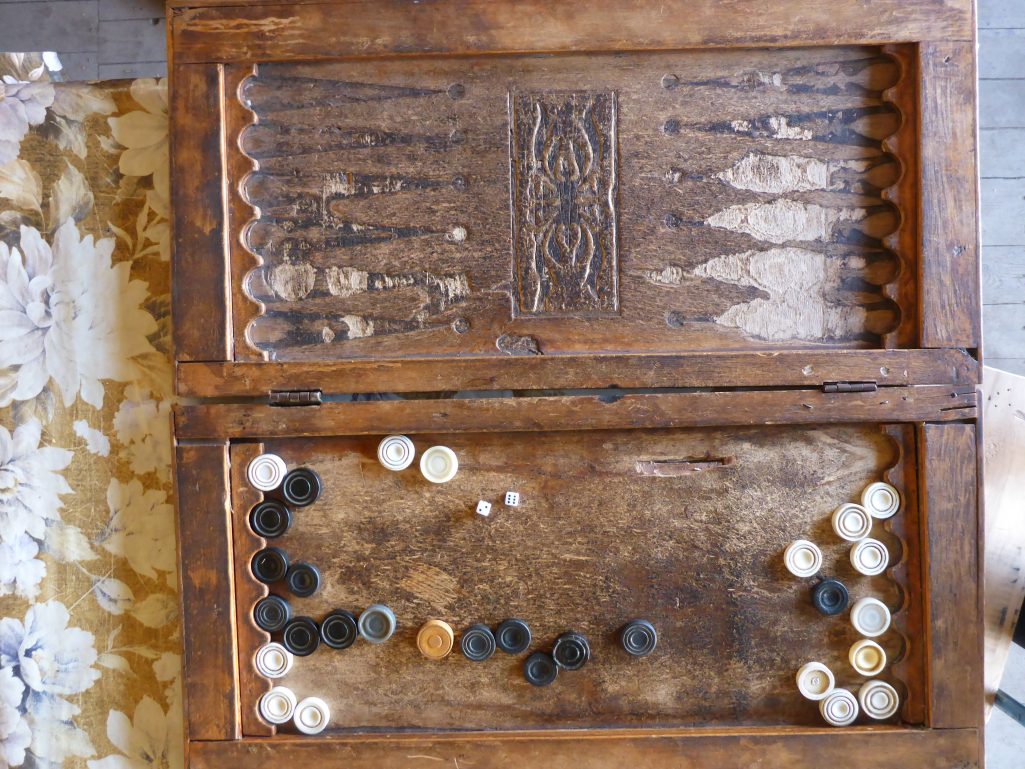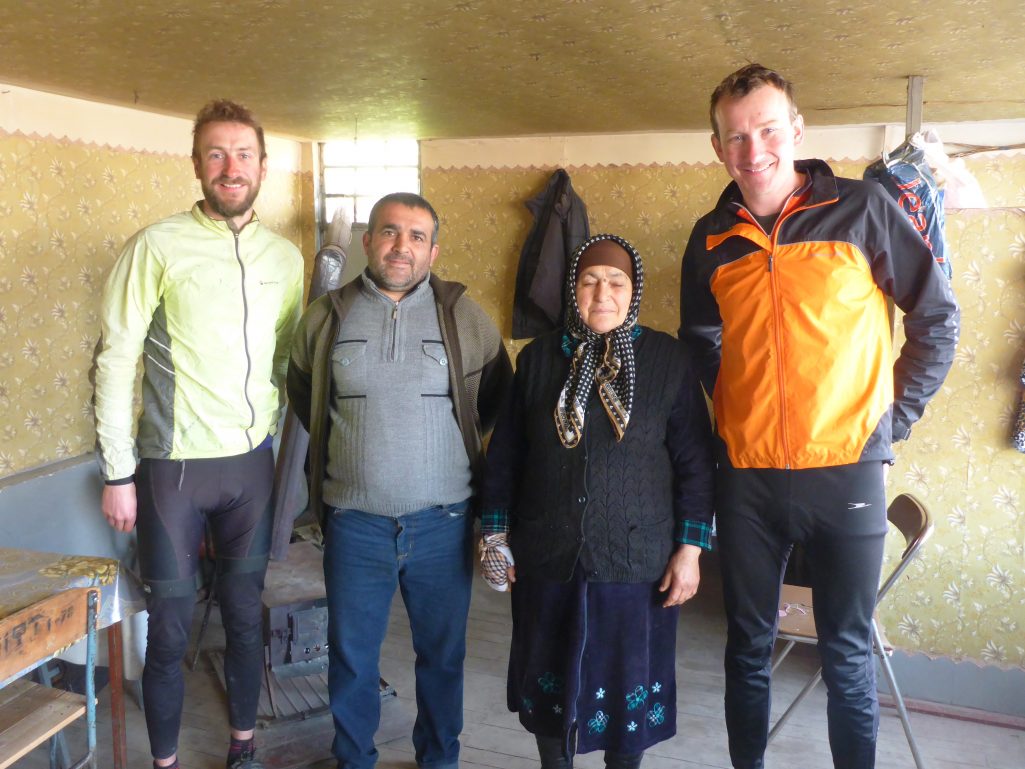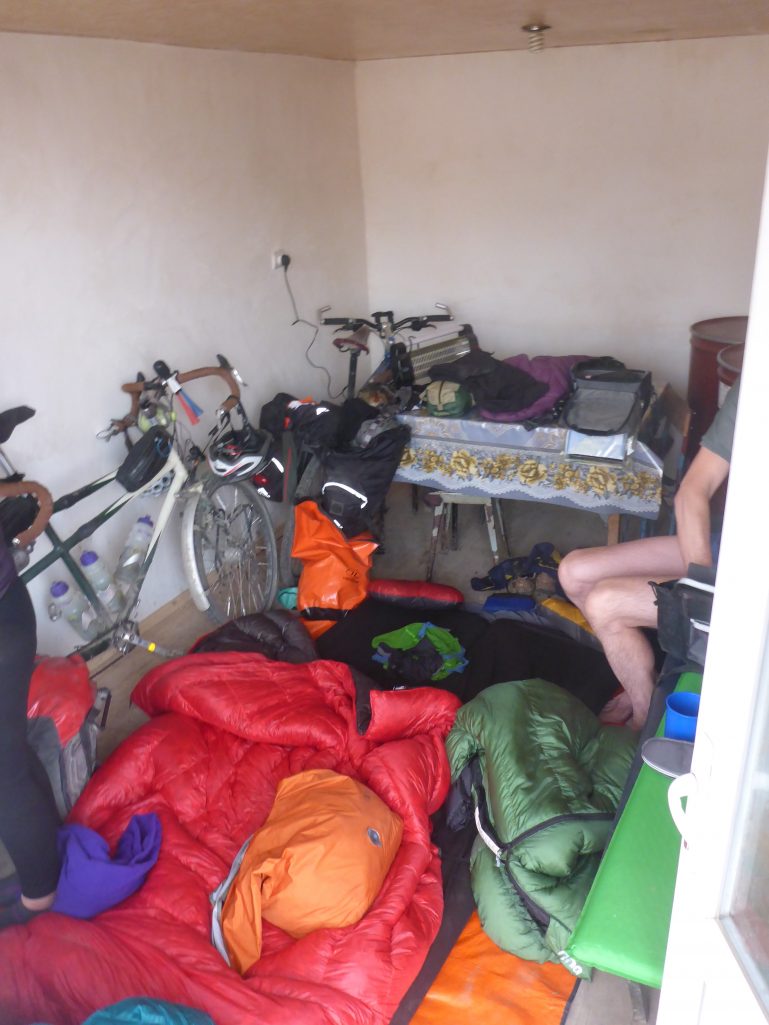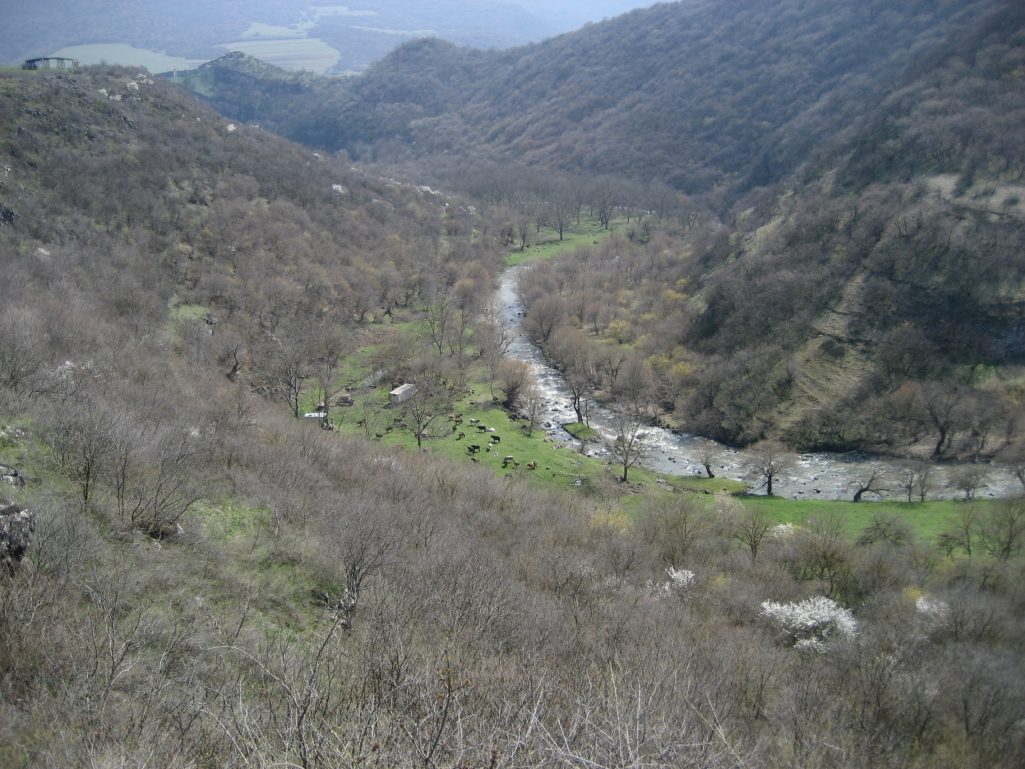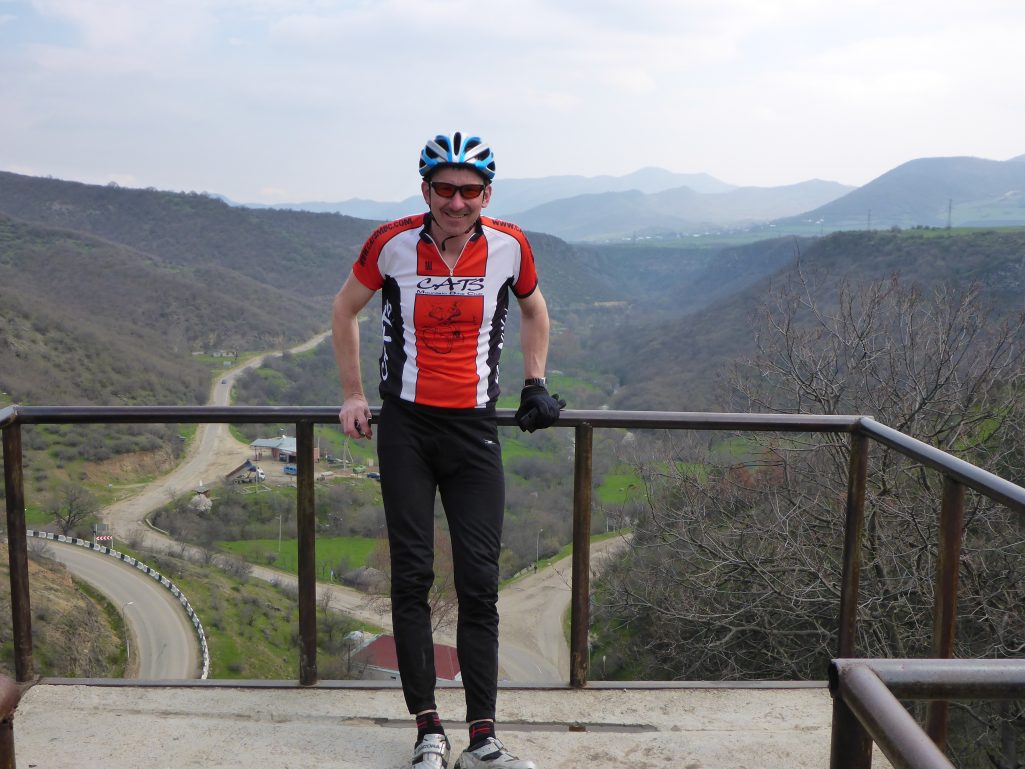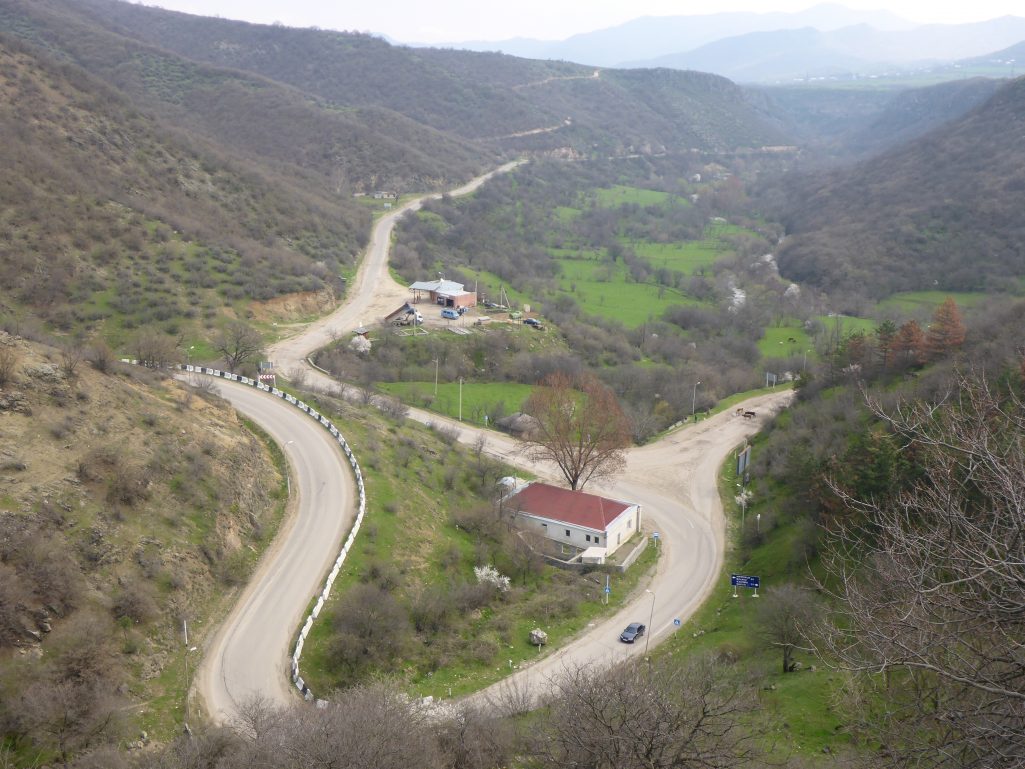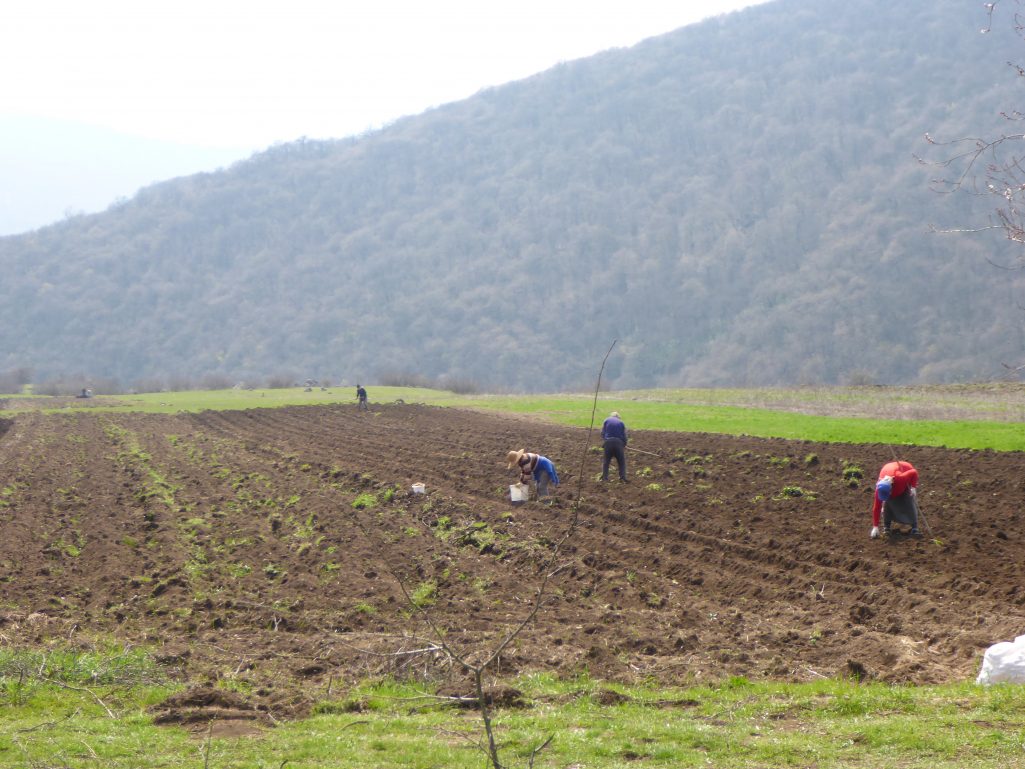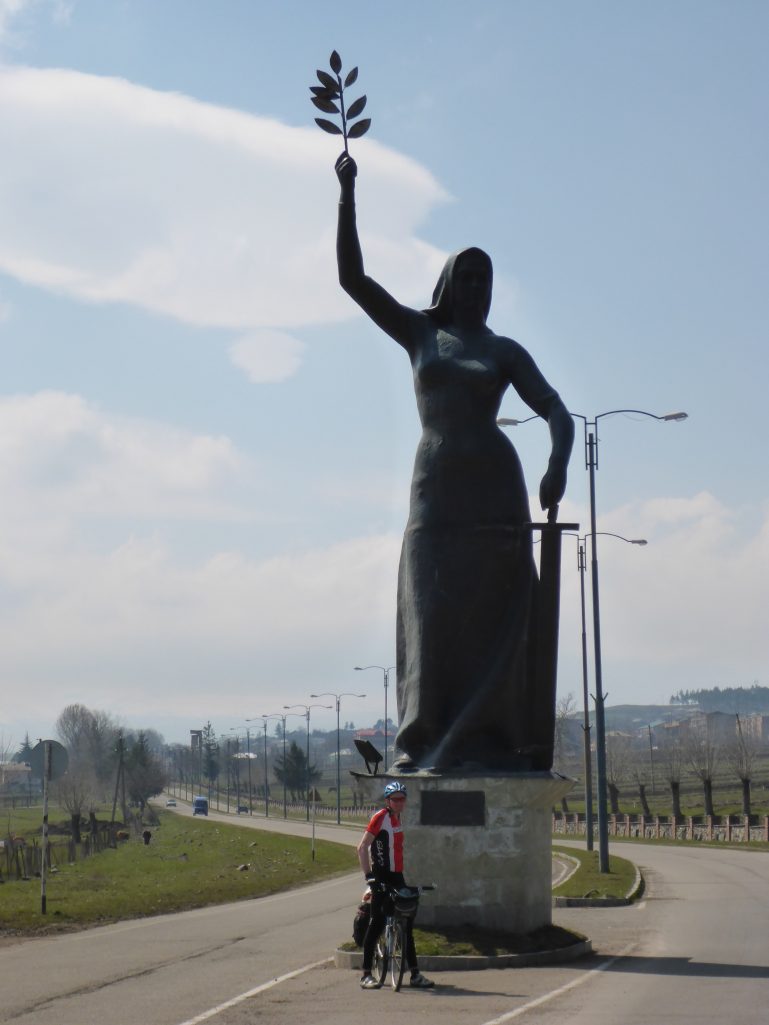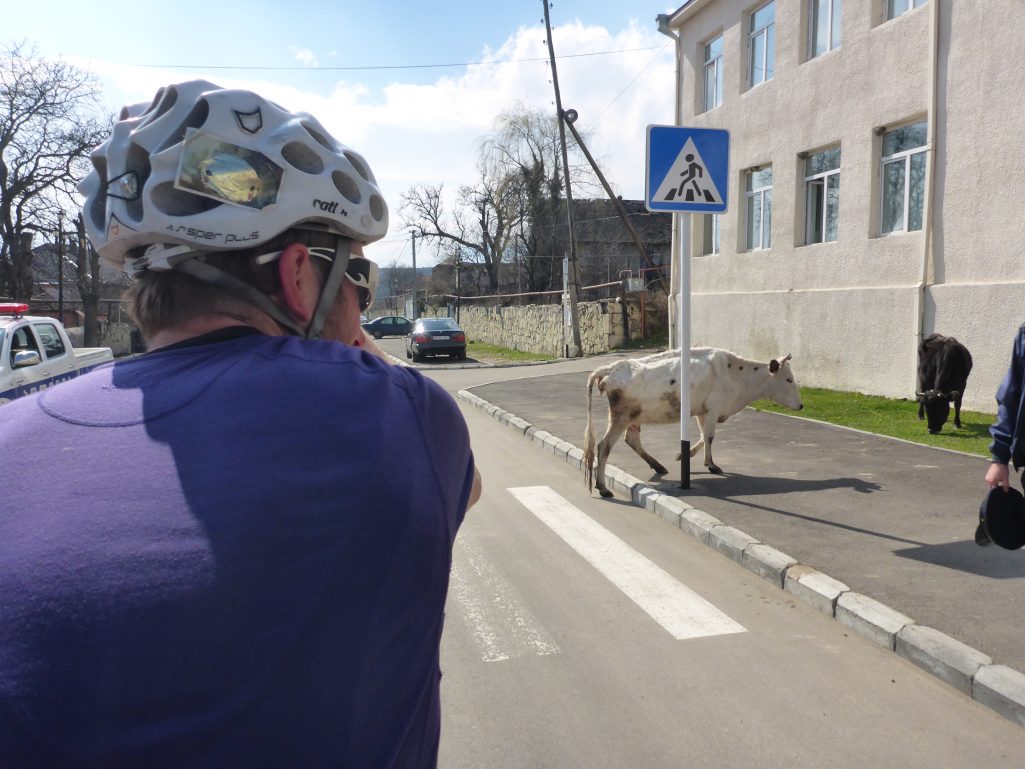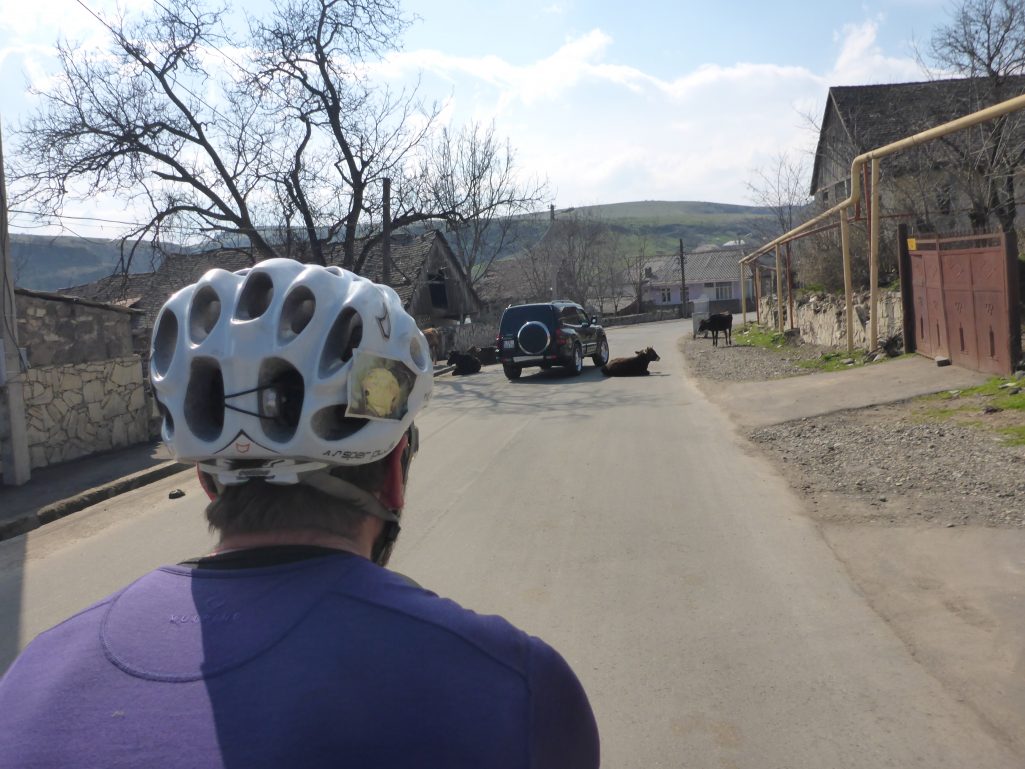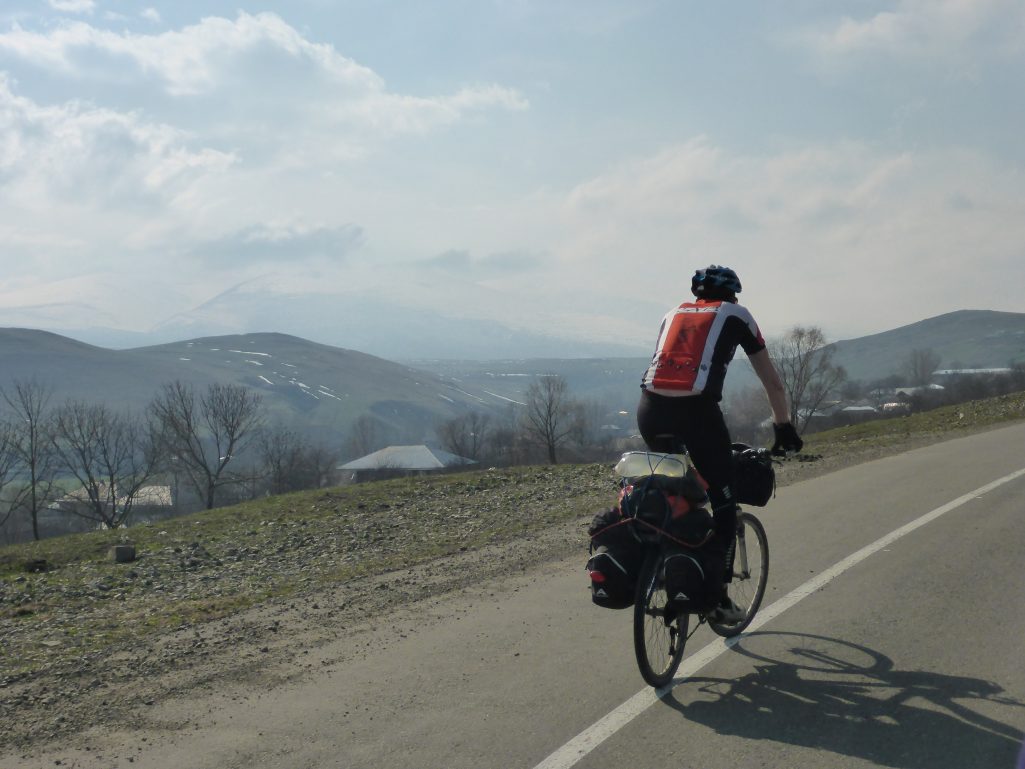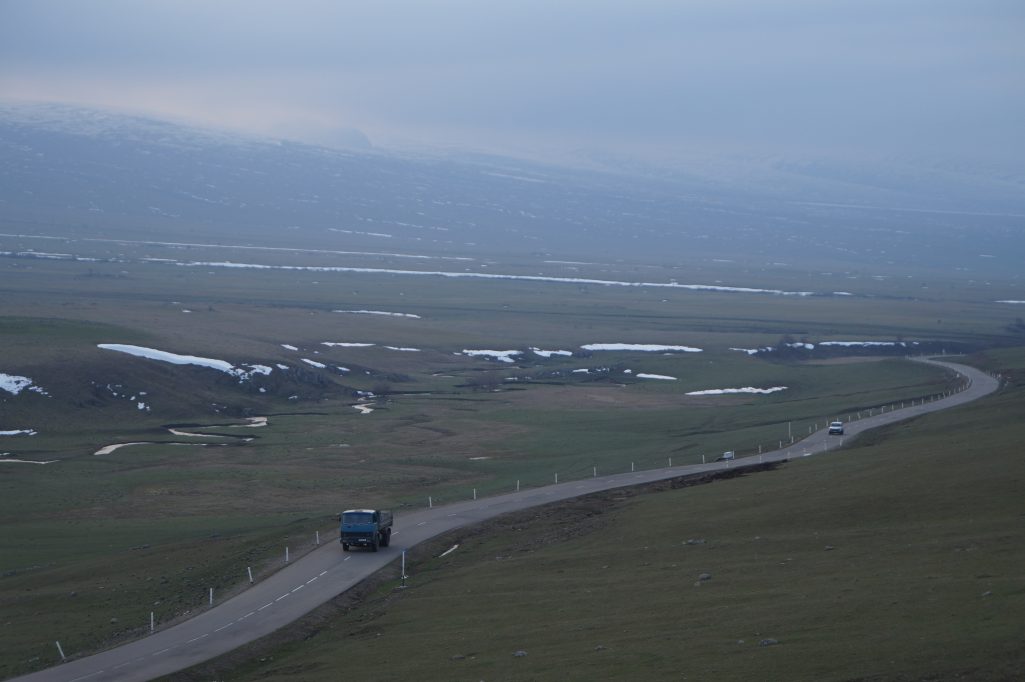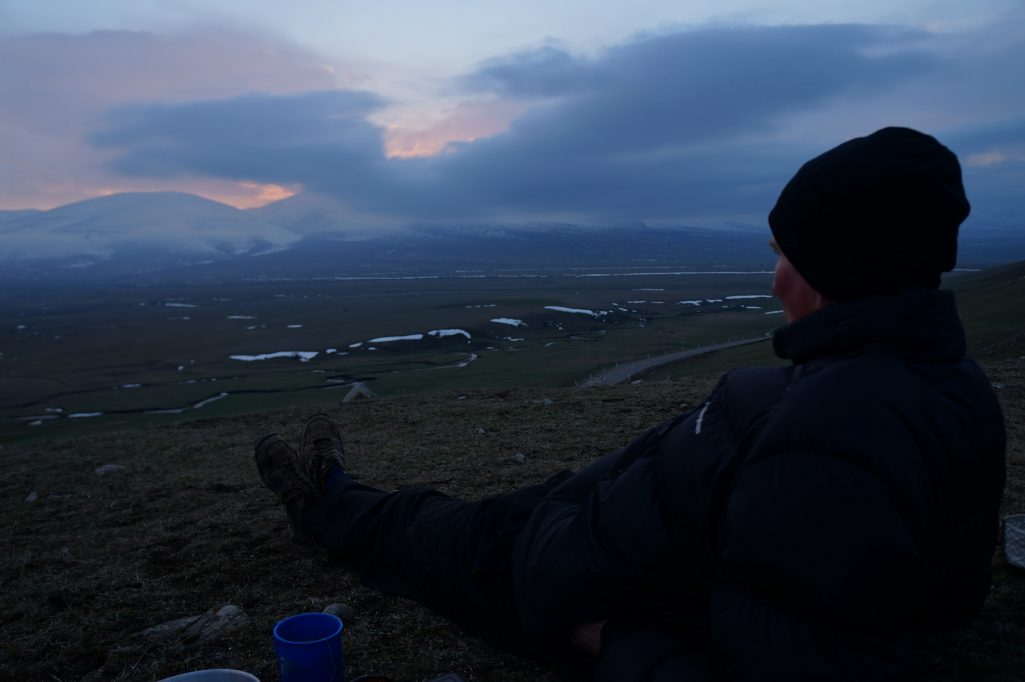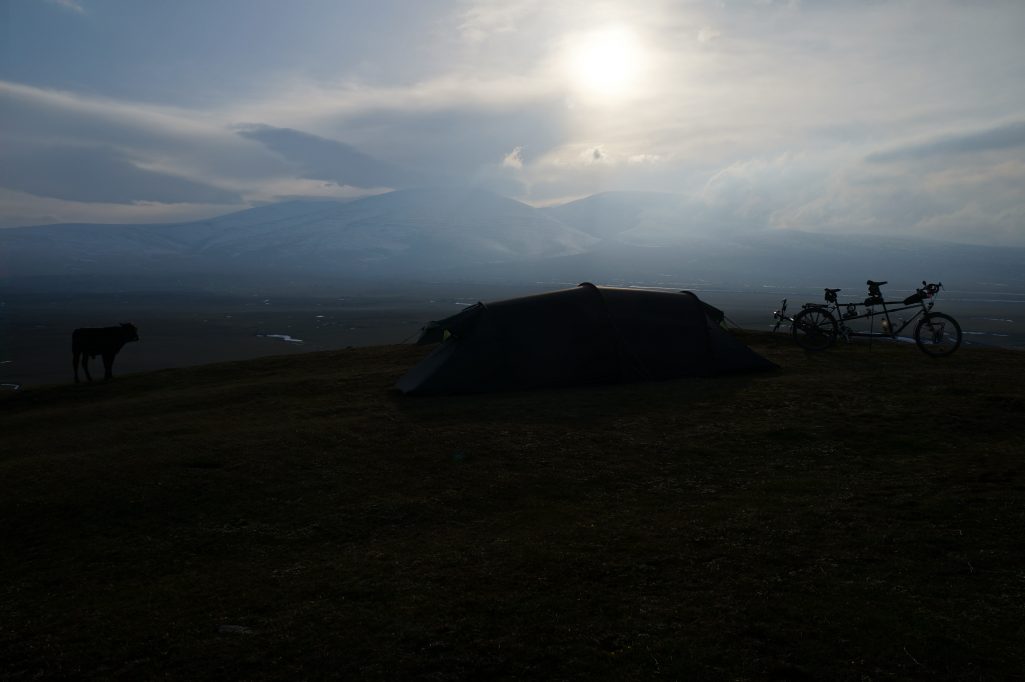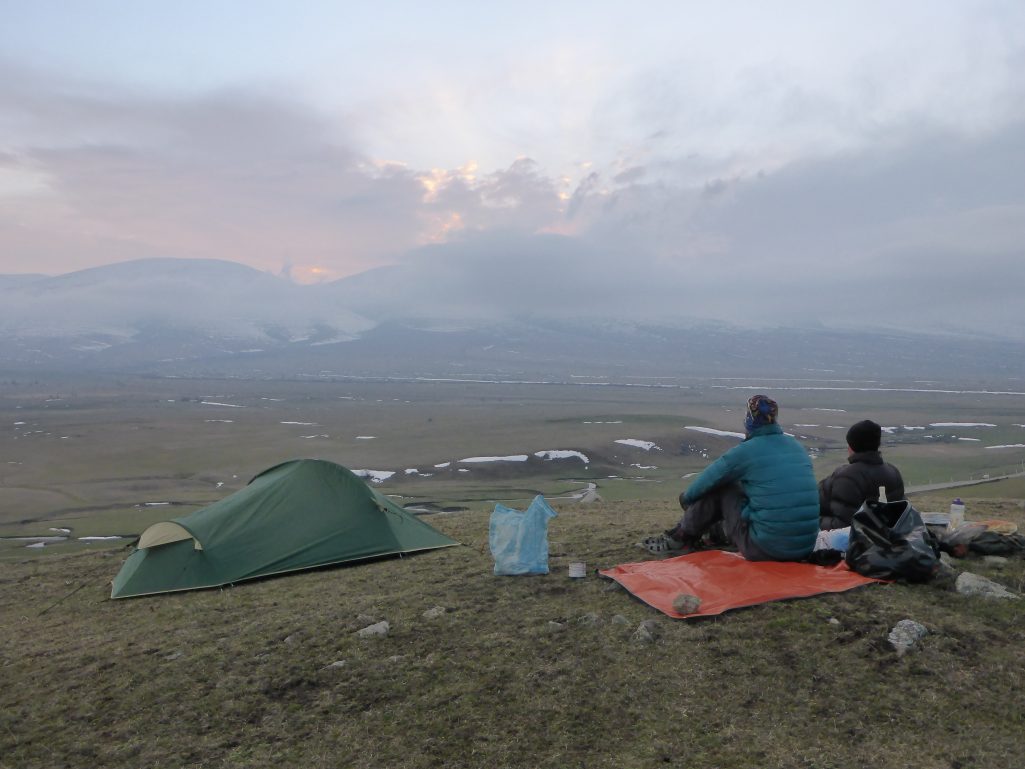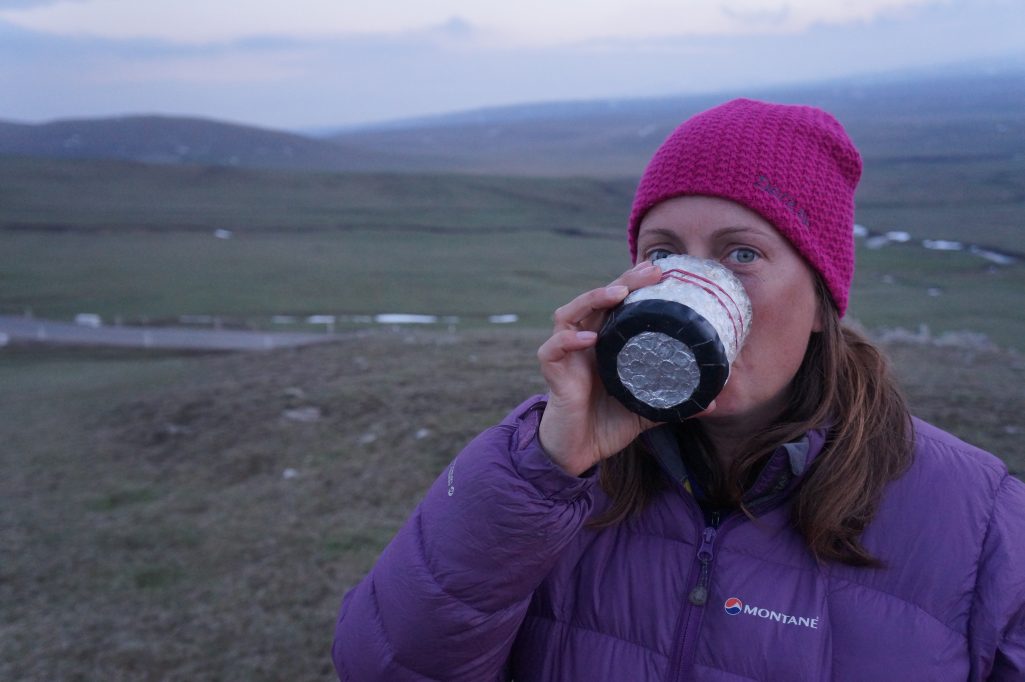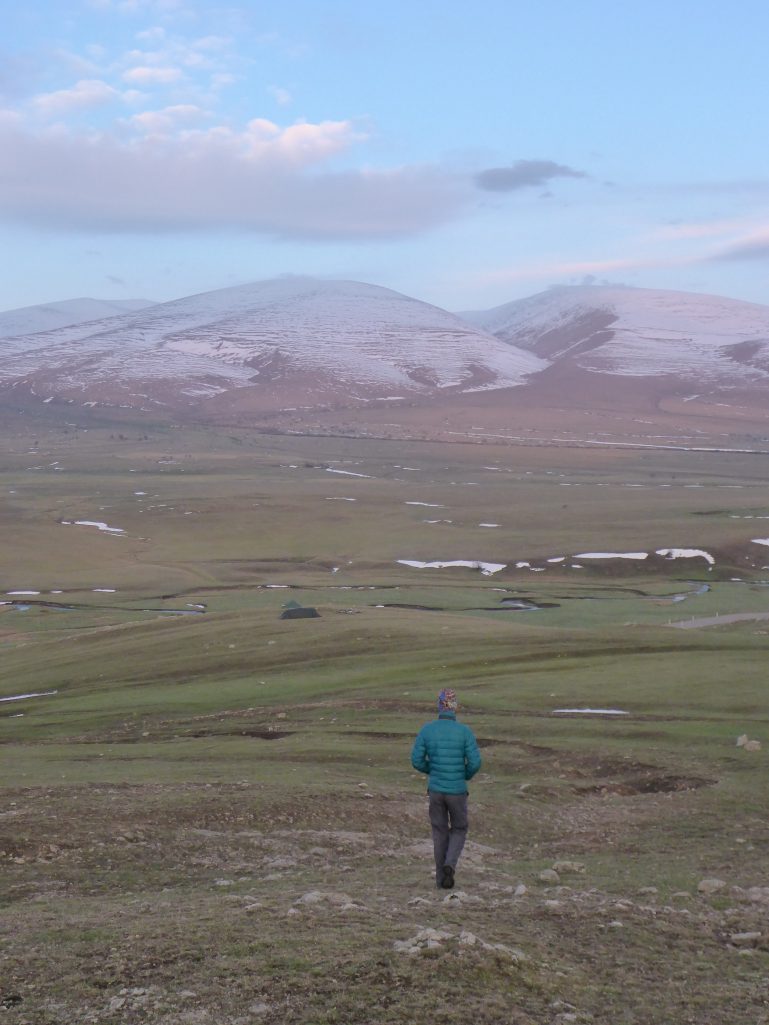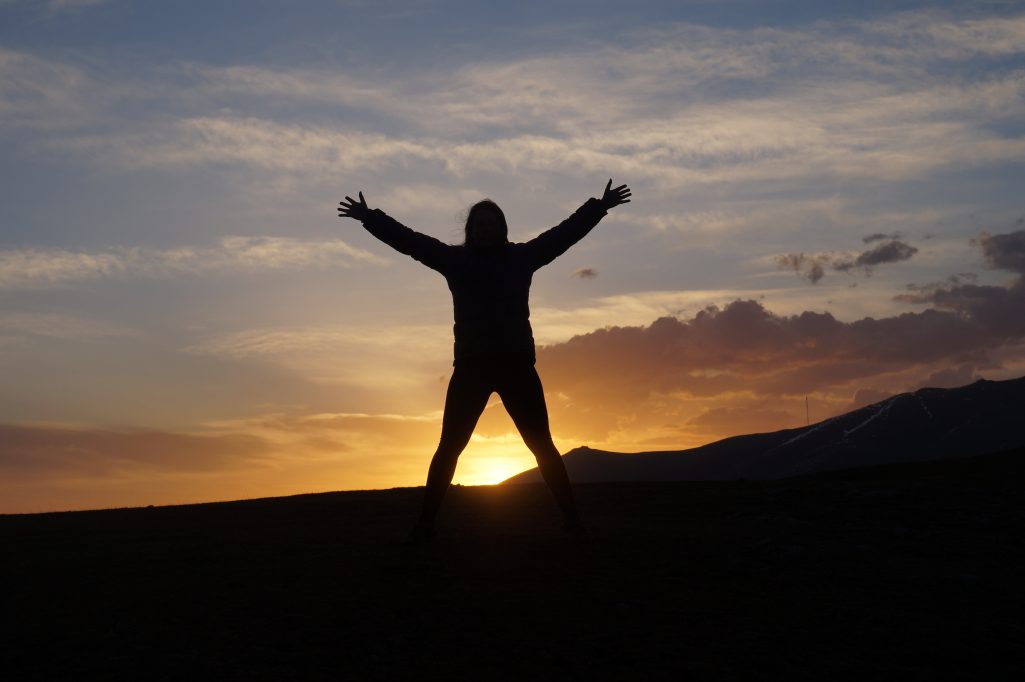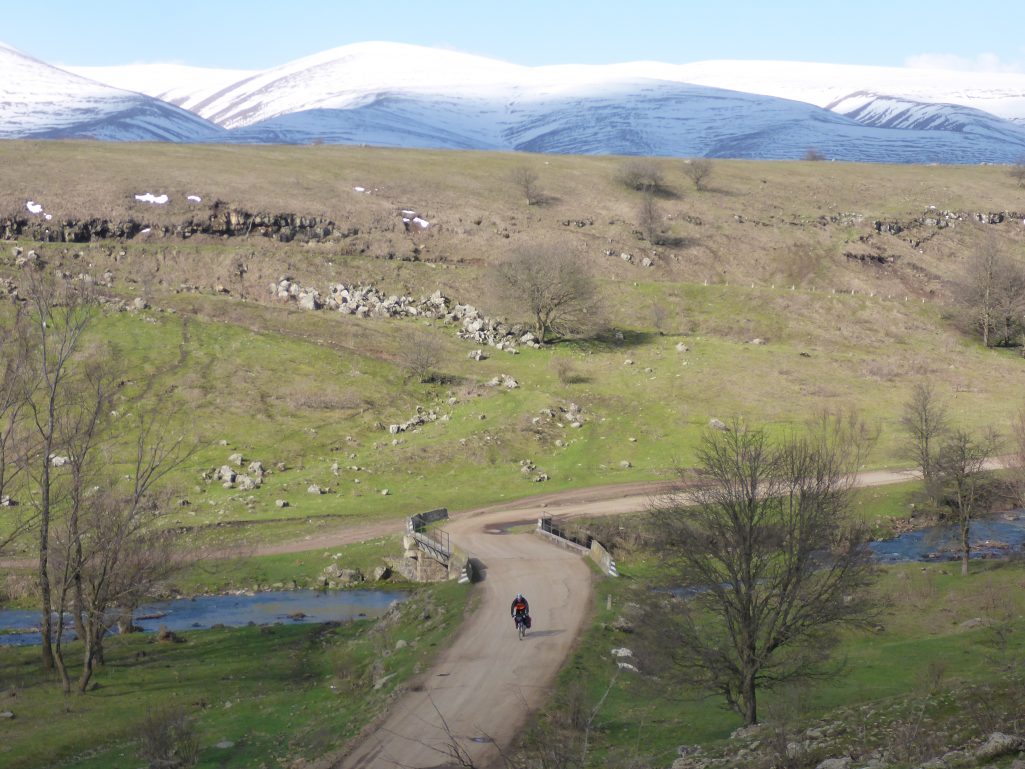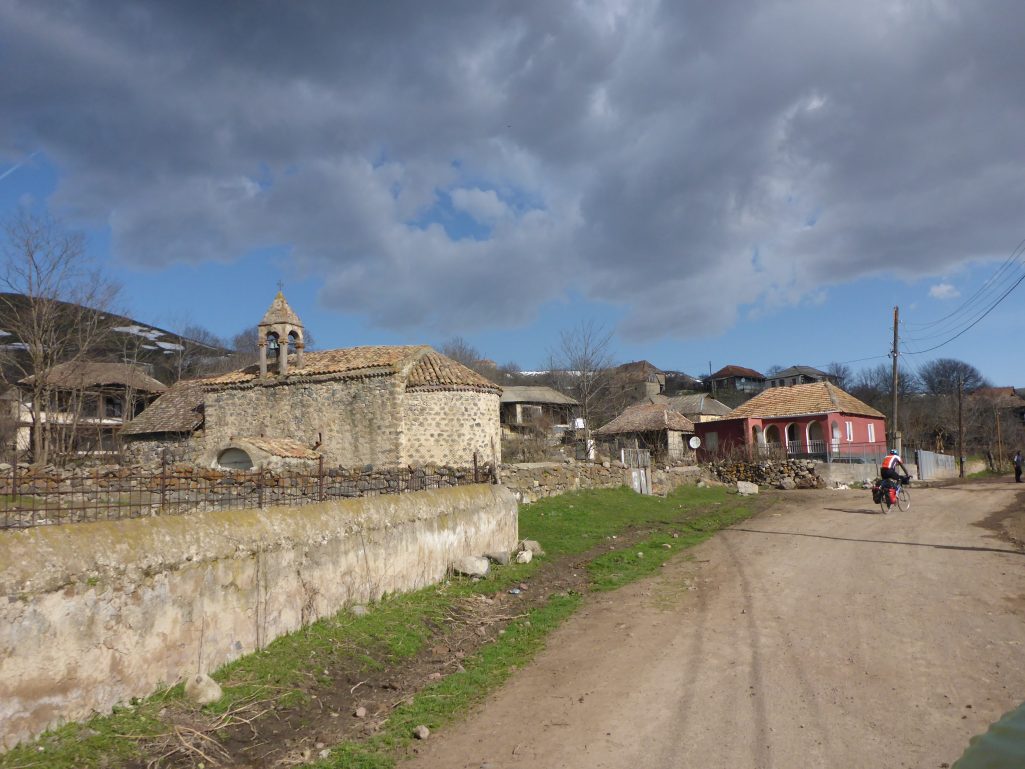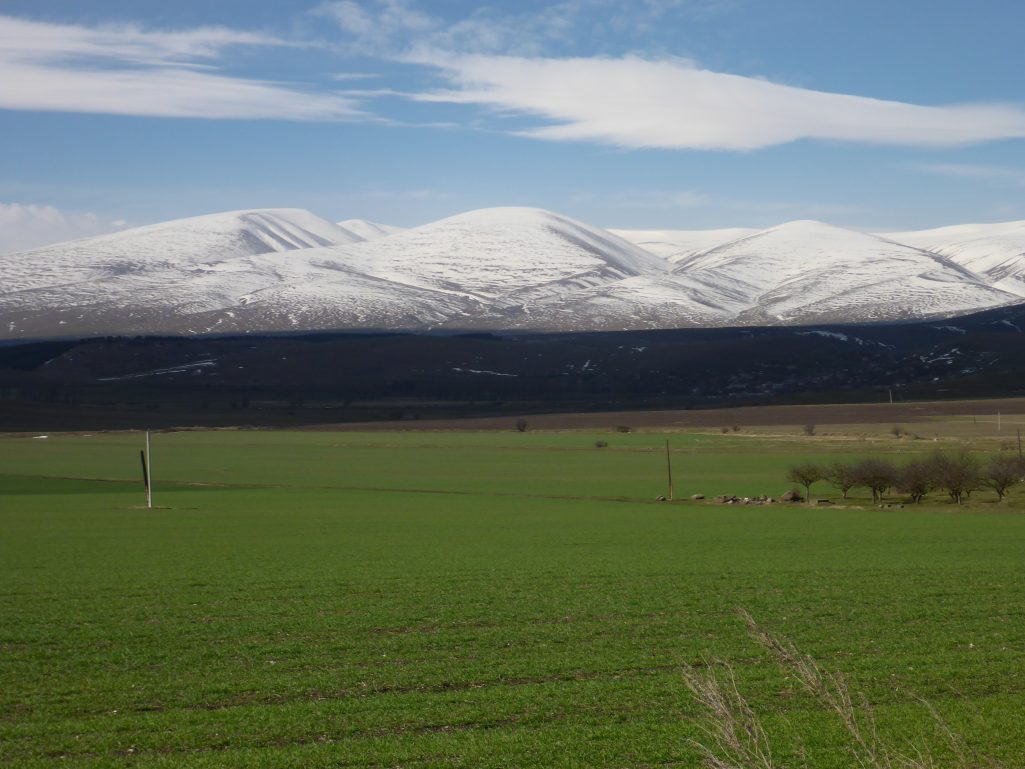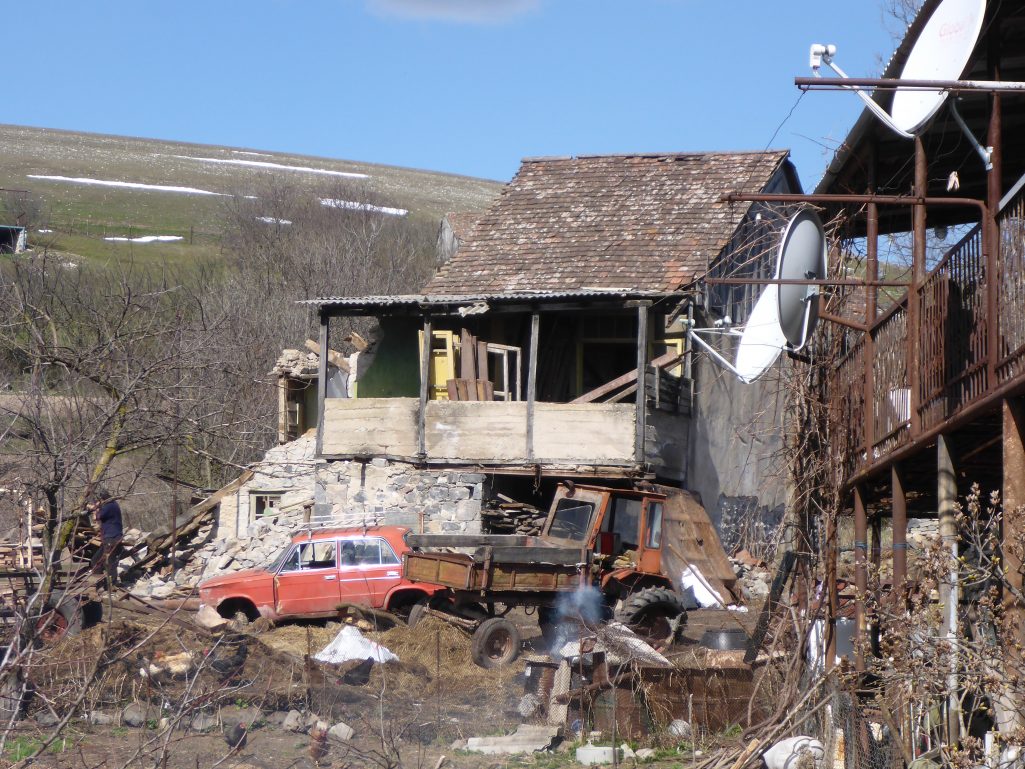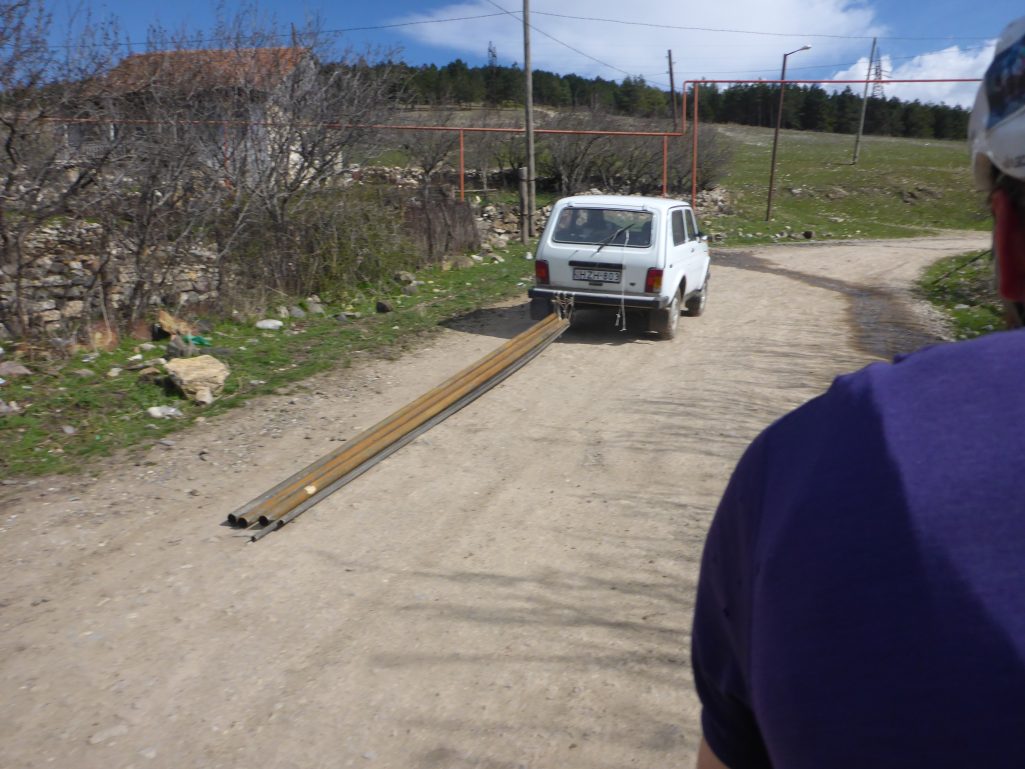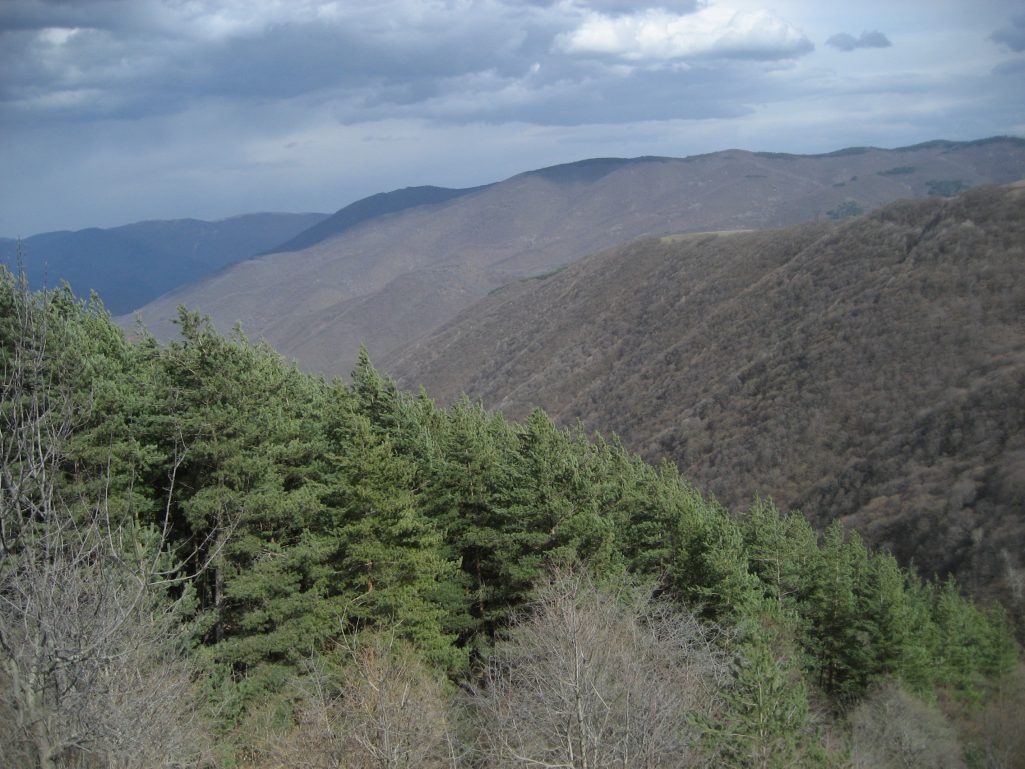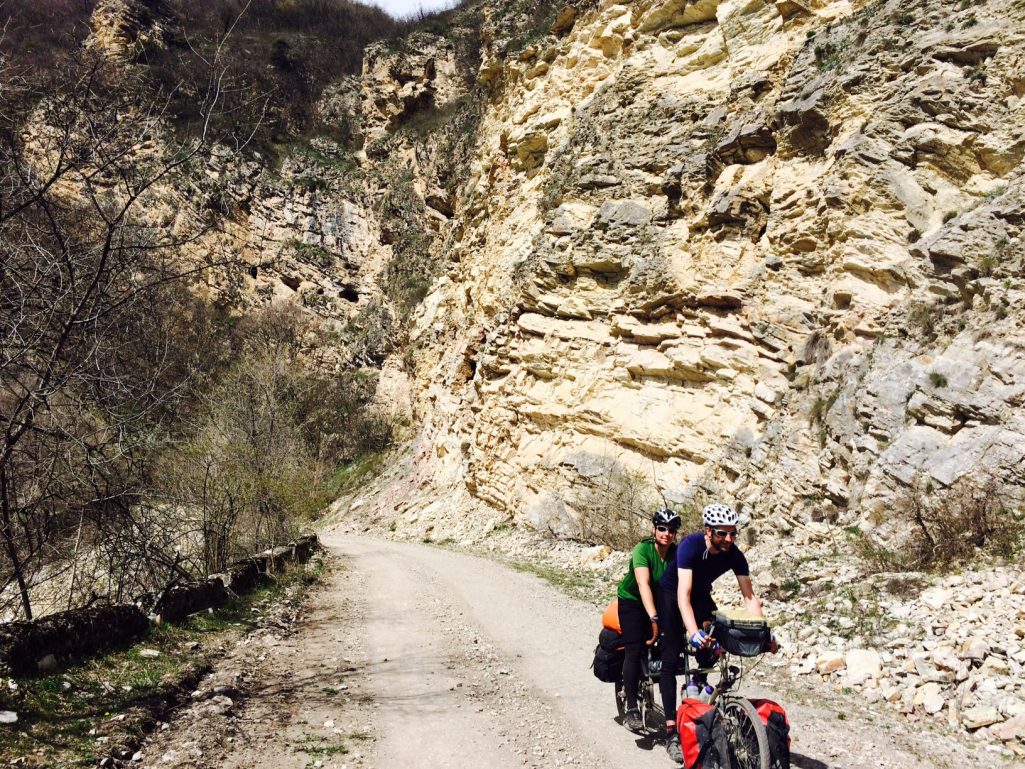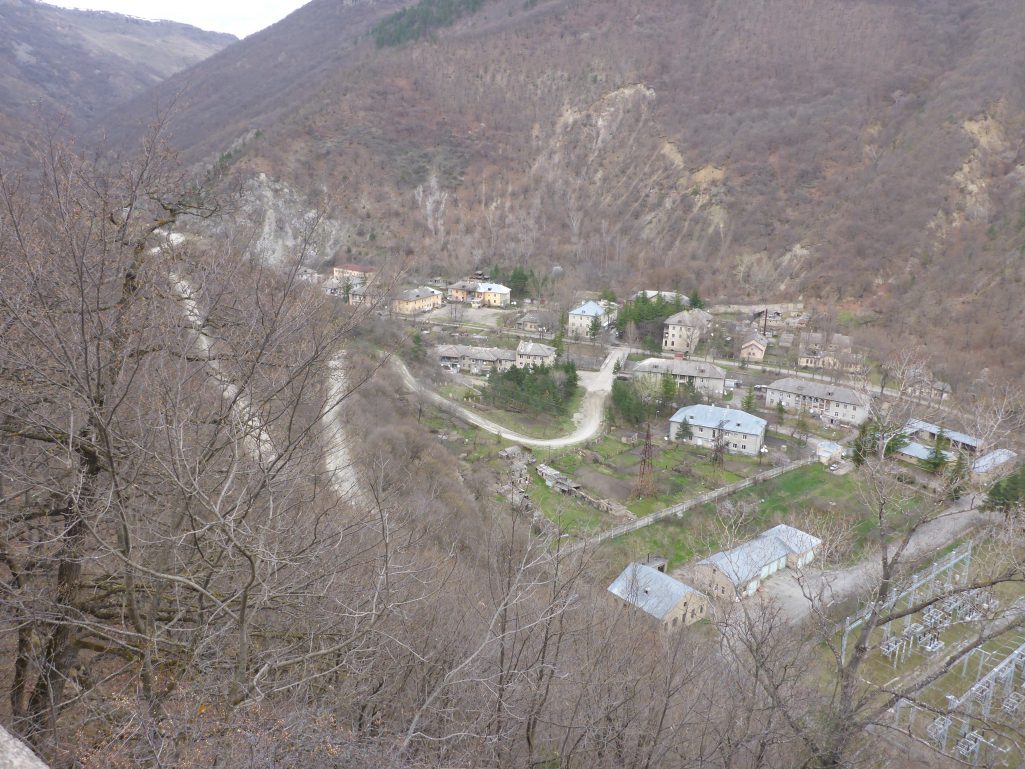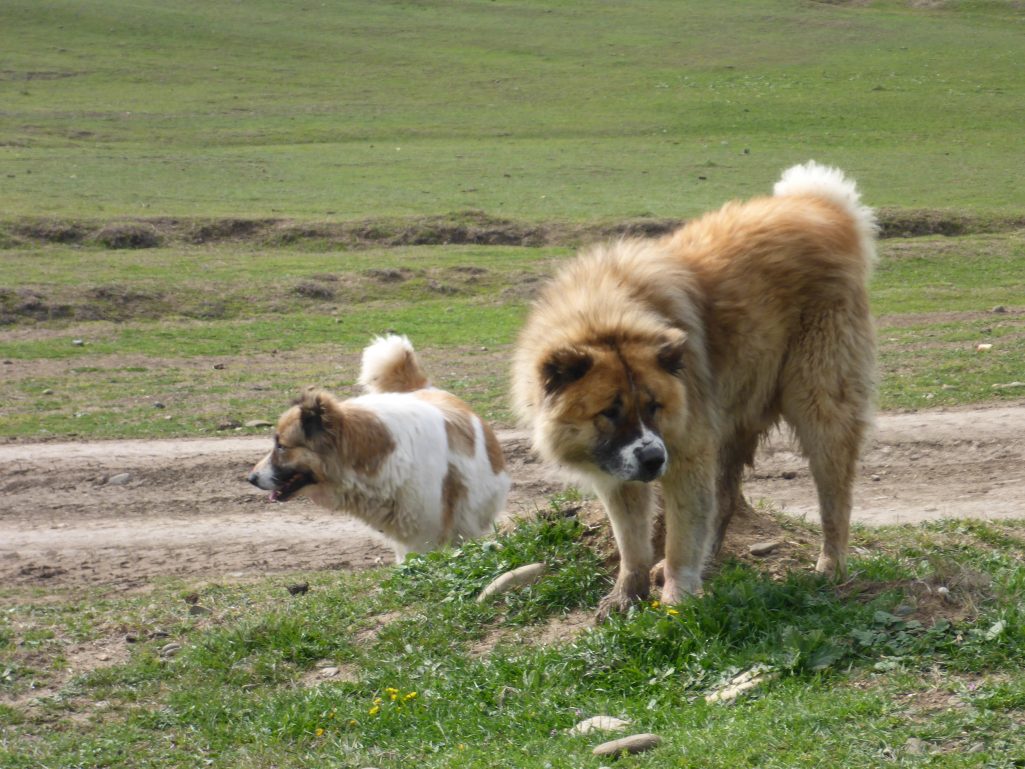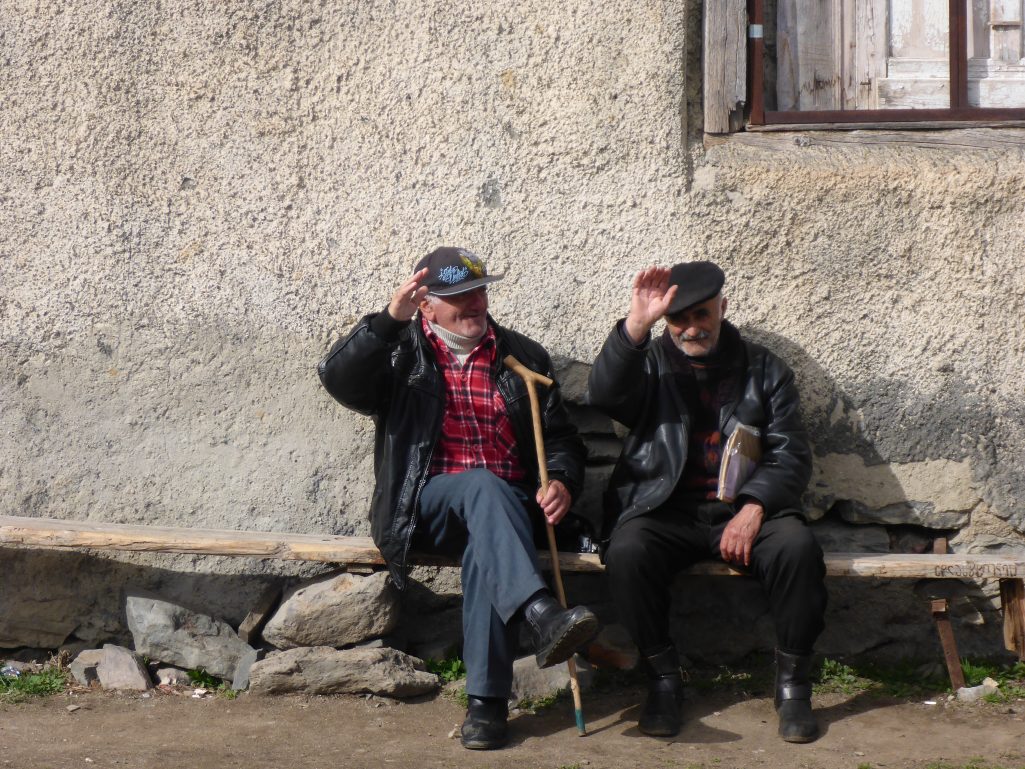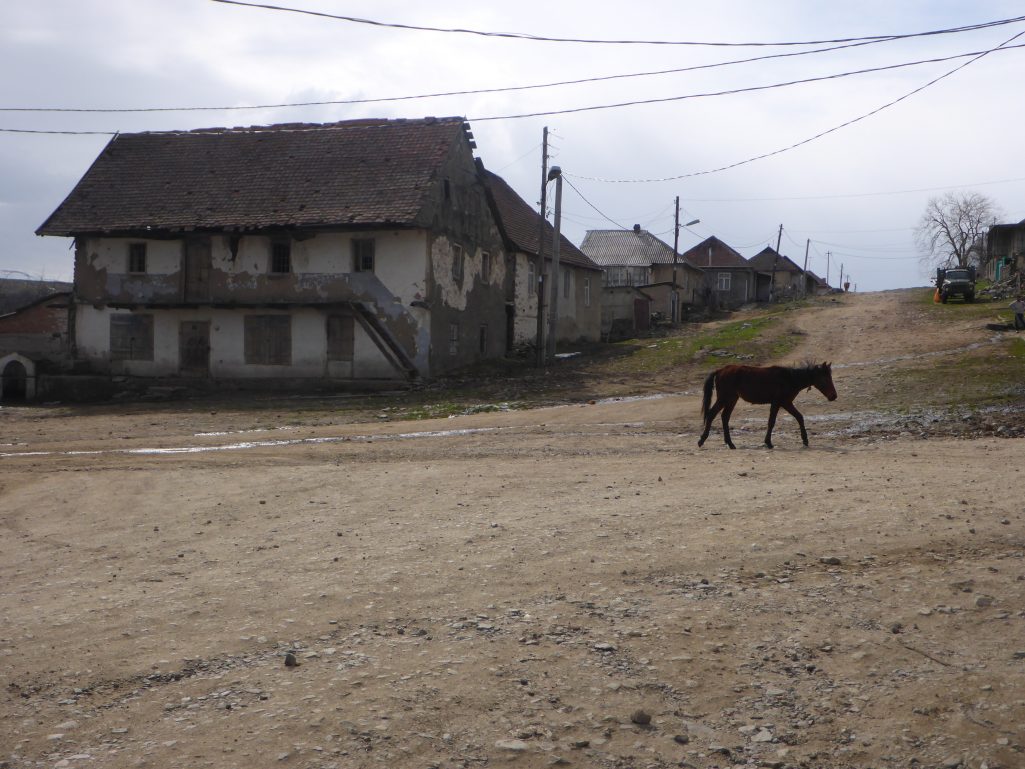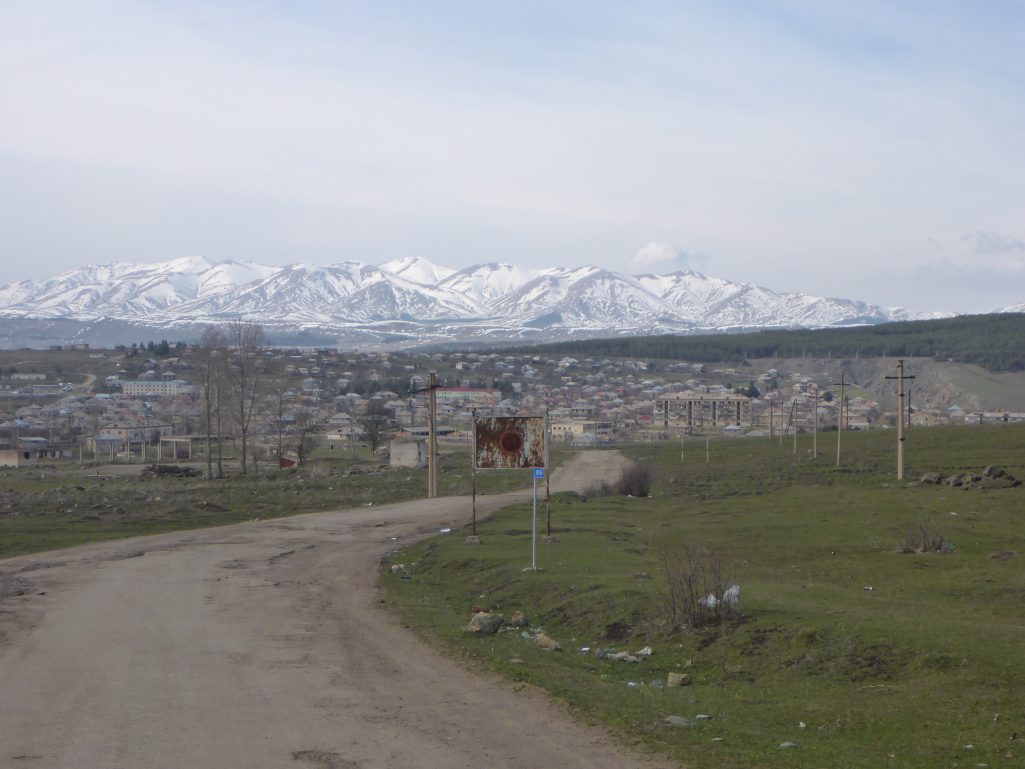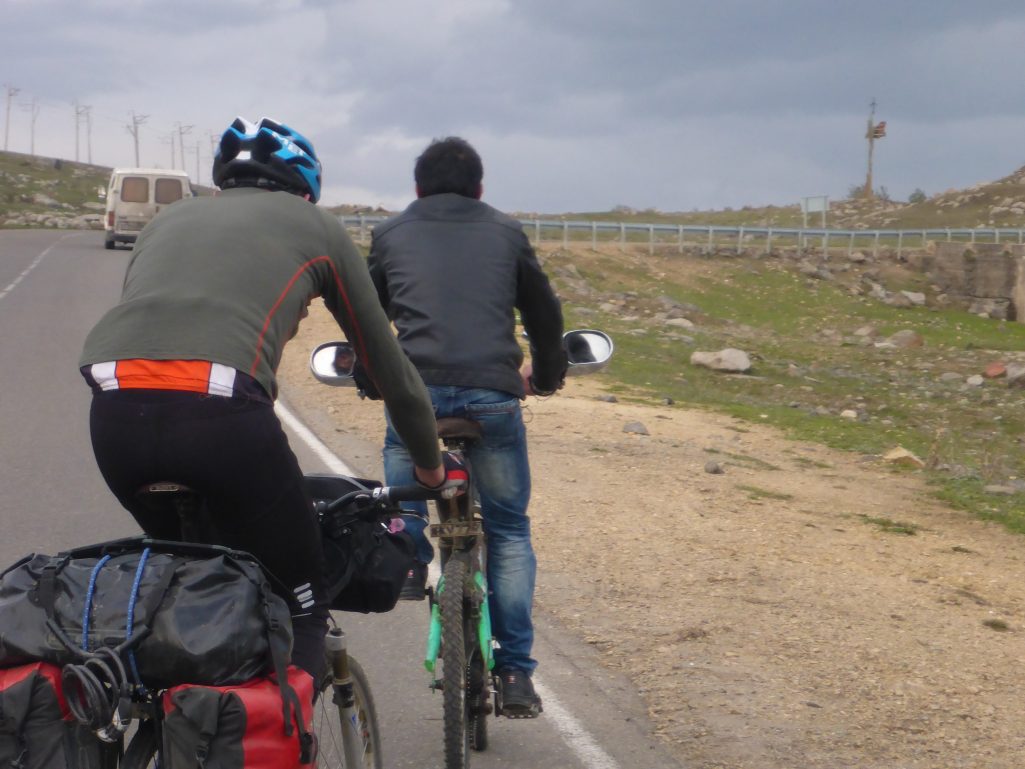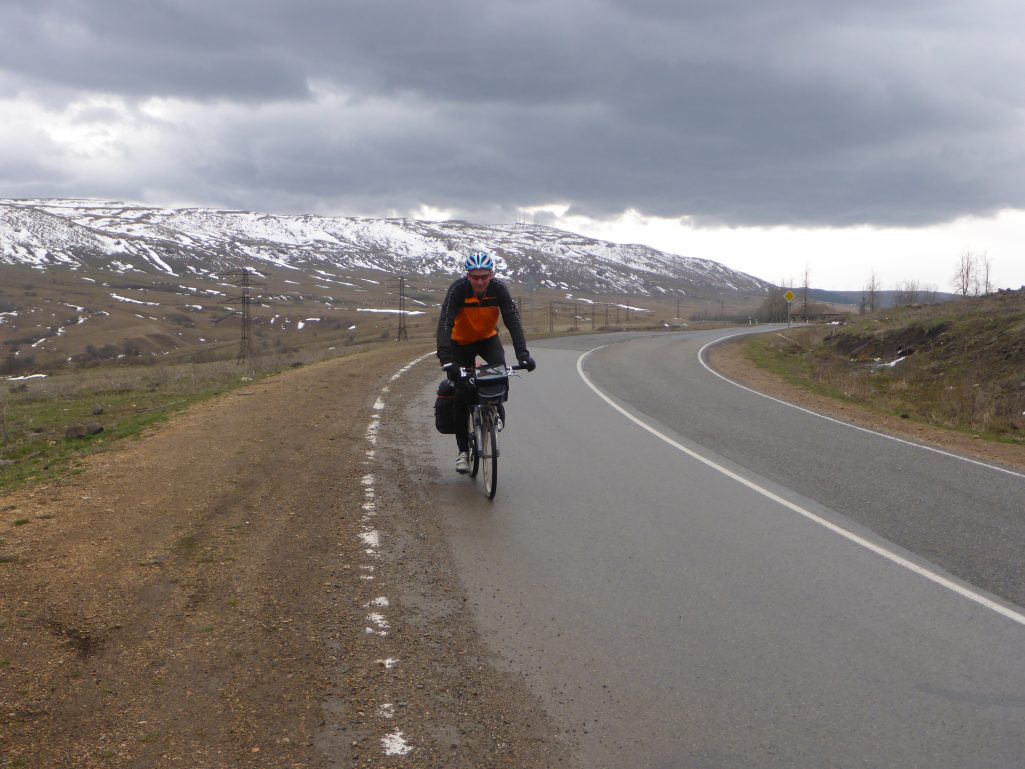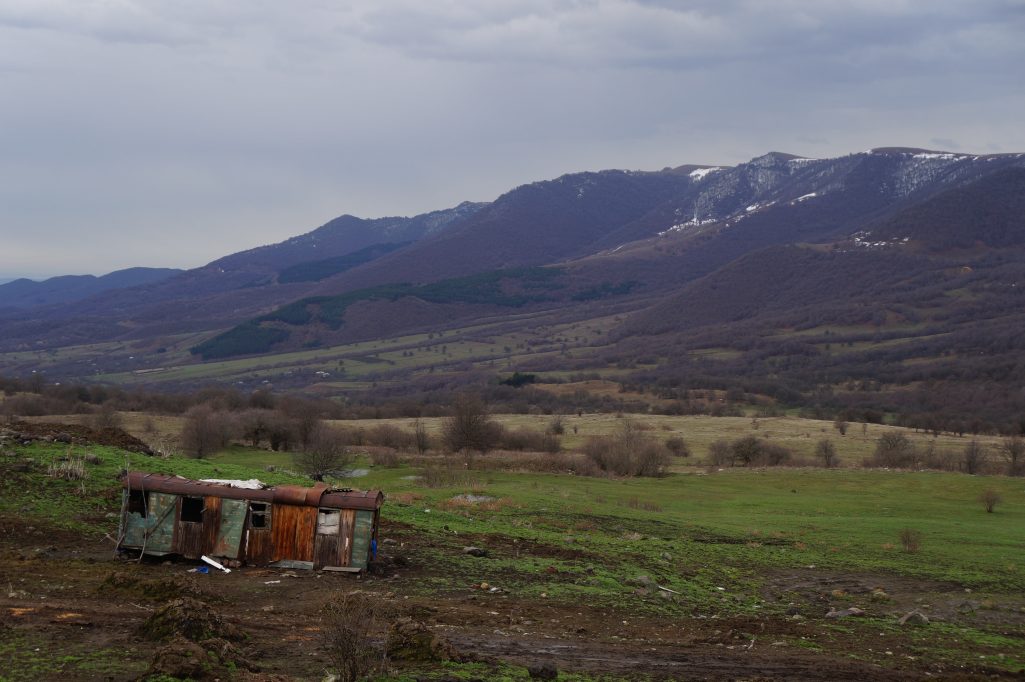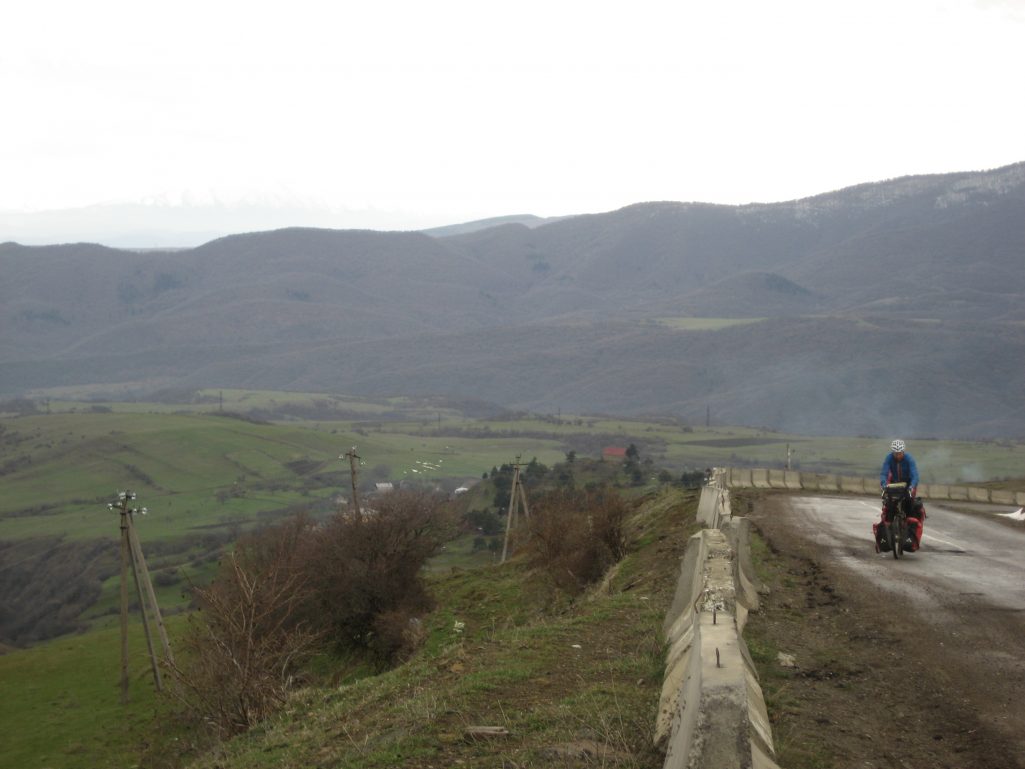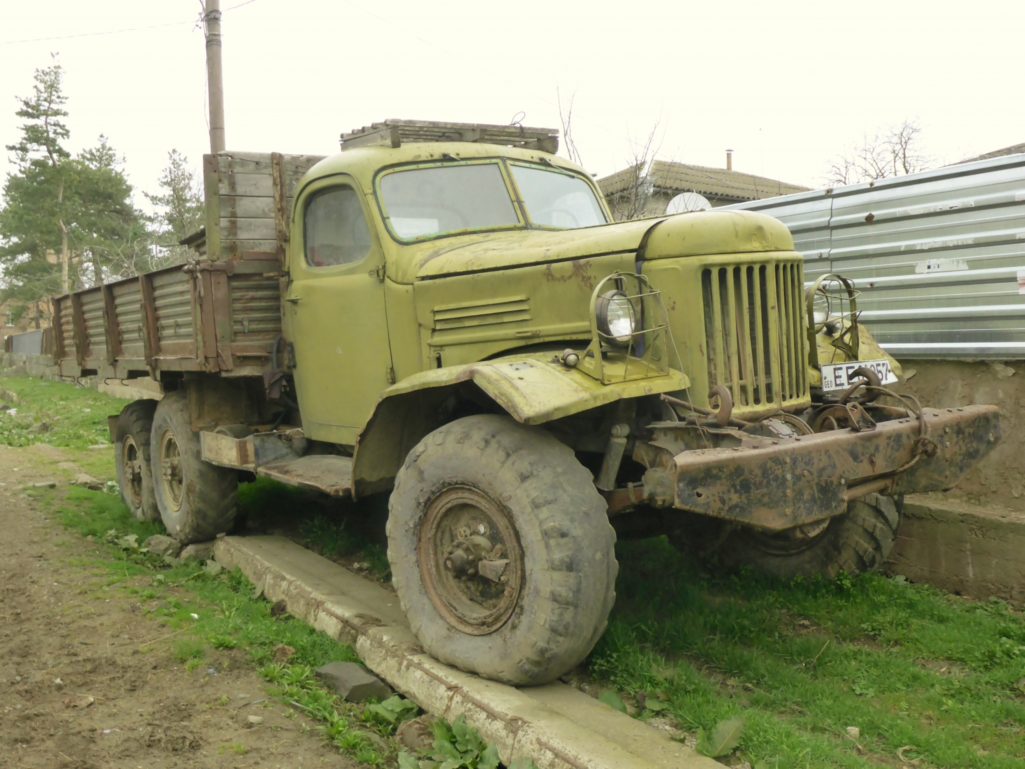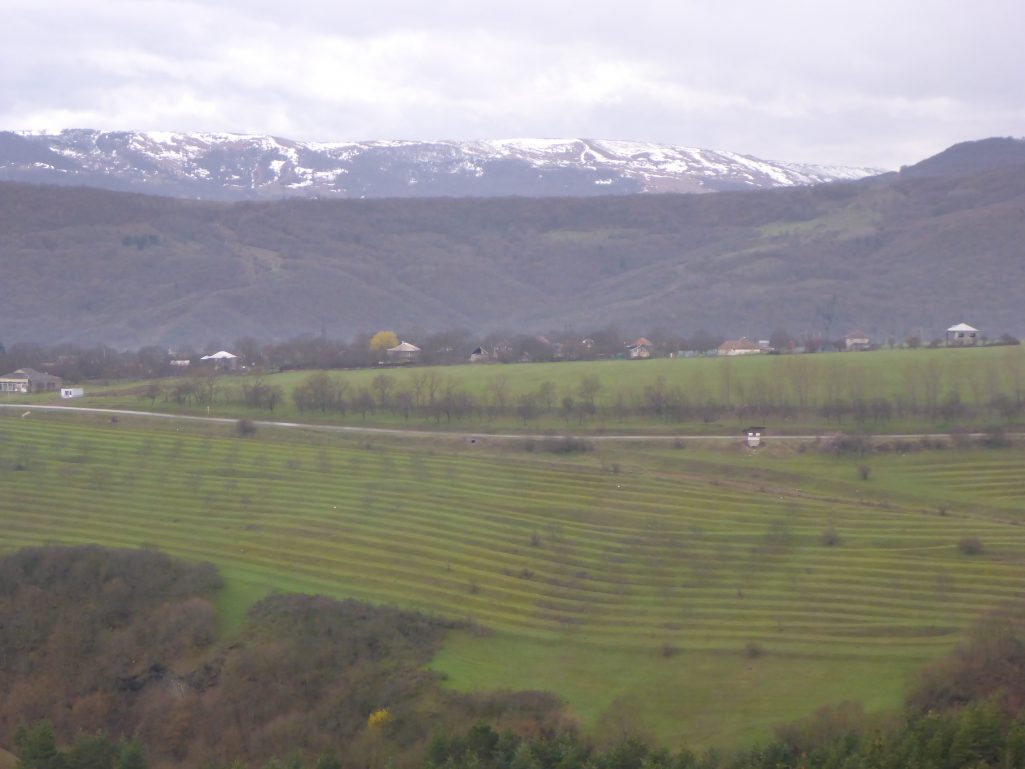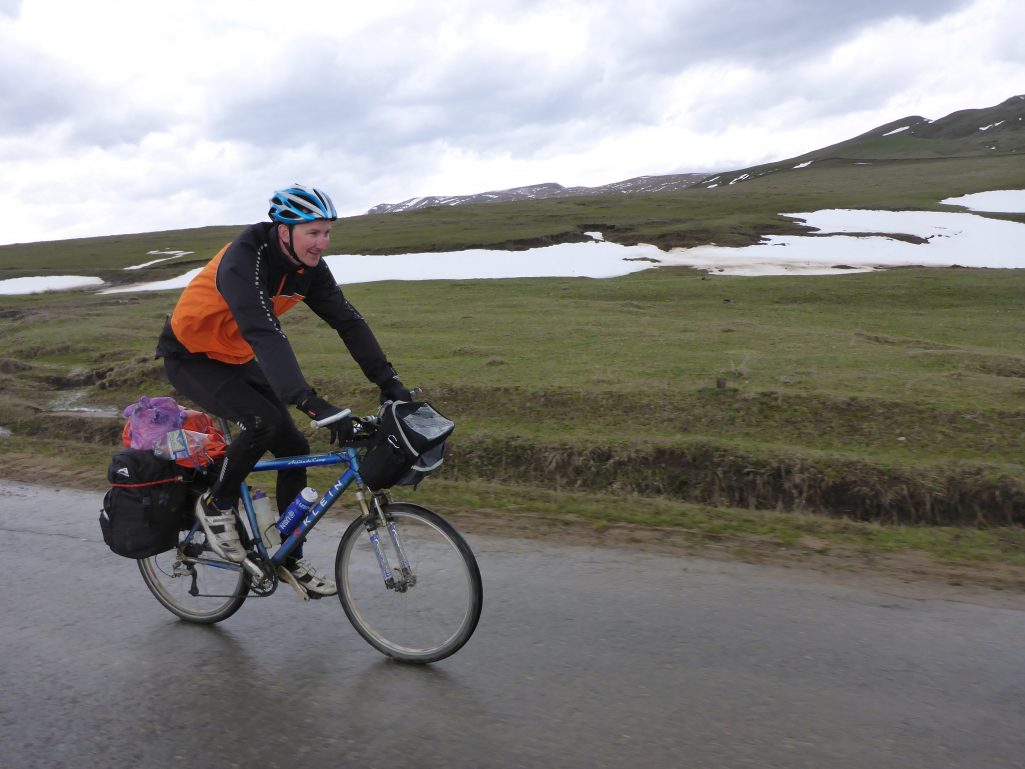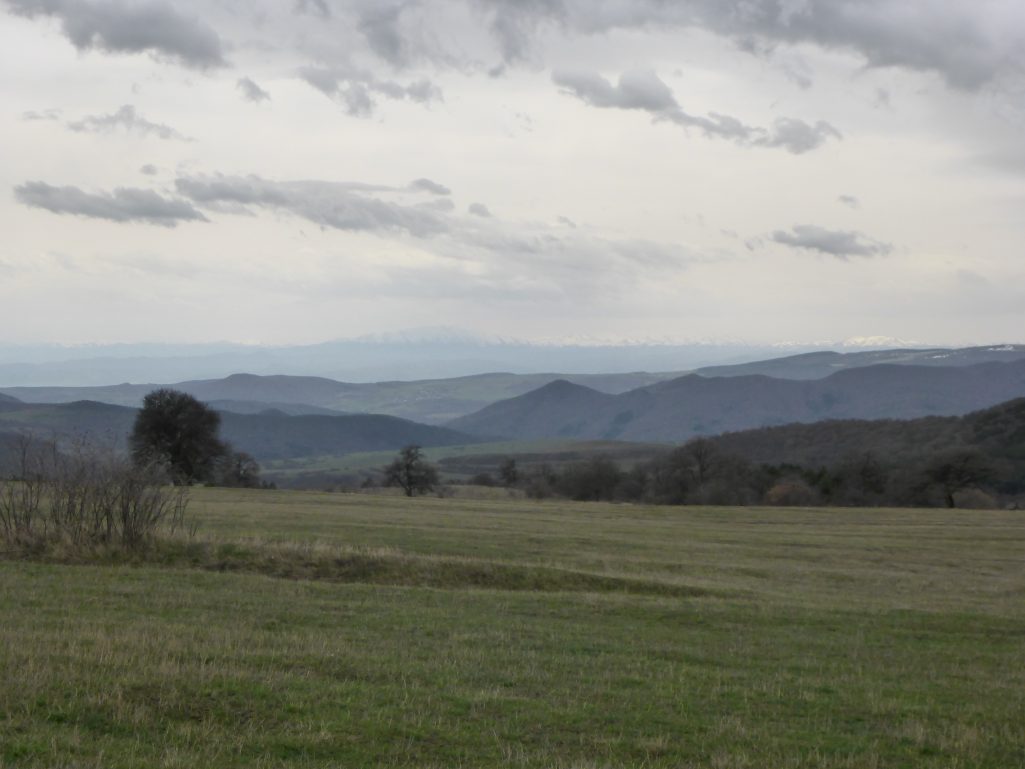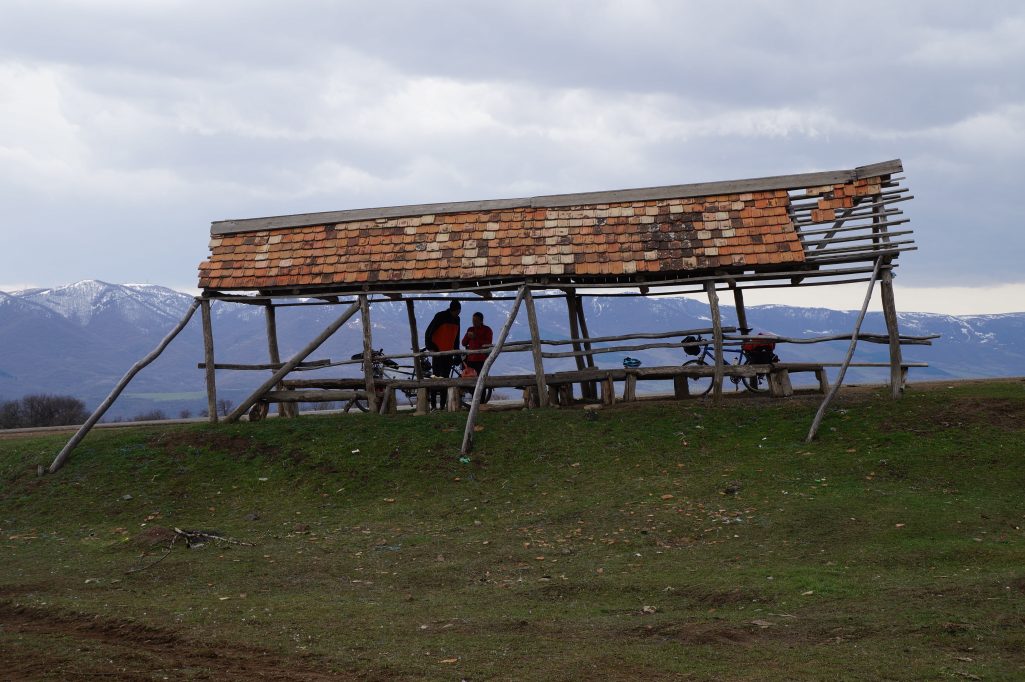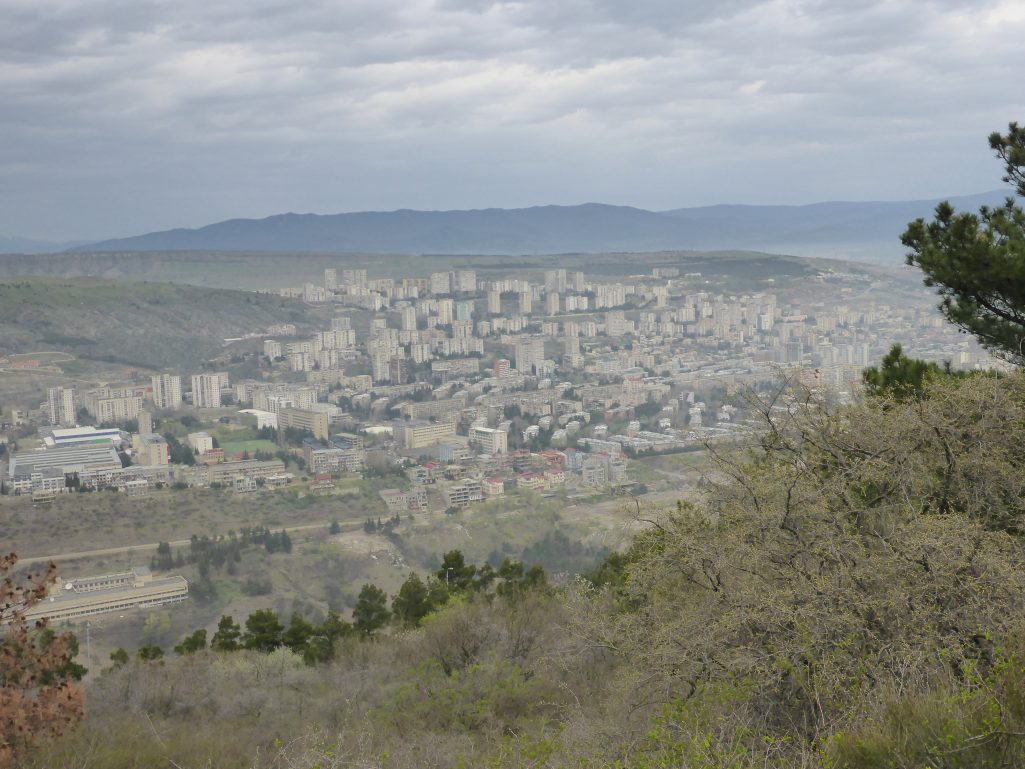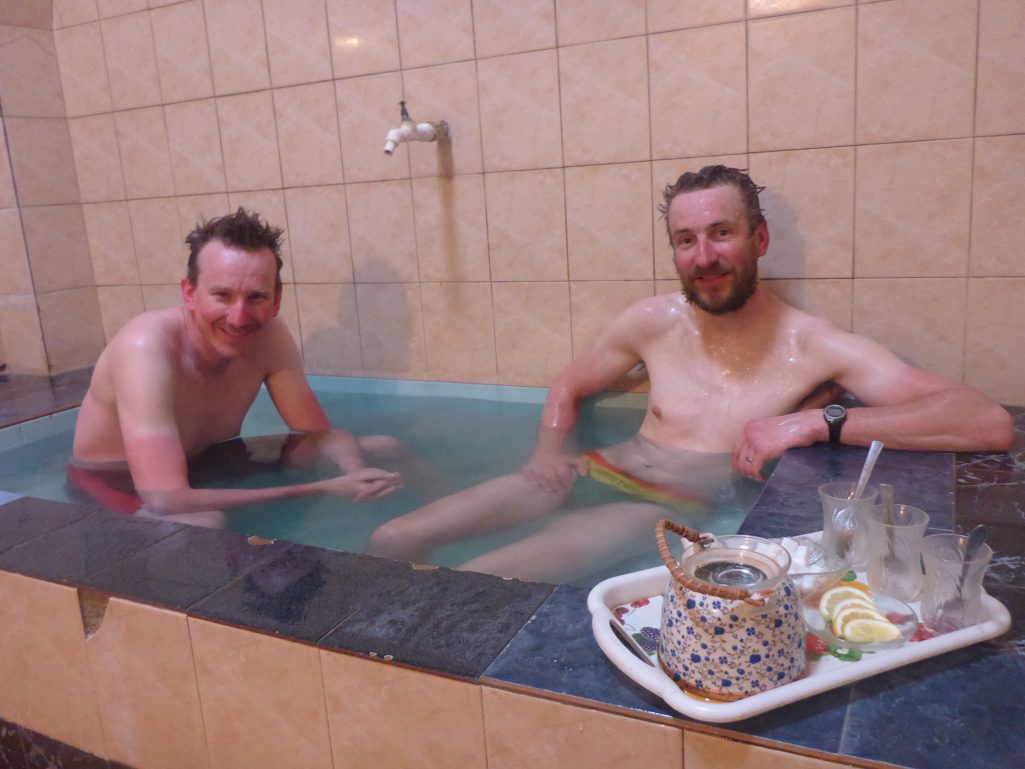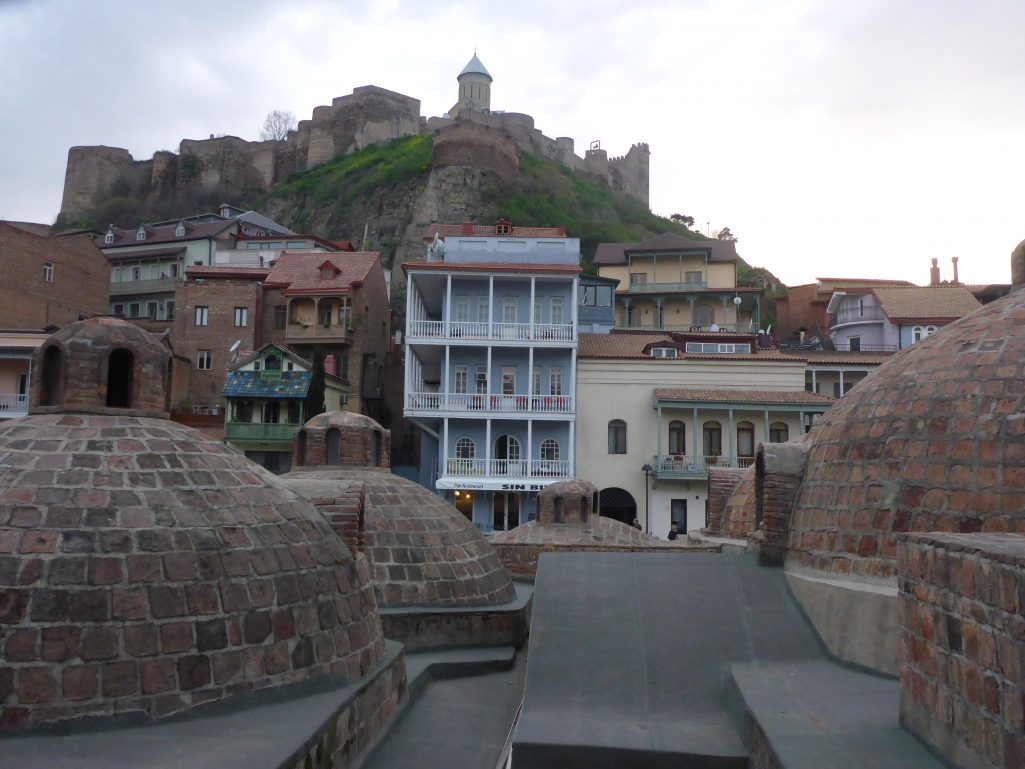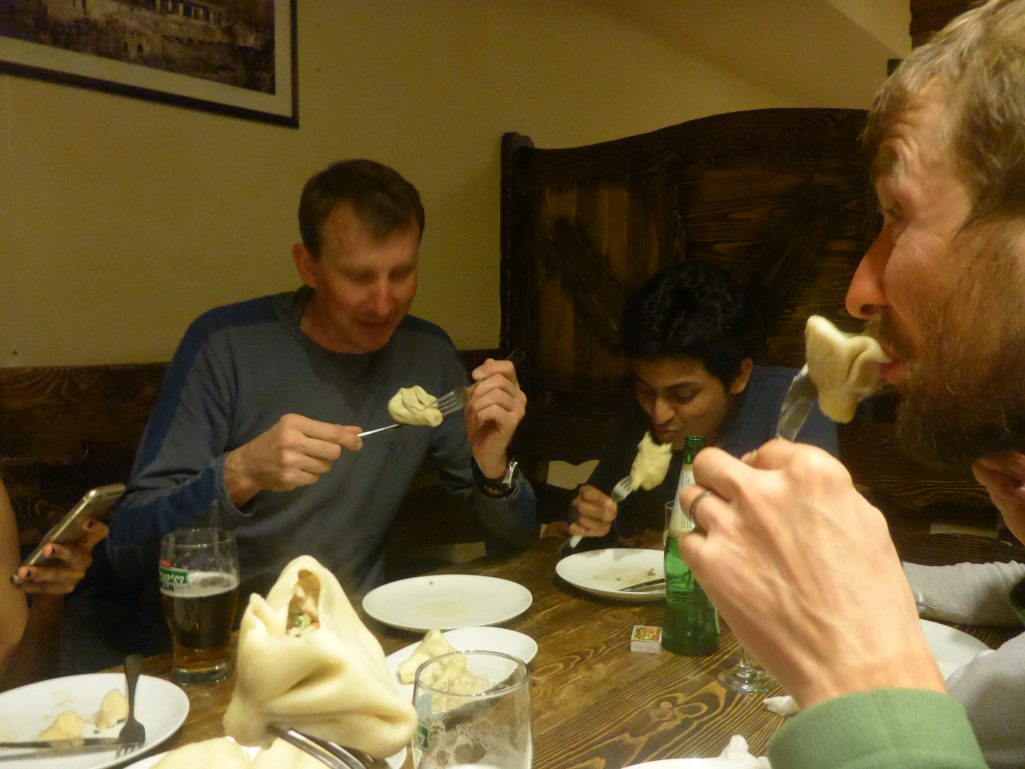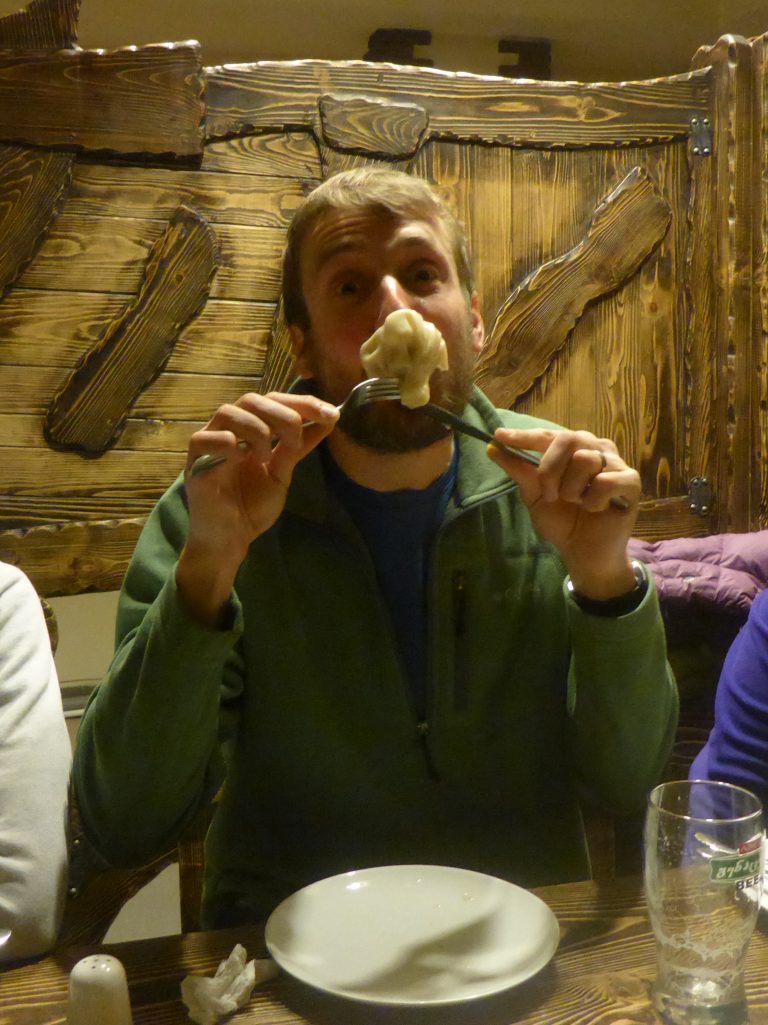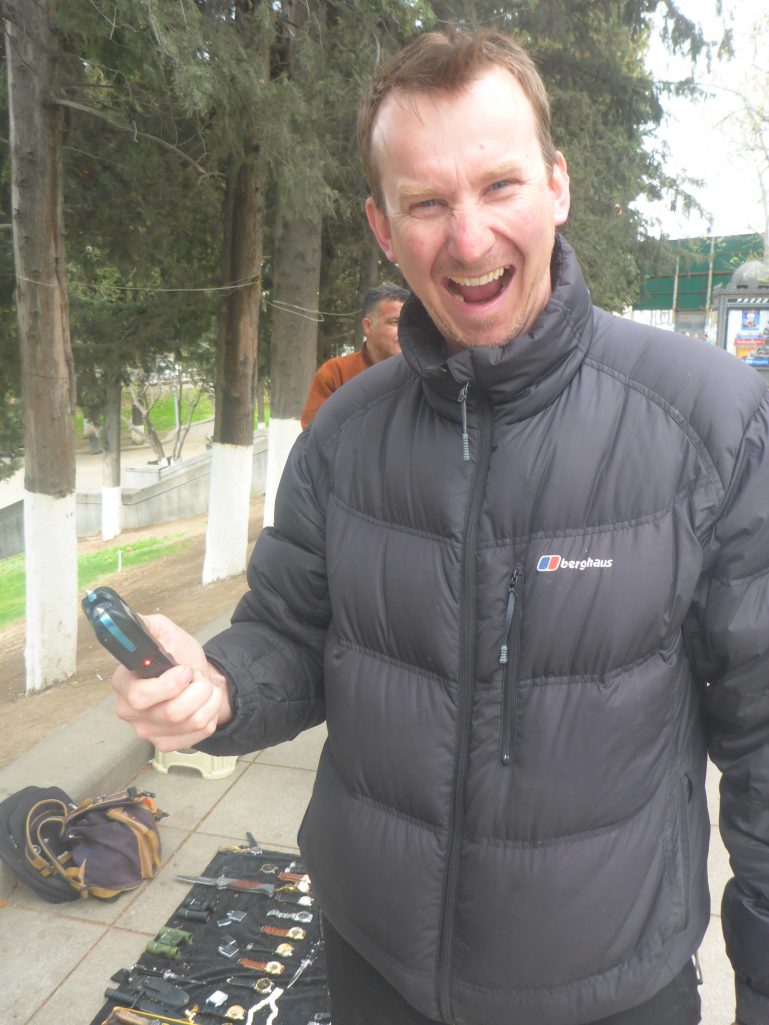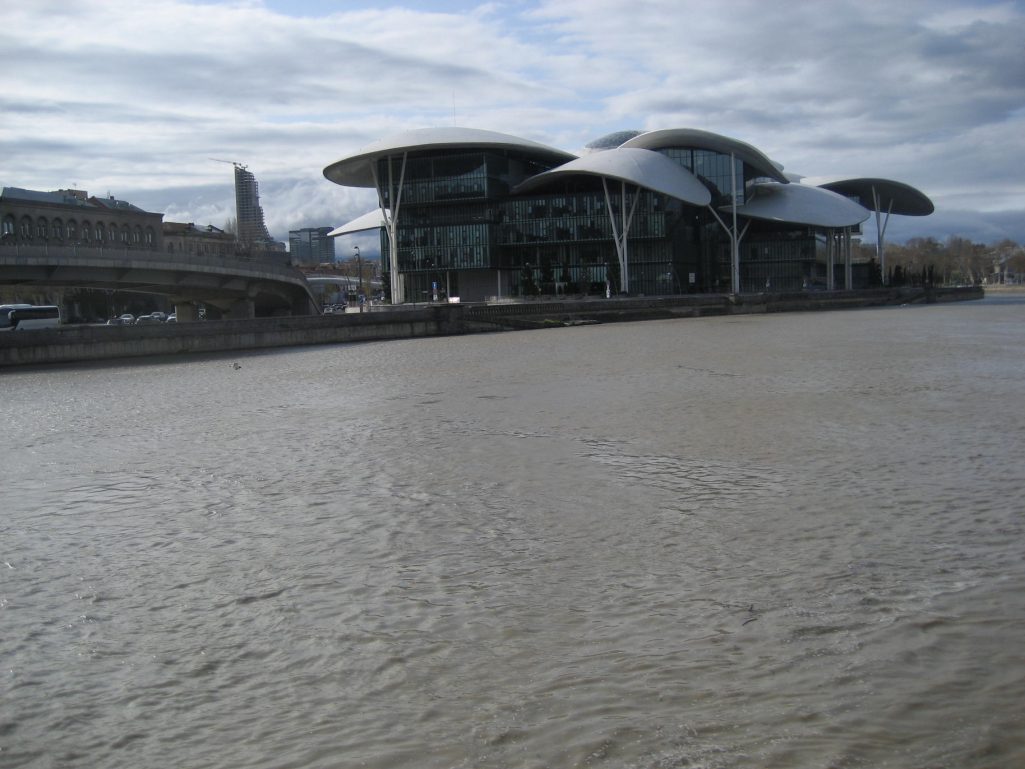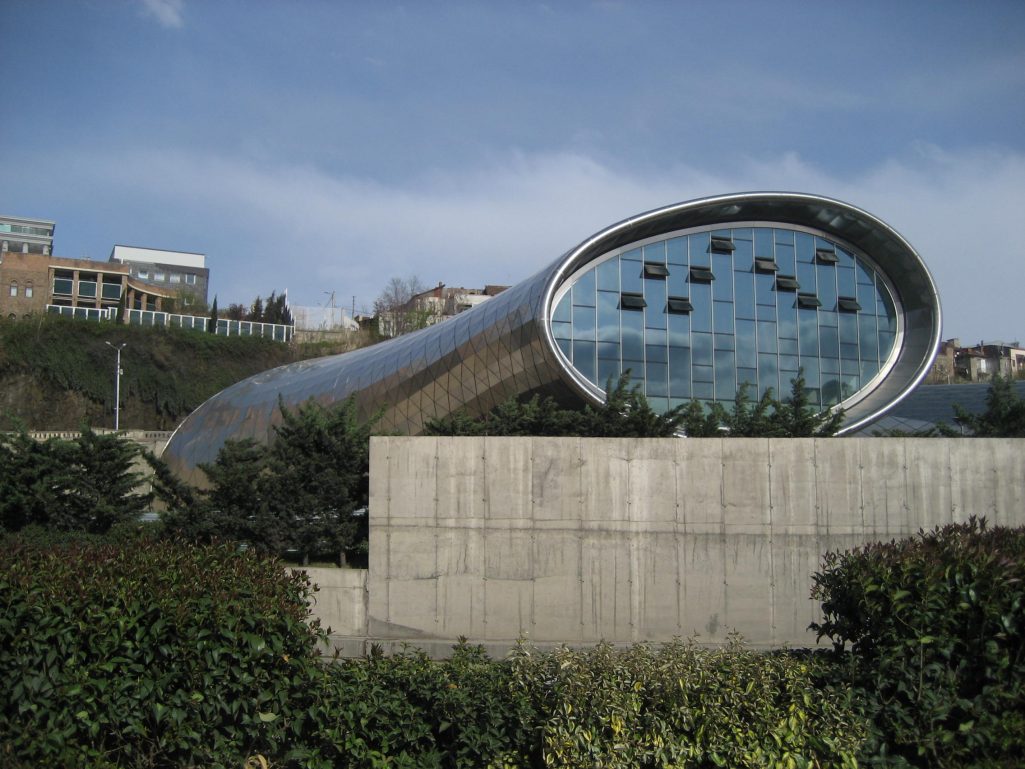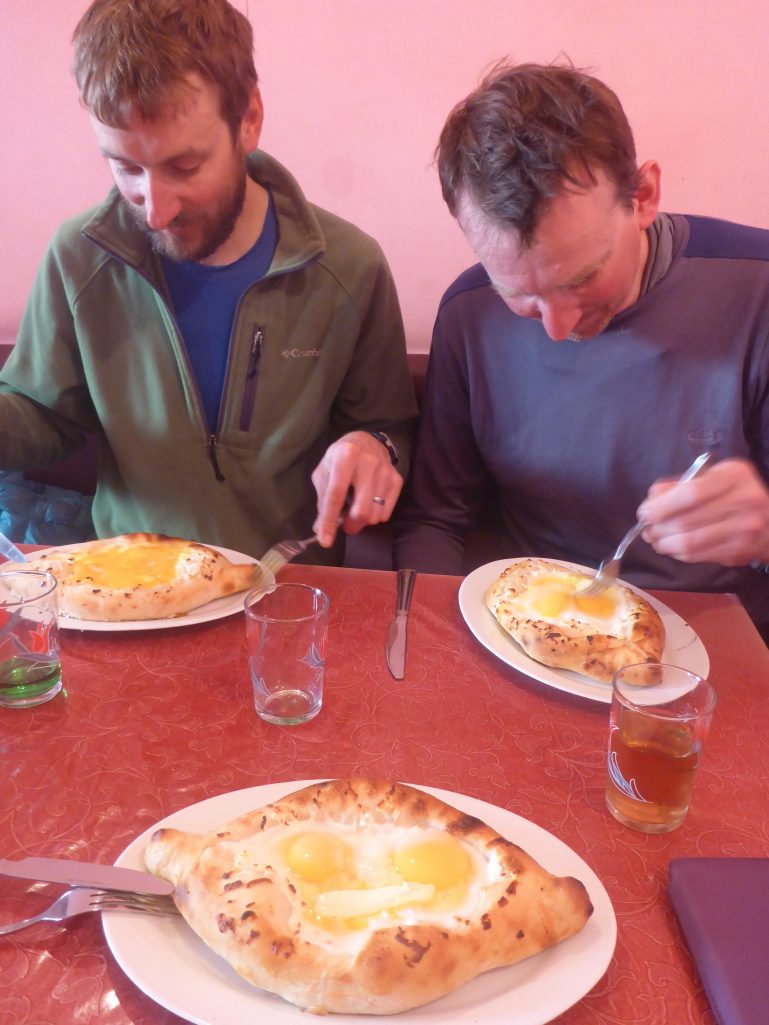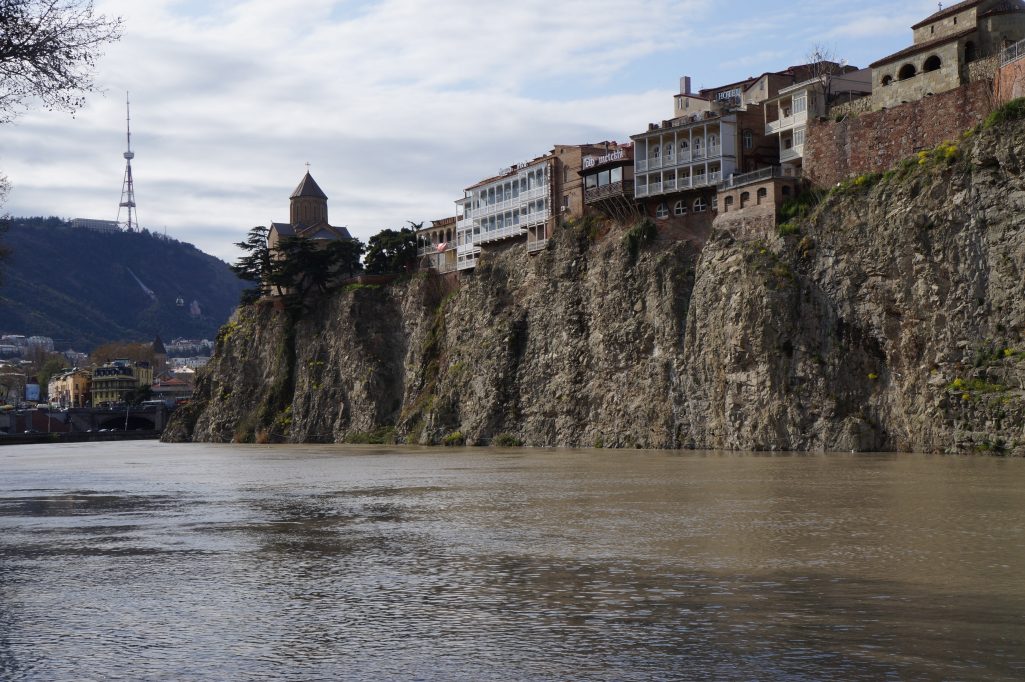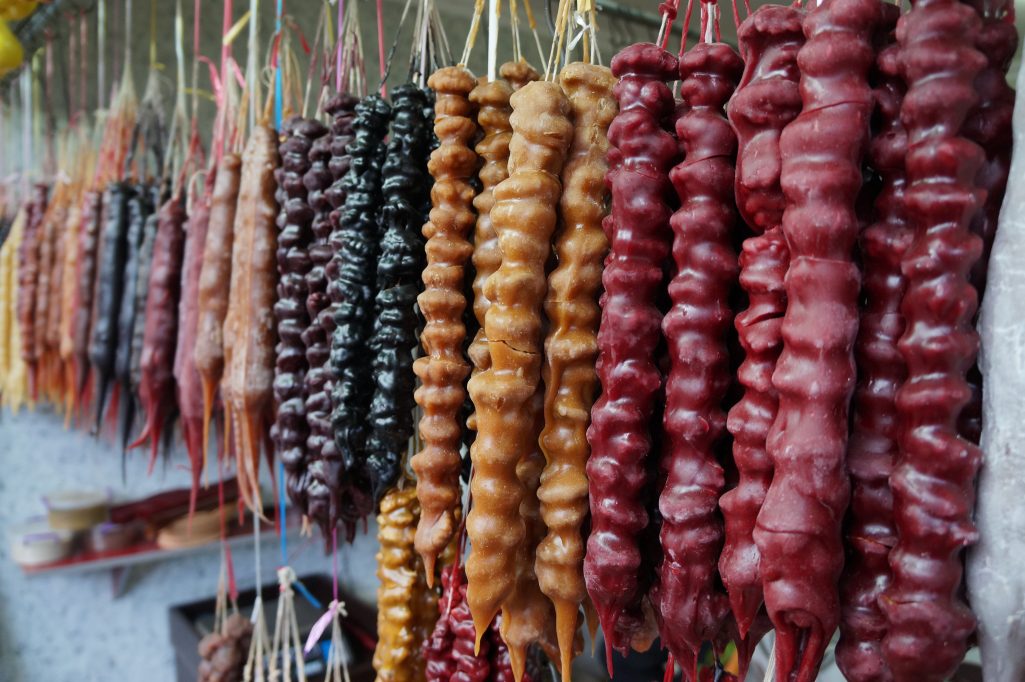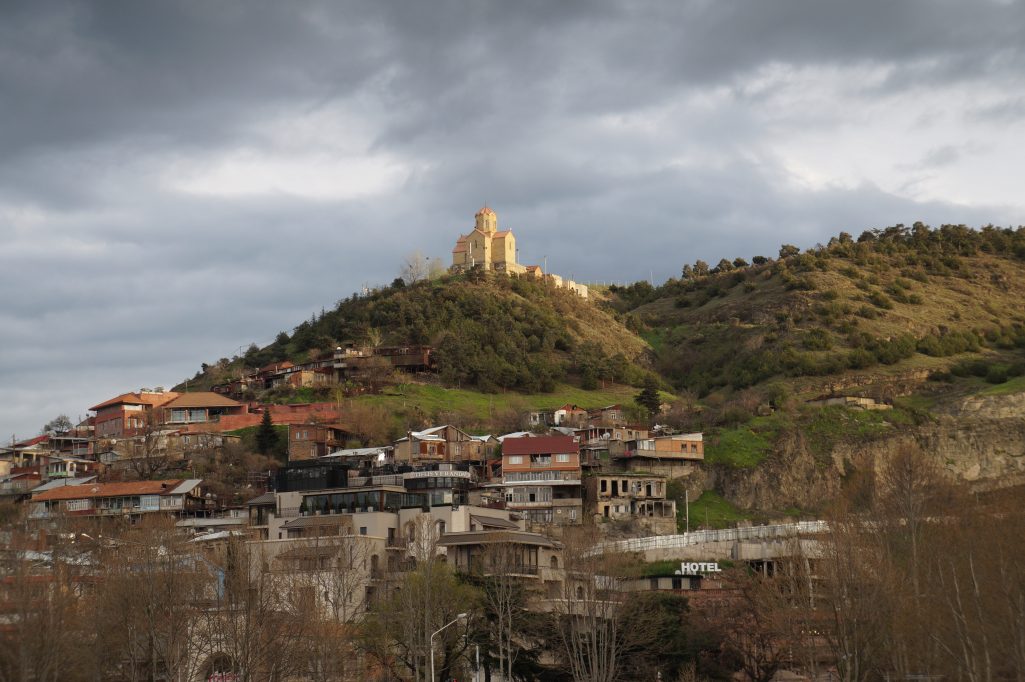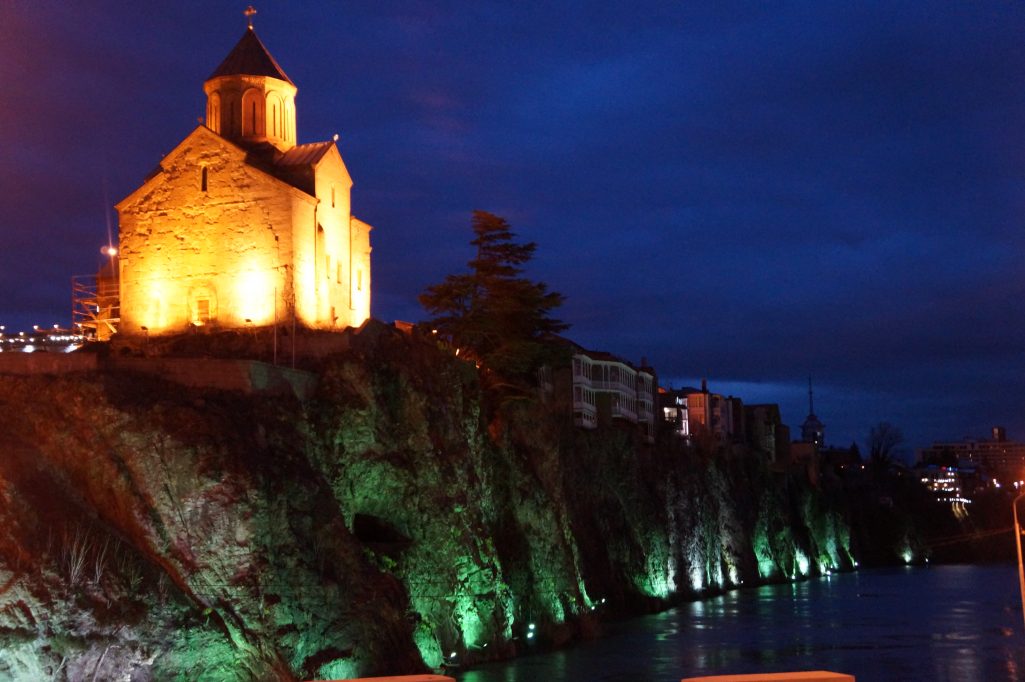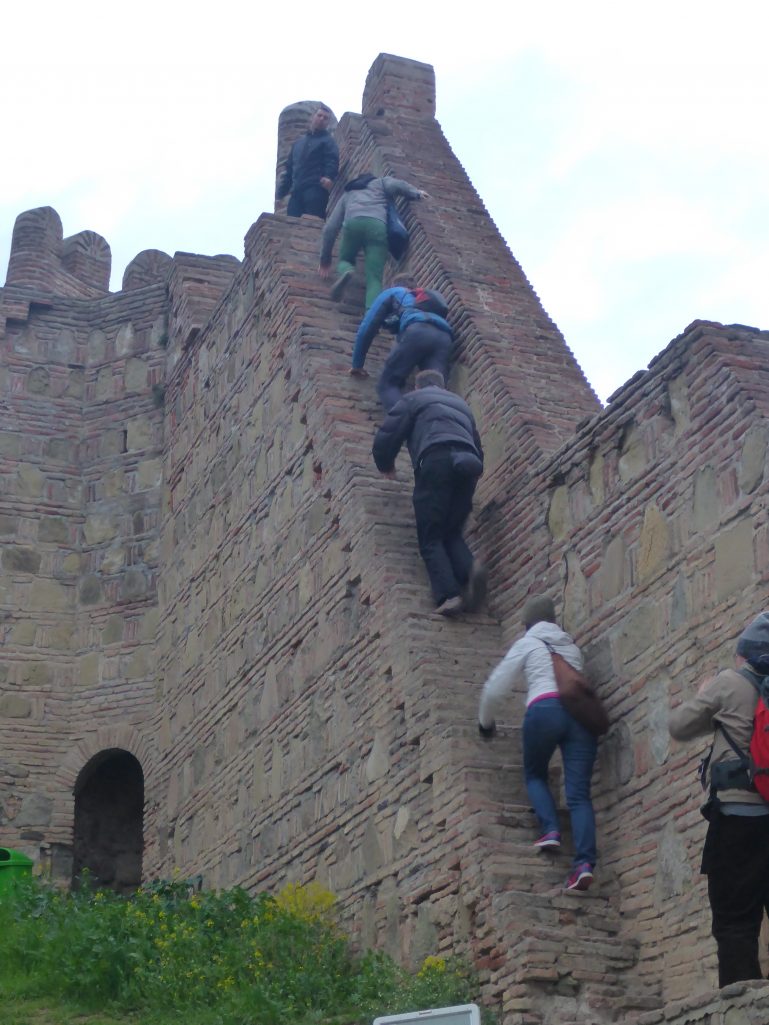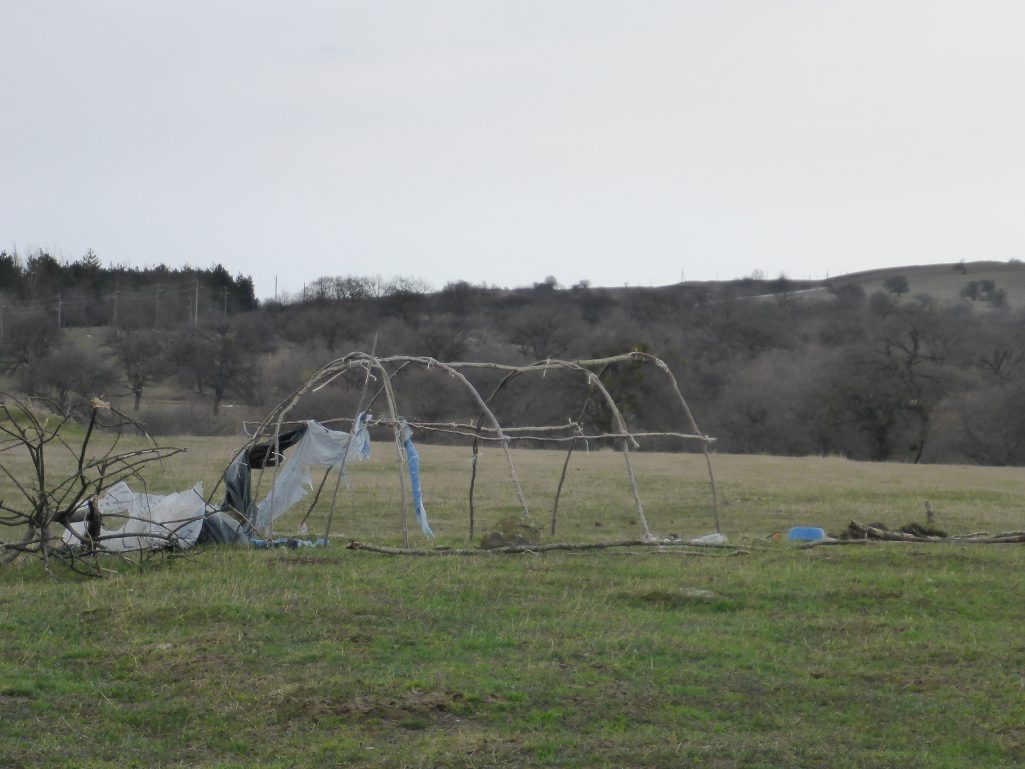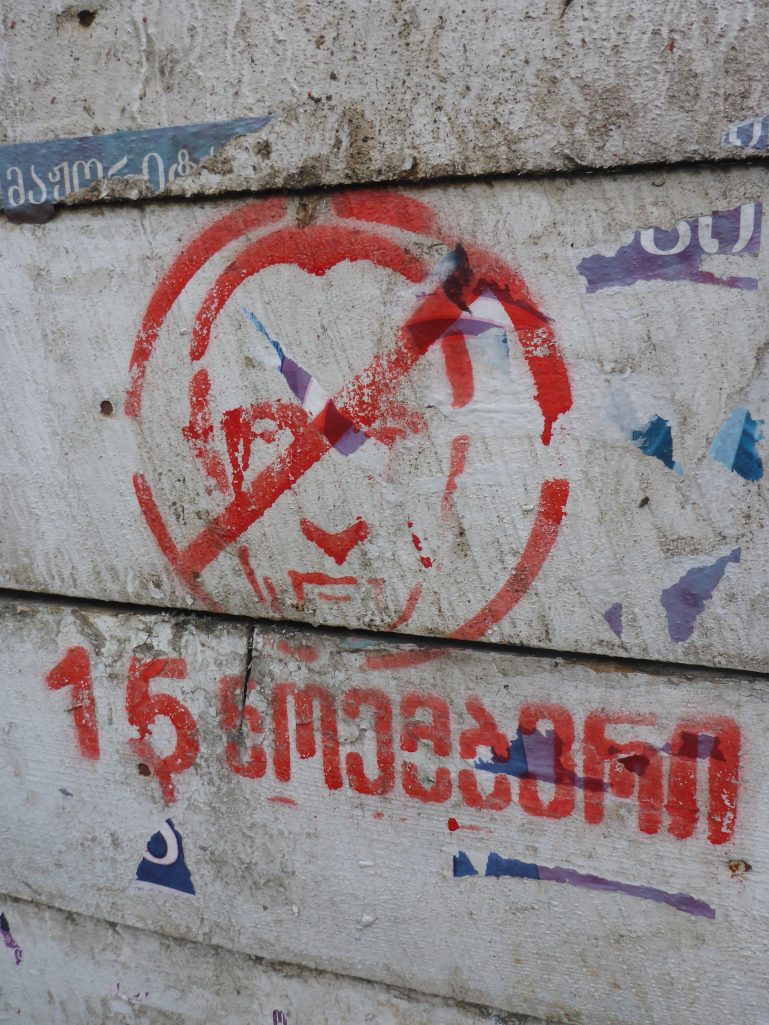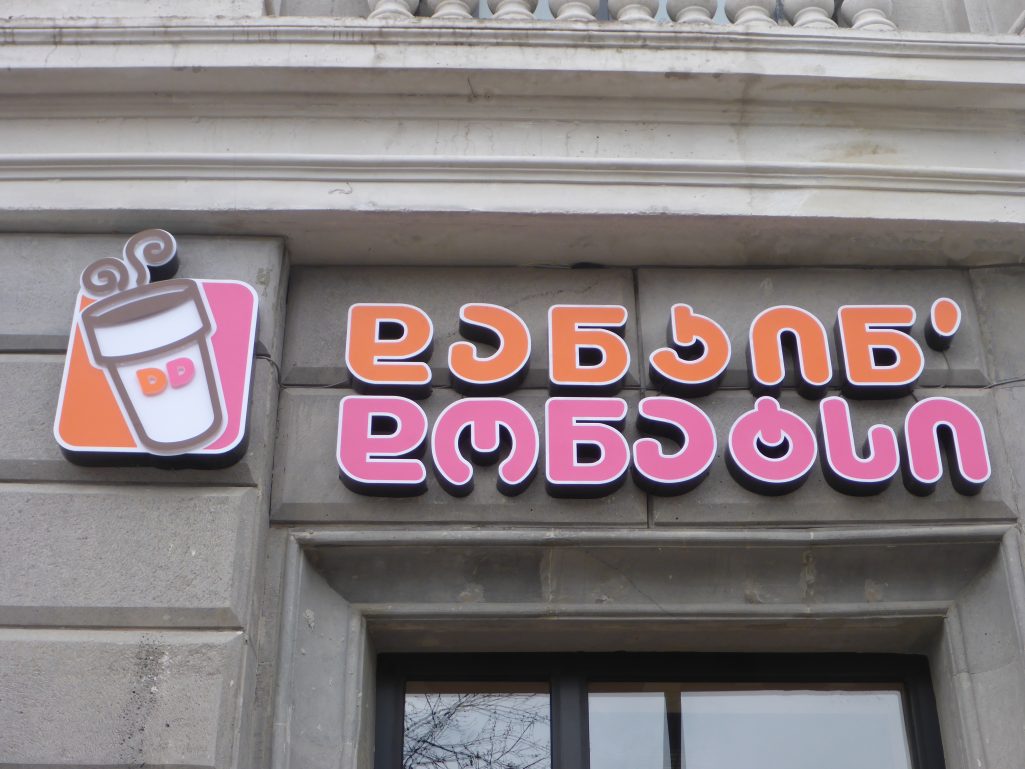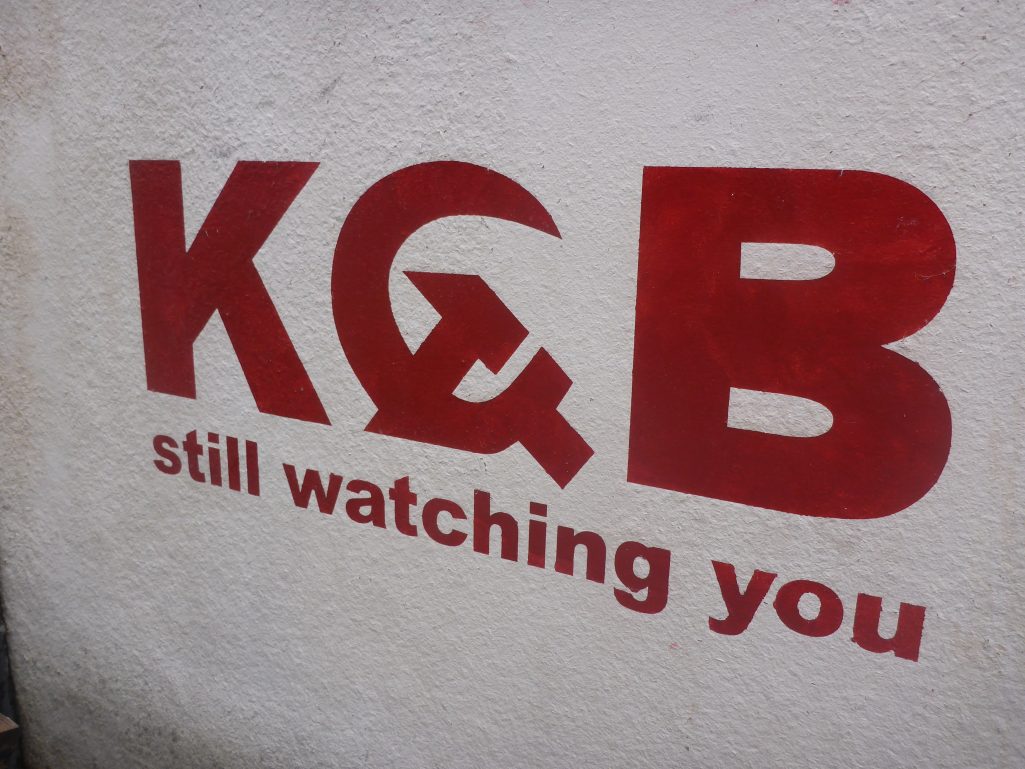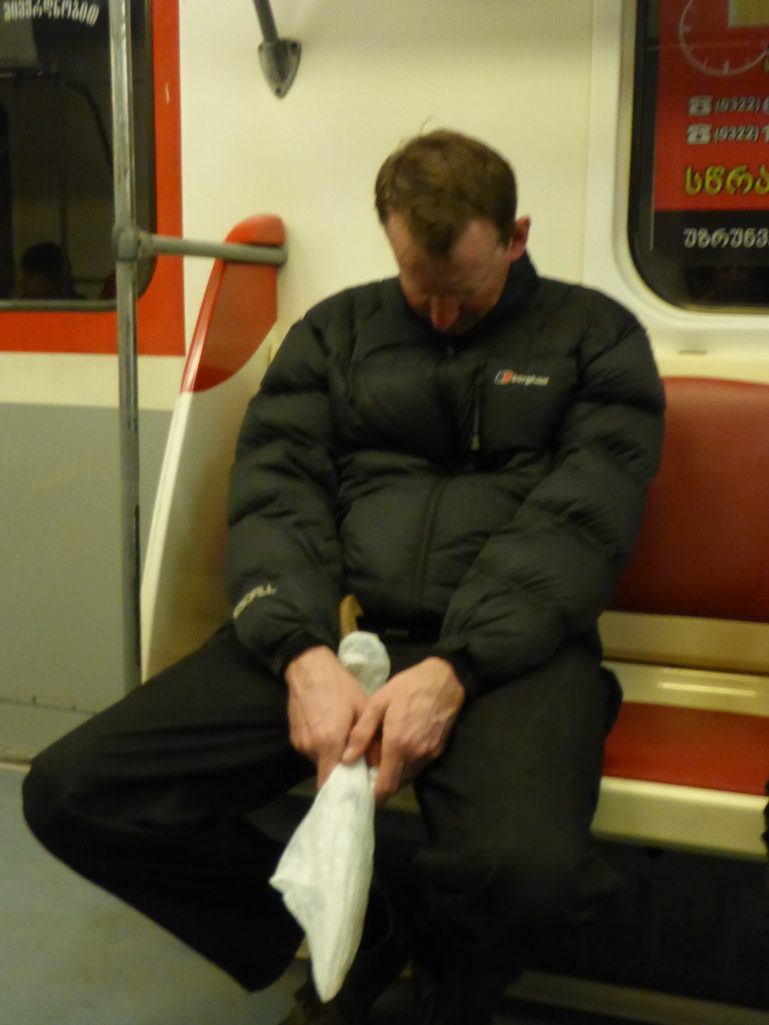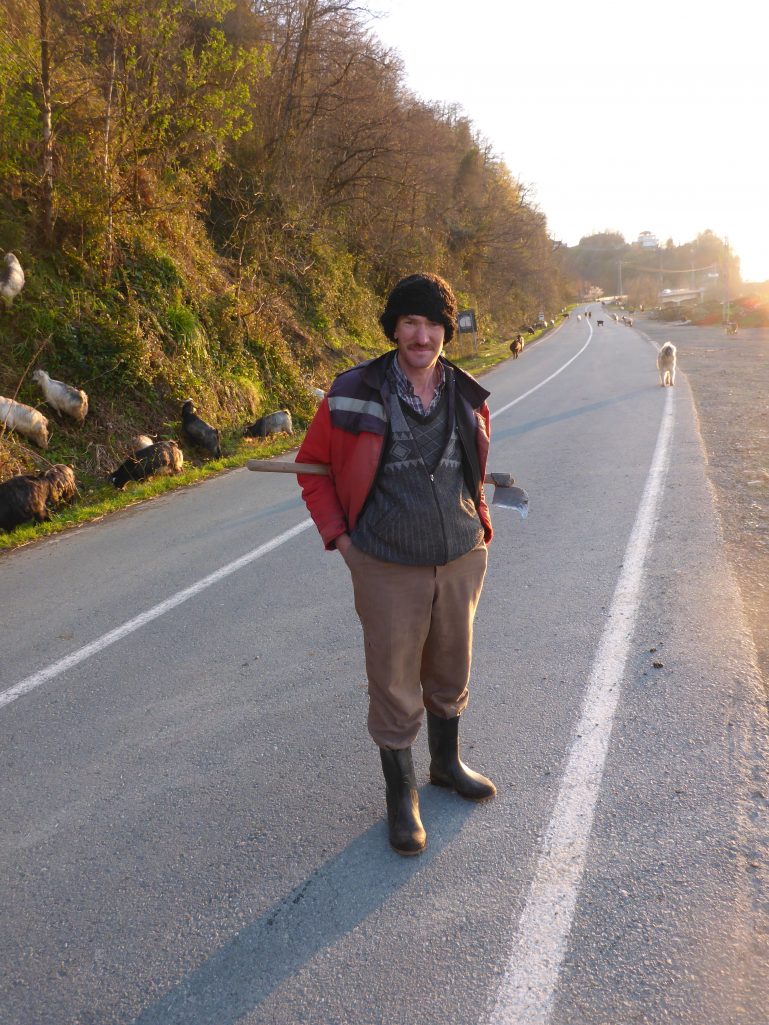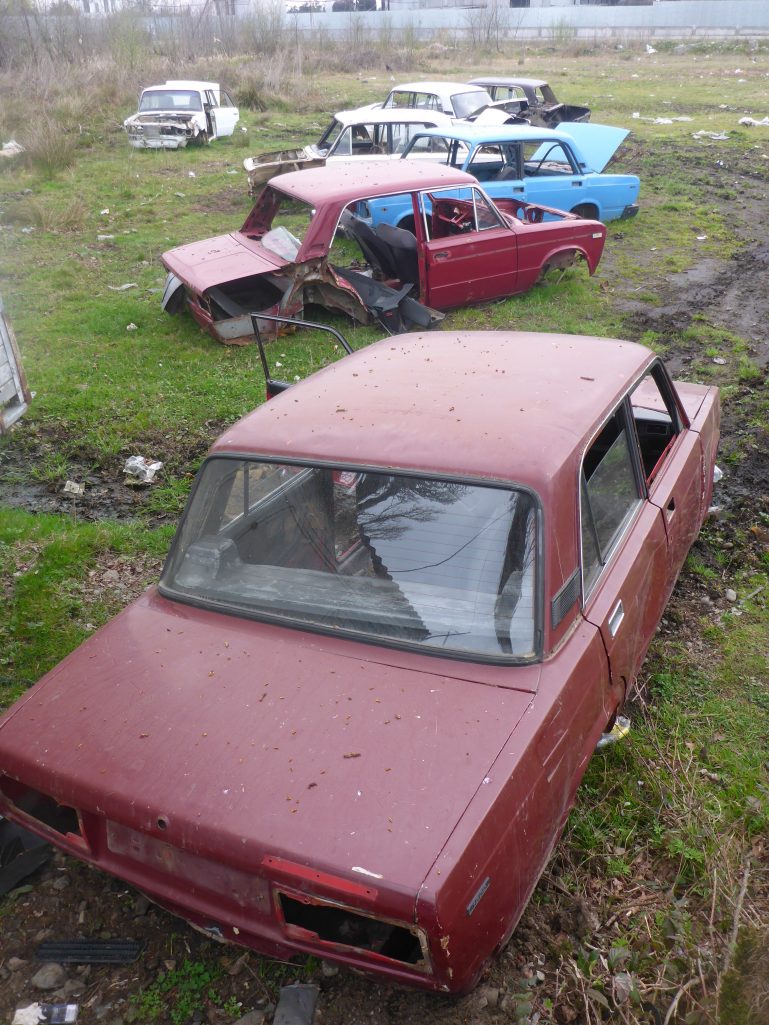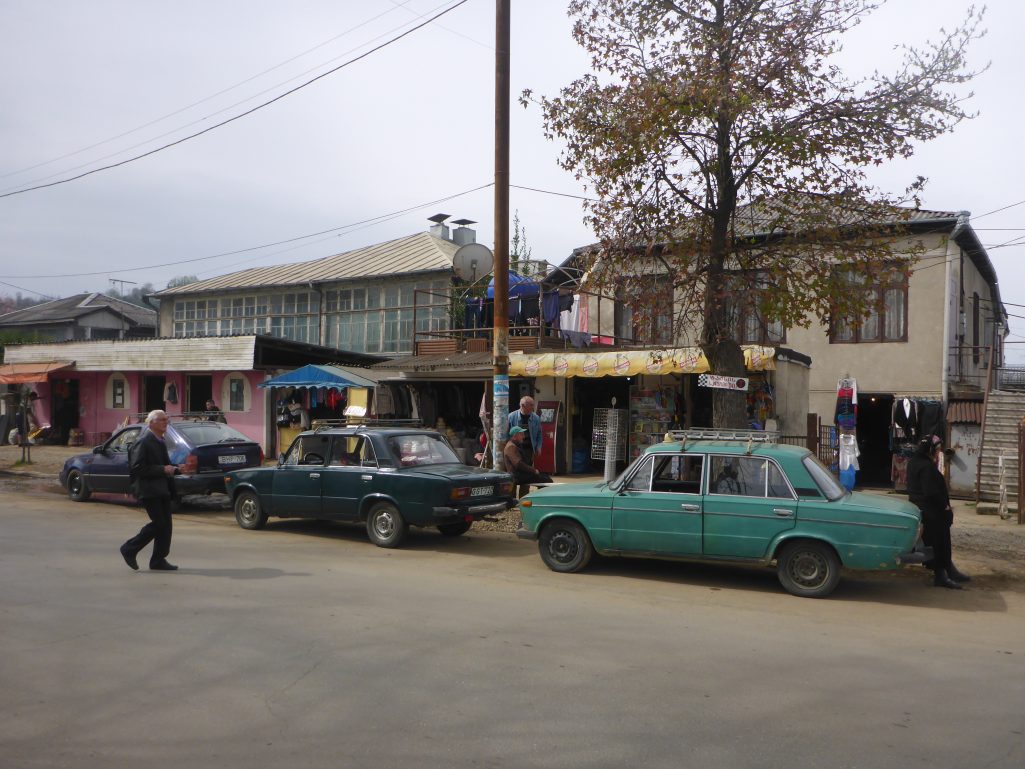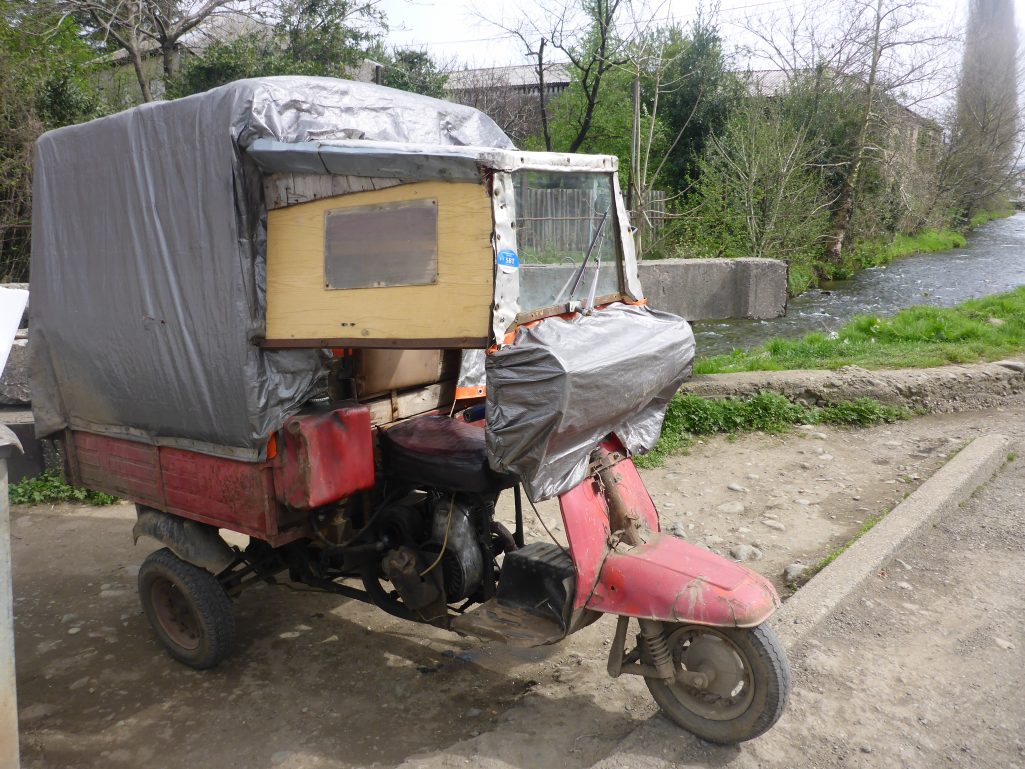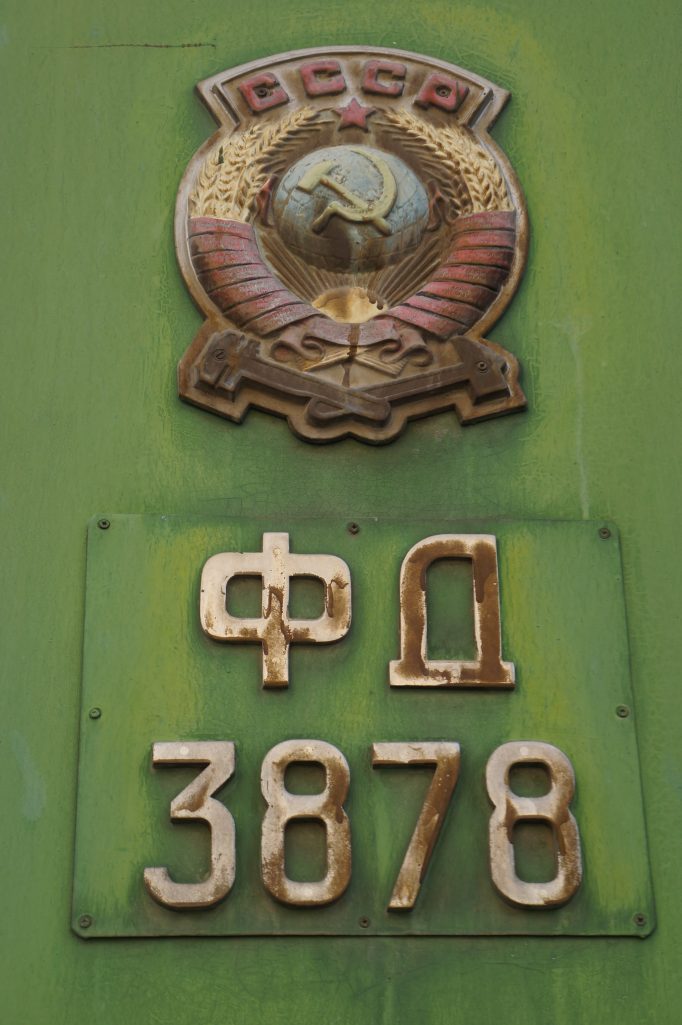Tbilisi to Baku

‘For some reason a friend from University had a fascination with Azerbaijan. There were a few occasions while we enjoyed a pint or two of Snakey B in The Lemon Grove that he suggested opening a themed nightclub called “Azerbaijani’s” but at the time I knew nothing about the country so had no idea what that theme would look like. That friend now runs a hotel in Port Isaac and as far as I know has not ventured into the club business but perhaps he’s just waiting for the right moment to open Cornwall’s next big party venue with a Caucasian twist.

There’s no better way to learn about somewhere than by visiting it so after packing Justin off in a taxi in Tbilisi our route was to take us east again and improve our knowledge of Azerbaijan. First we had to collect our visas from the Azerbaijani embassy which had thankfully been approved and we’d been given the full 30 days allowance. We’d also remembered to cancel the hotel booking that was required to gain the visa.
Azerbaijan Fact #1: Azerbaijan is one of only two countries that start with, but doesn’t finish with the letter A.

We hopped back on the George W Bush Highway to get out of Tbilisi, past a flock of sheep huddling under the slip road in what must be the most inappropriate grazing of the trip so far. Unlike our ride along the same route the week before, we’ve got a cool, dry day so the potholes are no longer hidden in amongst puddles of an unknown depth and as such are much easier to avoid.

This time we turn off the main road before Satichala and ride north towards Sasadilo, crossing our old friend the Iori river on the way. The valley we ride up is densely forested but without my brother we’re stuck trying to identify what the trees are. It feels a lot like a valley in mid Wales with added drizzle for effect. Then the road starts to nudge up a few percent and ahead is a ridge that is a six hundred metres higher than Mount Snowdon, just to remind us we’re actually a long way from Gwynedd.We decide to break the climb up and camp before reaching the top leaving the last stretch for the morning. To help extend the life of the drive train I’ve been swapping between two chains every 1500km and this service interval is long overdue so I decide to change the chain before setting off. It’s a foolish mistake as we have all sorts of trouble getting the gears to engage properly with the new chain on the old cassette (it’s usually fine after a day or two once the chain has ‘broken in’) which means a lot of walking up the hill and a fair bit of unhelpful shouting at the bike. Near the top it starts snowing but we also find a gear that works so can ride to keep warm. Then on the way down the snow turns to sleet then to rain as we lose altitude and get cold again.
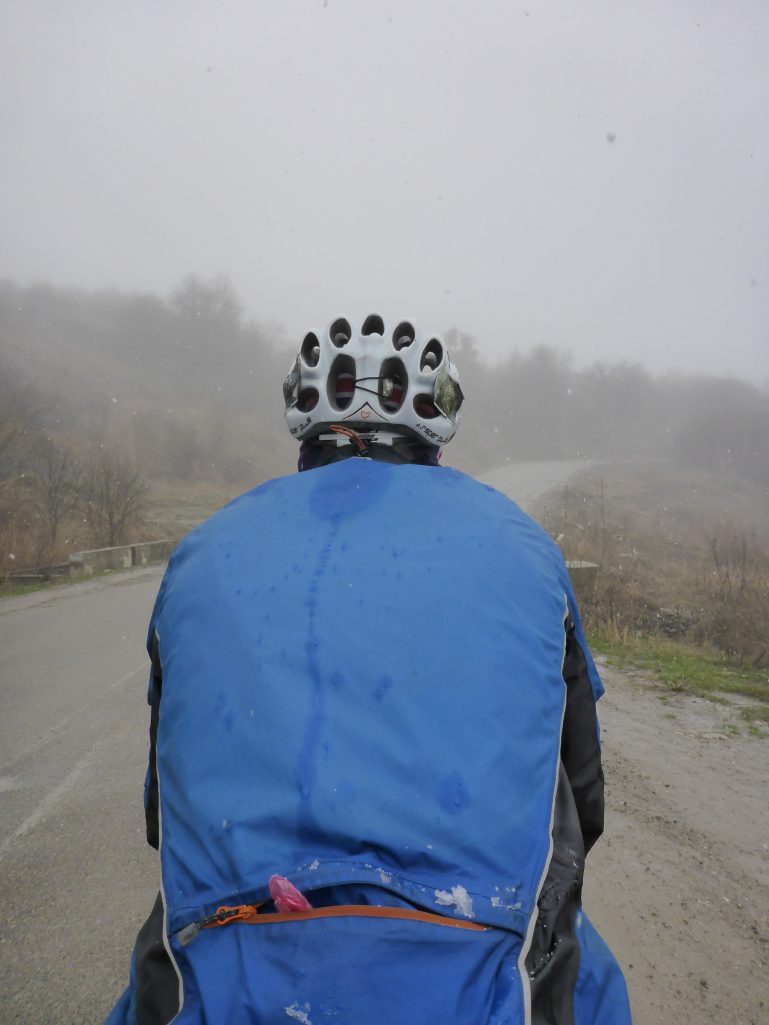
Telavi is a town with no cafes, at least none that were open on an Easter Sunday so we grab a Katchapuri from a streetside serving hatch and continue on. It’s our second Easter as the Orthodox calendar is different from the Anglican one and this year they are celebrating a week after the UK. We’ve seen lots of eggs died red for sale but not a single one made out of chocolate.




After a flat and fast afternoon, for our last night in Georgia we settle down on the edge of a field overlooked by the foothills of the Upper Caucasus. Justin is again missed as he was very useful for wood collection and fire starting duties. He would also have been needed for fire fighting duties when a rogue ember lands on my waterproof jacket melting two neat holes in the back. As one of the more essential pieces of kit, particularly with heavy rain forecast for tomorrow, it’s a cause for more angry and unhelpful shouting, this time aimed at the fire.

Unfortunately the forecast is correct and in the morning we hear the pitter patter of rain on the roof of the tent, always sounding several times worse inside than it actually is outside. Once we’ve extracted ourselves from the dry and warm shelter and get everything packed, we quickly pedal off towards our next border. One of our last Georgian towns is Ganjala which also seems to be home to several building supply shops. I pull up outside one hoping to be able to find some gaffa tape to patch up my jacket. It seems to be a flooring shop and we’re welcomed in to scour the shelves for what we need. Unfortunately the best they have is a type of selotape which doesn’t look up to the job but Kirsty is barged out the way so that two of the small crowd that has now gathered can begin covering my back anyway. Meanwhile we’re asked if we want a drink and a tray arrives with çay, water and a bottle of vodka. As we’ve seen all over Georgia, there seem to be jobs for everyone and although this is a small, specialist shop there are at least three sales assistants, a manager and two tea ladies. Also typical of elsewhere in the country, the ladies have a magnificent set of gold teeth that shine brightly when they smile but are always swiftly covered up by tightly closed lips as soon as the camera comes out.


After a cup of cay, a glass of water, two shots of vodka and only just managing to convince them not to try and make us drink any more (my mime of a drunken cyclist swerving down the road then falling off always seems to work) we get back on the road again. My back is semi mummified in selotape which stays in place for at least 500m.


The rain continues all the way to the border where we meet some friendly guards with wide rimmed hats. Seeing us shivering while we wait to have our passports checked they come out with some çay and two Snickers bars. It creates a good first impression that most border guards could learn from.
Azerbaijan fact #2: Out of the 11 different types of climatic zones, 9 are present in Azerbaijan.
It’s no drier on the other side of the border but it is very lush and green as a result of all the rain. After 12km we reach the town of Balakan and head for the first of two hotels that are listed on the Garmin. Since Turkey we’ve been using Open Street Maps on our GPS which are free to download and so far have given a surprising level of detail including shops, ATMs, petrol stations and accomododation.

I’m shown two rooms that at first glance have a similar level of degradation with peeling wall paper, cracked bathroom tiles and the type of bed that allows you to feel every single spring in the mattress when you lie on it. But for some reason one is offered at $20 and the other $10 so of course I opt for the $10 room. We soon learn that the extra $10 would have paid for a heater and hot water.

We head out to find some food after a tasty kebab and çay we stumble upon a sewing shop. I present my waterproof jacket and peer through the holes in the back and the tailors soon get the idea. A roll of faux leather in almost exactly the right shade of blue is brought out and I give them the thumbs up. Their resulting handiwork is better than I could have imagined and I have to admit that the smart new blue diamond deftly attached over the holes is actually an improvement on the original design. It also makes for great advertising space so if anyone wants to add their company logo then let me know and we can negotiate a donation to charity.


Back at the hotel we find that there is a new person holding the fort and he tells us to pack our bags as soon as we walk into the reception. Not because he wants us out though, he’s actually moving us to the penthouse suite. Apart from being larger (we now have 4 single beds) its in a similar state to our previous room compete with another threadbare carpet. However it does have the important addition of hot water and a heater. All our kit quickly gets unpacked and hung from every available hook, door and lampshade to dry overnight.

Azerbaijan fact #3: Azerbaijan is one of the six Turkic countries and shares a lot of the same language as Turkey.

The view from the window is of the local mosque with an impressive brick built minaret that looks a lot like a Victorian, industrial chimney stack. This means we get woken early by the call to prayer then make our way down to breakfast. The friendlier of the two hoteliers asks if we’d like to climb the minaret which sounds like a great idea. I begin warming up the vocal chords in case they need a new imam to sing the ezan.
The view from the top back into our hotel room is fantastic, and the mountains beyond aren’t bad either.




Back on the road we enjoy some fine sunshine having left the rain back in Georgia but it’s a shame I can’t try out my new improved jacket. For a couple of days our road follows the foothills of the upper Caucasus on our left with a series of horrendous invisible climbs. It’s the kind of road that looks flat and everything around it looks flat but for some reason we’re forced down through the gears and the trip computer shows that we keep gaining altitude. This continues through Katex (hello Katex) and Zagatala before we get to enjoy the opposite effect. The road looks flat but we pick up speed and effortlessly cruise along at 30 kph.

We’re now passing green meadows, fields of oil seed rape, fruit orchards and nut groves. In amongst the trees nestles a small cafe, not much more than a plywood roof with a stove at the back but two of its patrons wave and call us over with the promise of fresh çay. We’ve barely taken a few sips when they decide we need something stronger and the tea is replaced by two large glasses of beer. Our protests that we have more riding to do go unheard so we bravely finish them up. I even struggle through a second one but when the third one is suggested we have to say our thanks and get going otherwise we’d be there all night (not a bad prospect in hindsight).


Staying close to the mountains, we winch up another long drag into Sheki, famous for its ancient Caravansary, a place to stay for the silk route traders and travelers, and also for its super sticky and sickly sweet baklava that we’re obliged to buy and try. While tucking into lunch we get invited to record a sound bite for a national TV show. We’re not sure what Ziq Zaq is about but apparently we love them.




Azerbaijan Fact #4. They are very superstitious and believe things like:
“Don’t drink cold drinks in winter as you’ll get ill”.
“Do not lend money or bread at night.”
“Do not give sprouts as a present, the plant the sprouts are taken from can die.”
“Leaving scissors with opened blades brings misfortune and even death.”
“If you meet a person with empty buckets, you are bound for misfortune”
There are huge dry river beds at frequent intervals, ready to take the winter deluge and spring melt water from the mountains. In fact spring has well and truly sprung, bringing with it all kinds of flying, slithering, croaking and biting things out of hibernation. The insect repellant gets dusted off for the first time in many months.





Outside Sheki we camp behind an old shack but not out of sight enough to escape the attention of a pair of policemen. They imply we should move on but eventually give up and say we can stay. Later that evening a different pair of law enforcers spot the smoke from our camp fire and also try and move us on with a similar level of success. In the end they even chuck some extra wood on the fire for us and bid us a good night.

We ride across to Oghuz and onto a very tandem friendly road that descends at a 1% gradient. Unlike Turkey where the çay is served by the glass, here the cafés give us a whole pot that seems to be bottomless. Kirsty also notices that all of them have a picture of a strawberry on the side. Except in one case where it’s a flower instead and she nearly sends it back in disgust.




While passing fields of grazing cattle we spot the unmistakable silhouette and laboured pedal strokes of another touring cyclist coming towards us. Jimbo is from Japan though we suspect this isn’t his real name. His itinerary so far makes us very jealous having taken in the Karakorum highway from Pakistan to China and also 3 months in Iran. Our perfect route would be very similar but we’ve got to take diversions at both these areas due to visa restrictions. However his tales of a winter on the Pamir highway enjoying -25 degC sound less inviting. He tells us the road up ahead is very good after Ismaili and with that we go our separate ways. It would be interesting to know how many cyclists crawl out of their tents on any given morning, ready to take on another day in the saddle riding slowly towards a faraway destination.
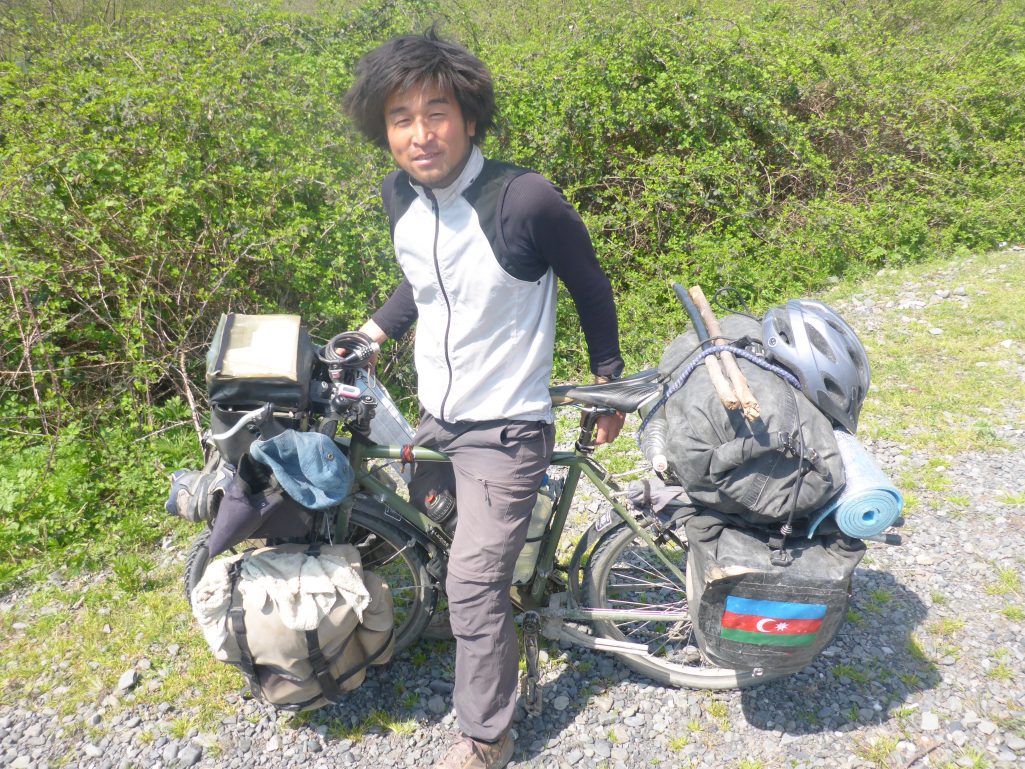
After Gabala we suddenly find ourselves surrounded by trees in a beautiful forest. Thinking back, we haven’t seen this kind of view since Estonia but sadly these woods don’t have the well equipped camping facilities that were provided in the Baltics. What they do have are cafes and lots of them. As it’s still early in the year plenty of them are closed but even at peak season it’s seems surprising that there would be enough trade to sustain them all. One such closed cafe provides an ideal camping spot but without the fire place and stack of wood that we would have enjoyed in Estonia.






The forest continues for much of the next morning until we emerge into low rolling hills that then brings us to the foot of a long steady climb back up to 950m. The variety of landscape is astonishing as is the rate that it can change from one km to the next. After the sumit we ride a ridge that gives us views to the left to some very stark mountains with little vegetation and another broad but dry river bed snaking between them. On our right are more of the round topped, green pastured hills. Blowing across the ridge is a harsh cross wind that then makes the descent a little too exciting in places and all the way down we can see that our exit from the valley bottom looks to be quite testing.
Hauling ourselves up the other side again at a granny ring spinning, knee creaking 15-20% we arrive puffing and panting at a layby with great views and a cluster of boys trying to sell us flowers. One look at Kirsty tells me this is not the time for romantic gestures so I decide not to buy any and after a breather we continue on.

Azerbaijan Fact #5: It is referred to as the land of fire and claims to have the first fire place dating back 700,000 years.
It’s much better to cash in hard earned potential energy over a long distance at a shallow gradient than splurge it on a short steep drop. The road down into Shamakhi is lovely and seems to go on for ages with barely a pedal stroke. On the way we pass restaurants with cows heads sat on chairs outside, which seems an unusual advertising idea. Later we see butchers with live sheep and cows penned in outside their shops, waiting for customers to pick which one they want for dinner.


Shamakhi is a lively little town and the former capital of Azerbaijan before Baku took over the title. Kirsty pops into a supermarket while a crowd gathers around me and the bike. One curious taxi driver asks for a ride so I oblige by taking him for a quick spin up the street that brings a lot of amusement to the other onlookers.
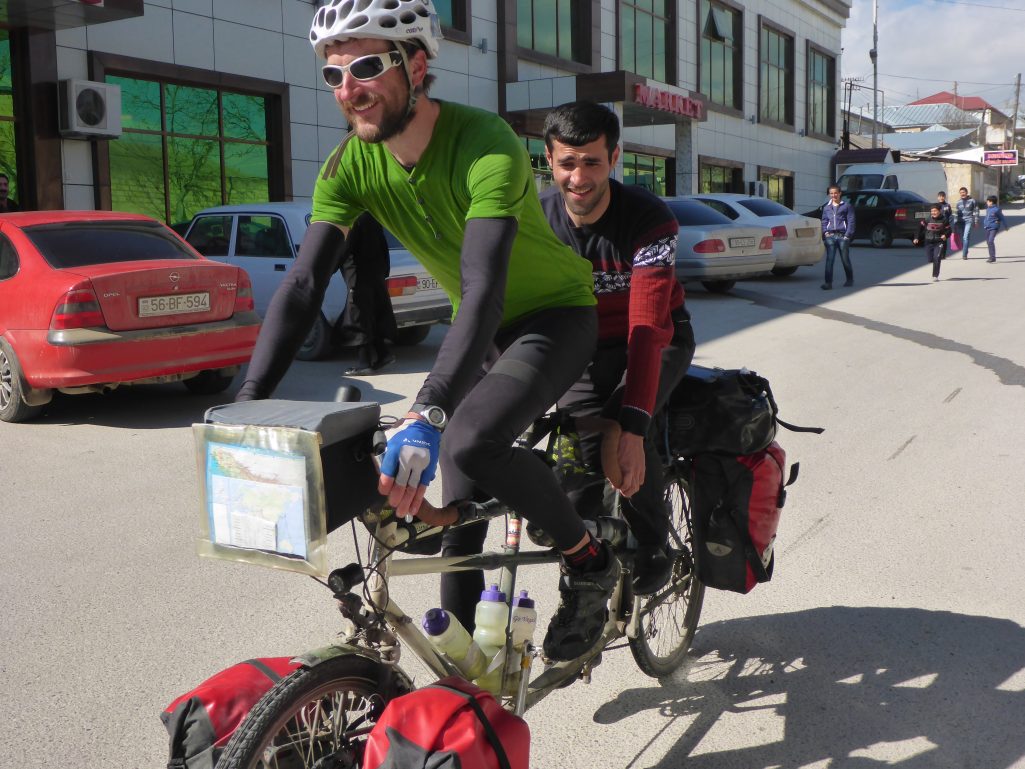
On the outskirts we pass smart walls that seem to be in place to conceal more run down areas of town which is a common technique that we’ve seen all over the country. It’s a bit like trying to sweep the dirt under the carpet. Its still there but now out sight and out of mind.
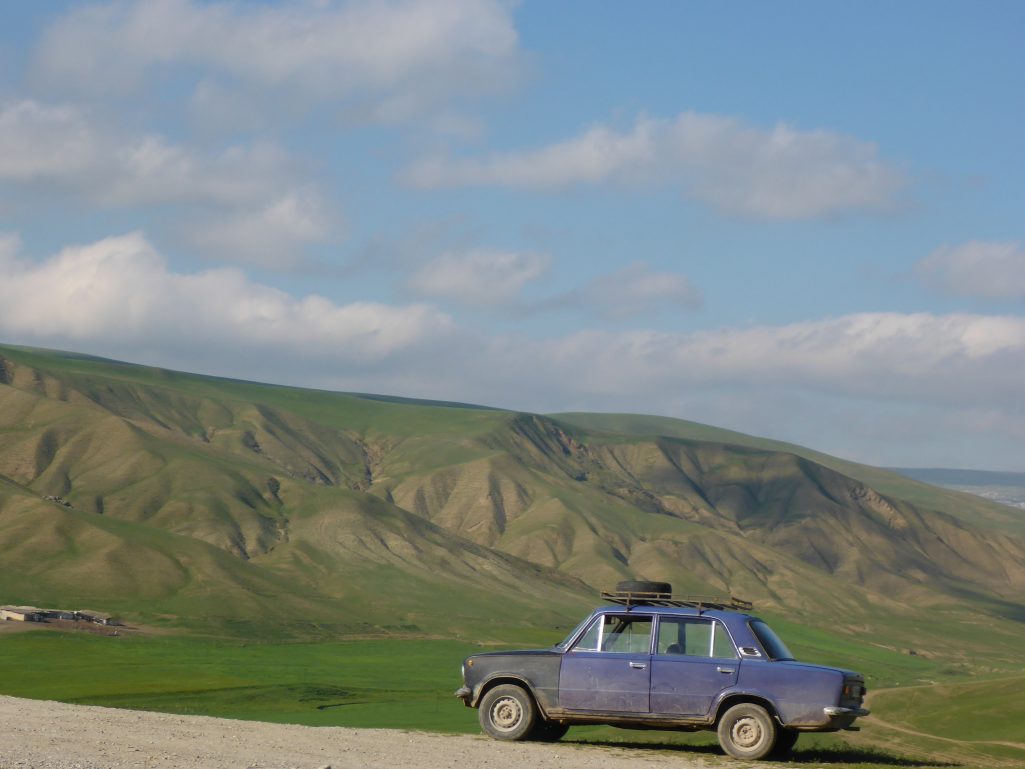
Before the end of the day we start to get hints of what’s to come as the vegetation starts to disapear and in its place the landscape becomes orange and red rock and sand. There’s one last long, steady climb to get up before we can pitch the tent and get the stove on for a well deserved cup of tea.


Crawling from the tent and blinking in the morning sun the view could well be of an alpine meadow. Lush, green grass with wild flowers sit in the foreground while the horizon is a jagged range of huge, snowy mountain tops.




This all changes as the day progresses as the greens and browns become reds and oranges and finally the drab beige of the desert. The desert towns are bleached by the sun with dusty tracks between the buildings while a simple tin roofed mosque is one of the few religious buildings that we’ve seen. Islam is certainly nothing like as visible as in Turkey and very few women wear head scarves.


We spend the afternoon charging across the desert with the wind in our faces like s hair dryer, until it begins to give way to more and more civilisation as we approach Baku. The cars get smarter, the drivers more aggressive and the road gets wider and wider until we’re on a six lane highway that probably isn’t really designed for bicycle traffic.
Azerbaijan Fact #6: When a courting grooms parents meet his potential wife’s parents they will drink tea. If the tea is served with sugar then the engagement is accepted, without it’s rejected.

But we make it safely into the centre of this very modern looking city and meet up with our host Jess. She and her husband Justin are friends who we used to share a swimming lane with in Bristol. They moved here 18 months ago after Justin landed a job with a dairy product company while Jess has some very useful and very portable English language teaching skills so works at a nearby school.
While in Baku we have a few tasks to complete before we can continue on so we need to be here for a few days. There are visas for Uzbeksitan and Tajikistan to apply for and also a few running repairs and maintenance needed on the bike and kit. Once that’s all been done we then have to work out how to get onboard the legendary and notorious Caspian Sea crossing but all of that is a story for another post.


